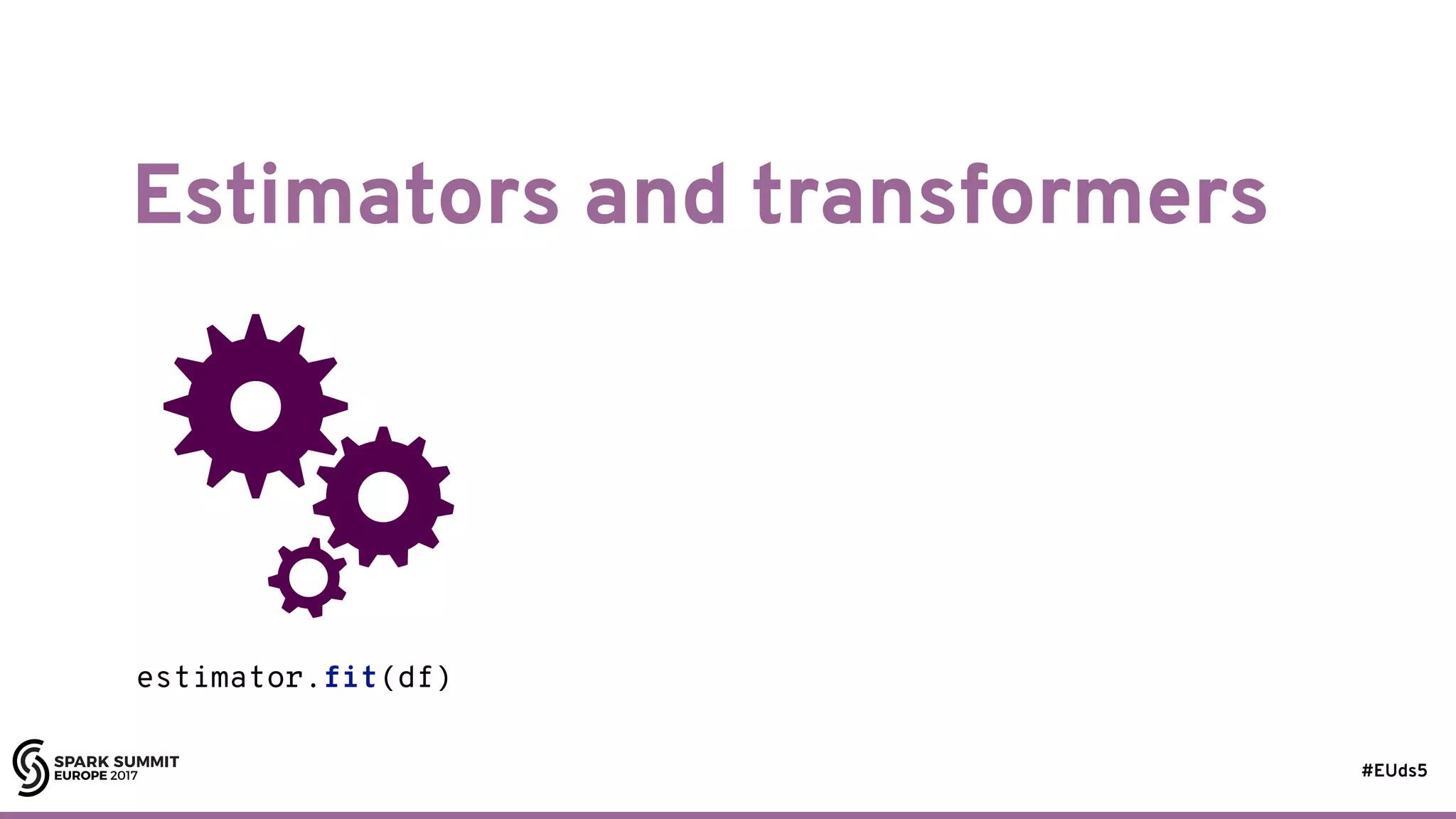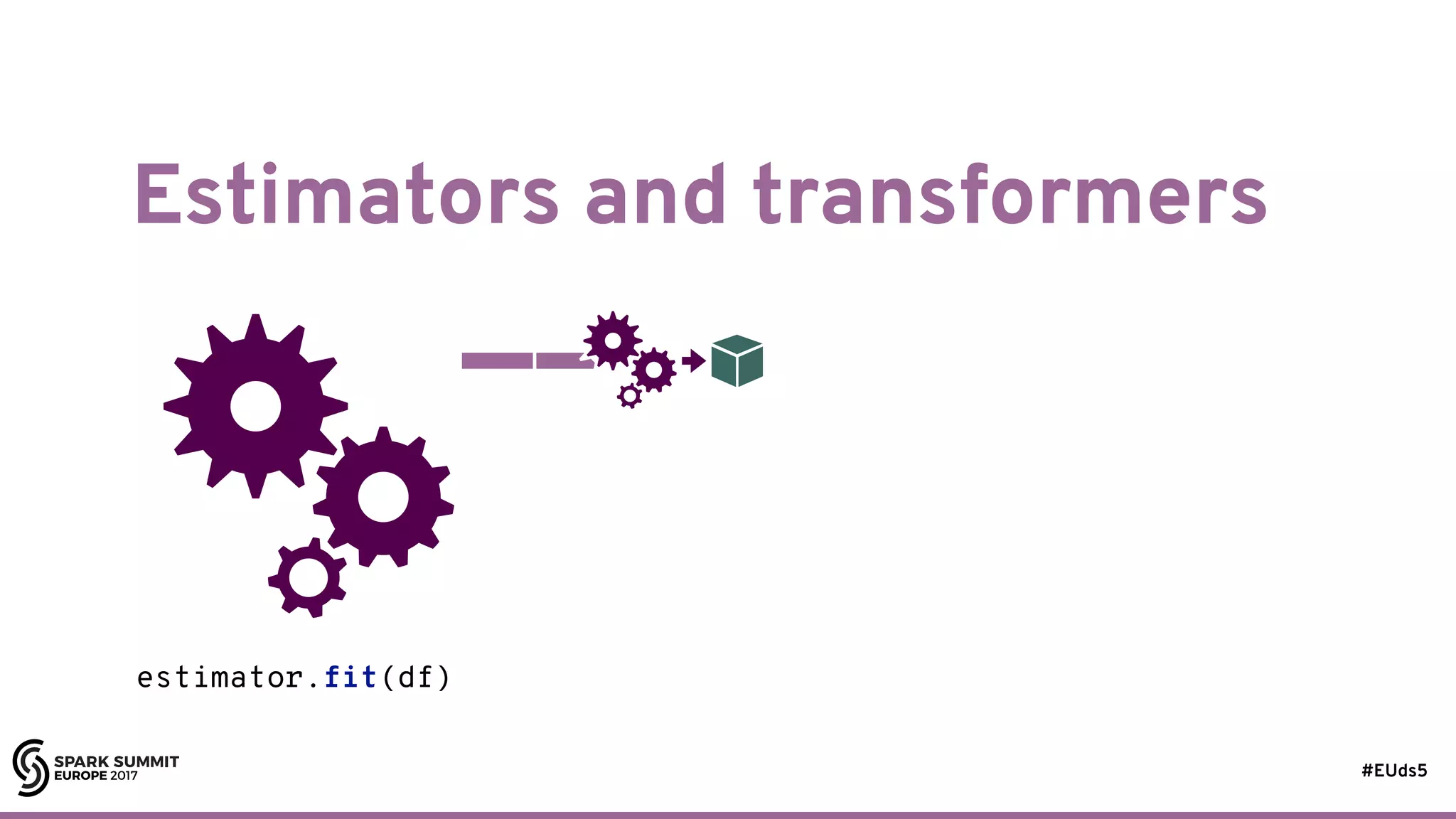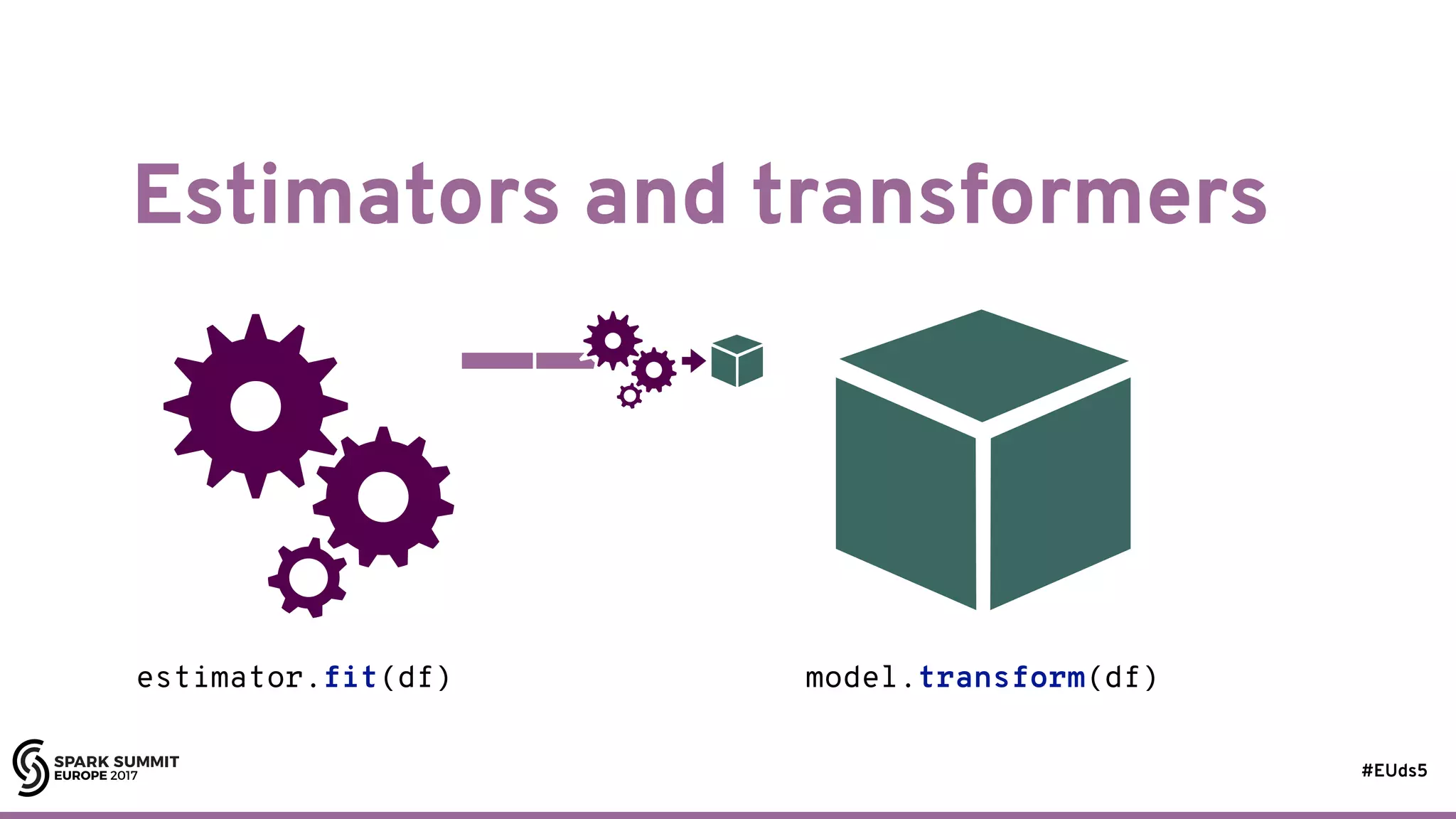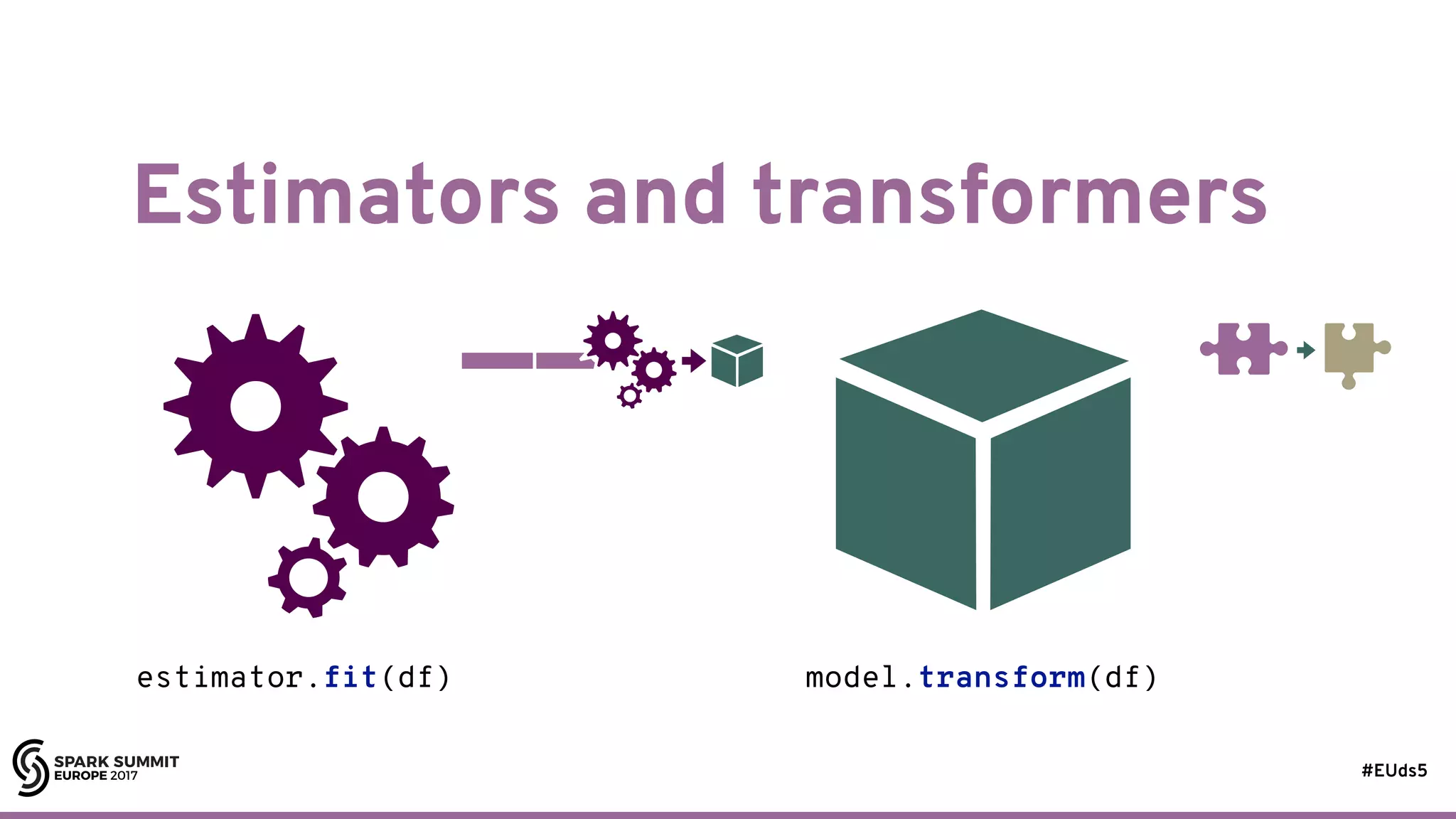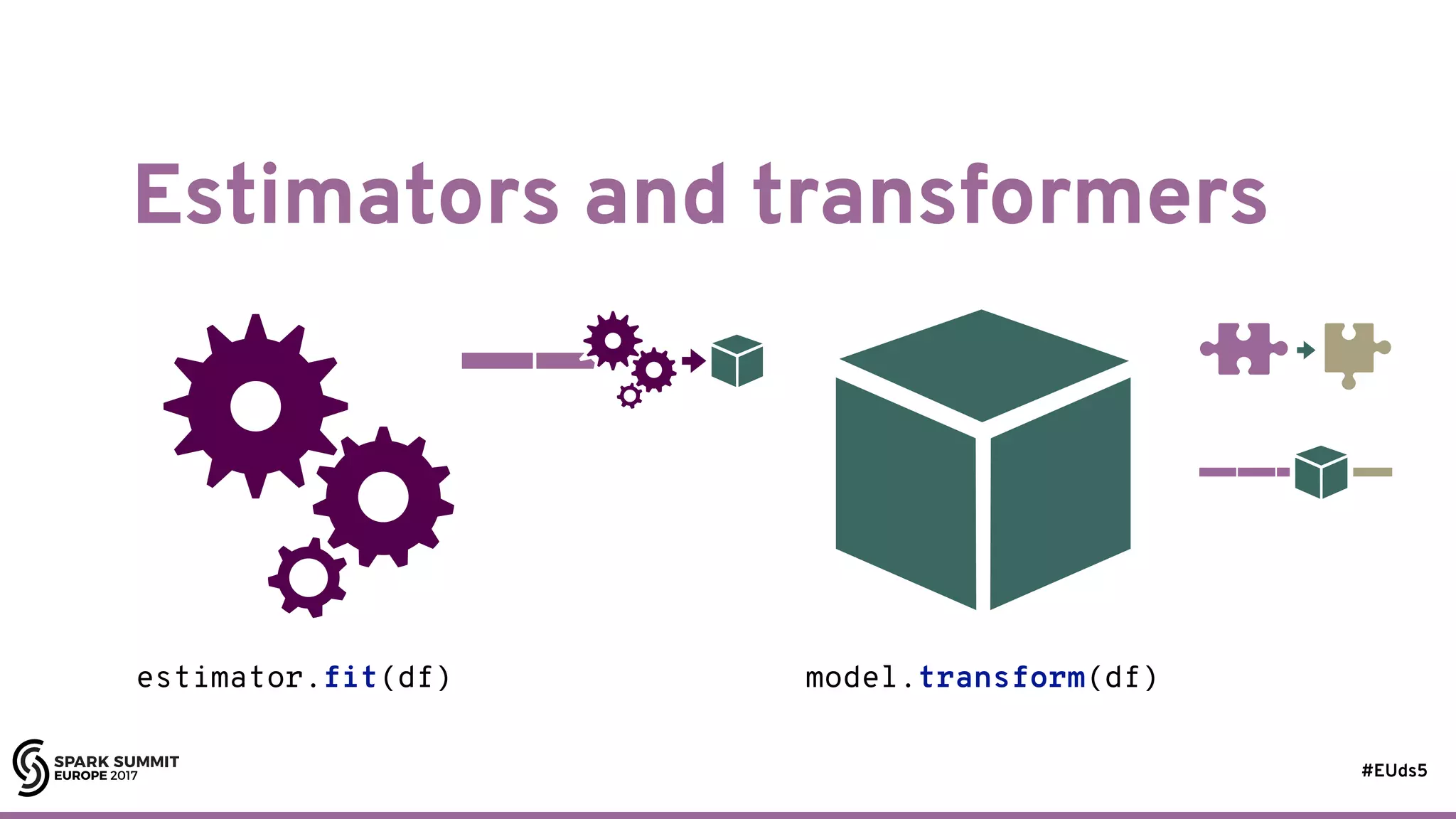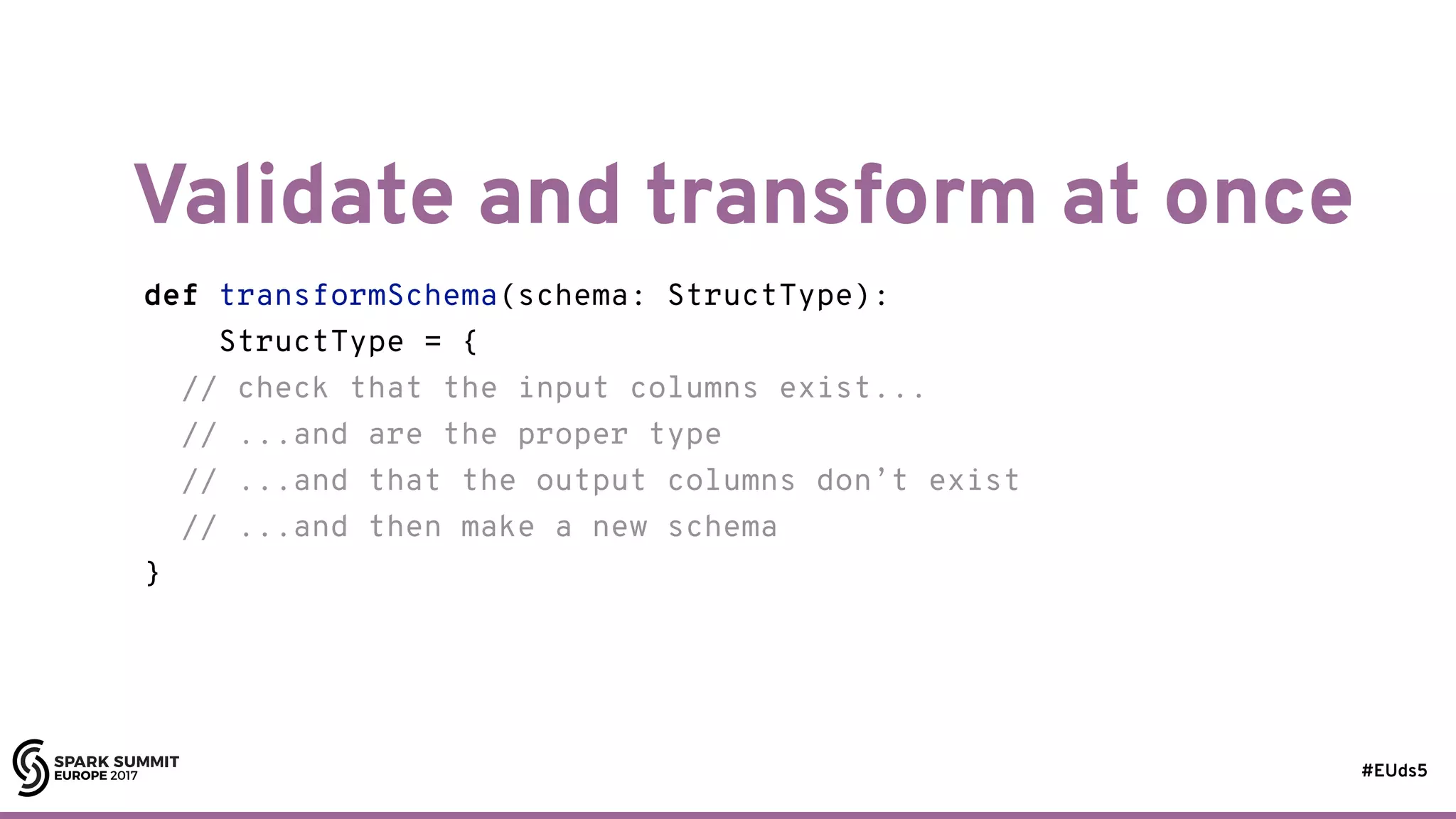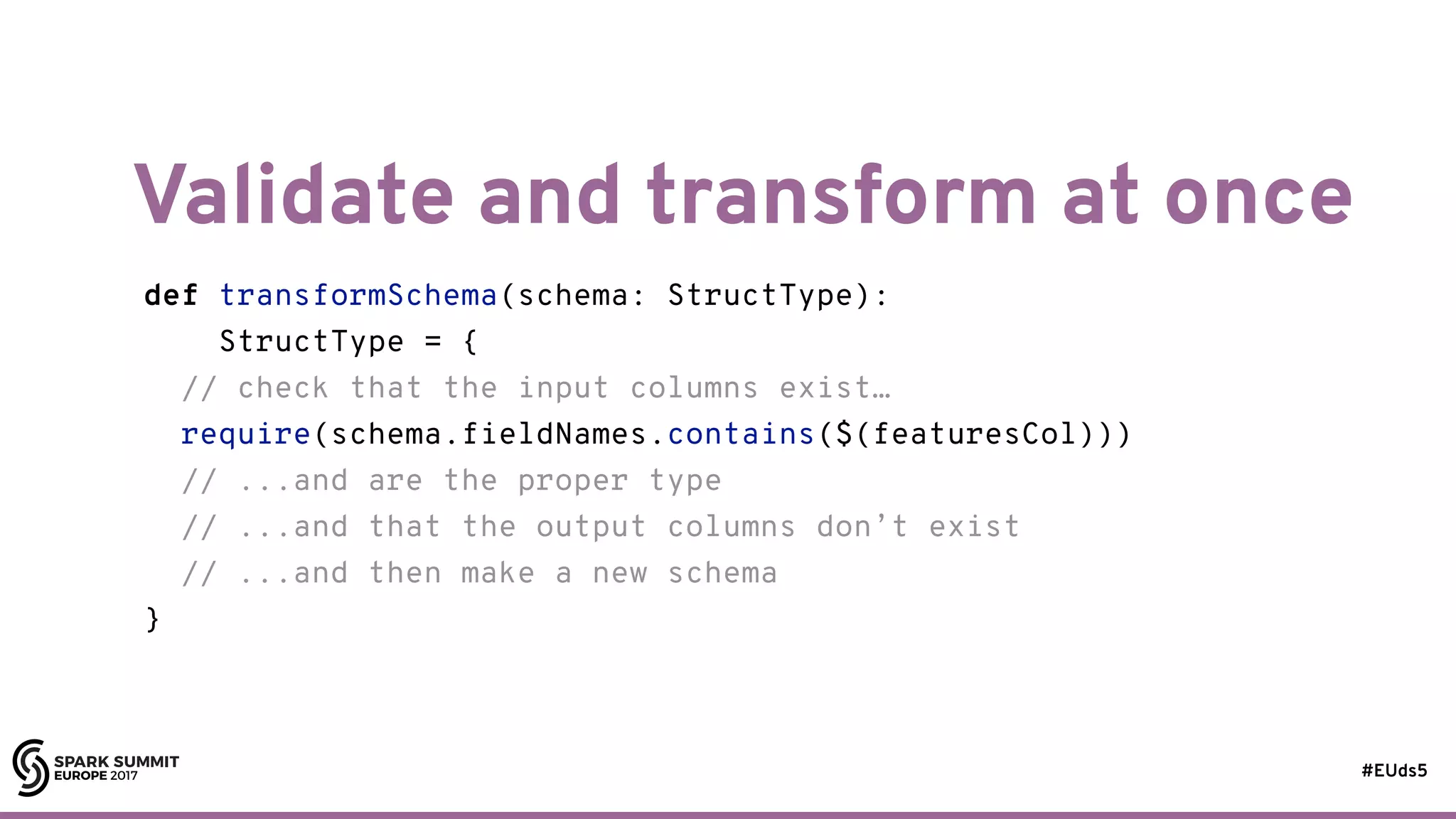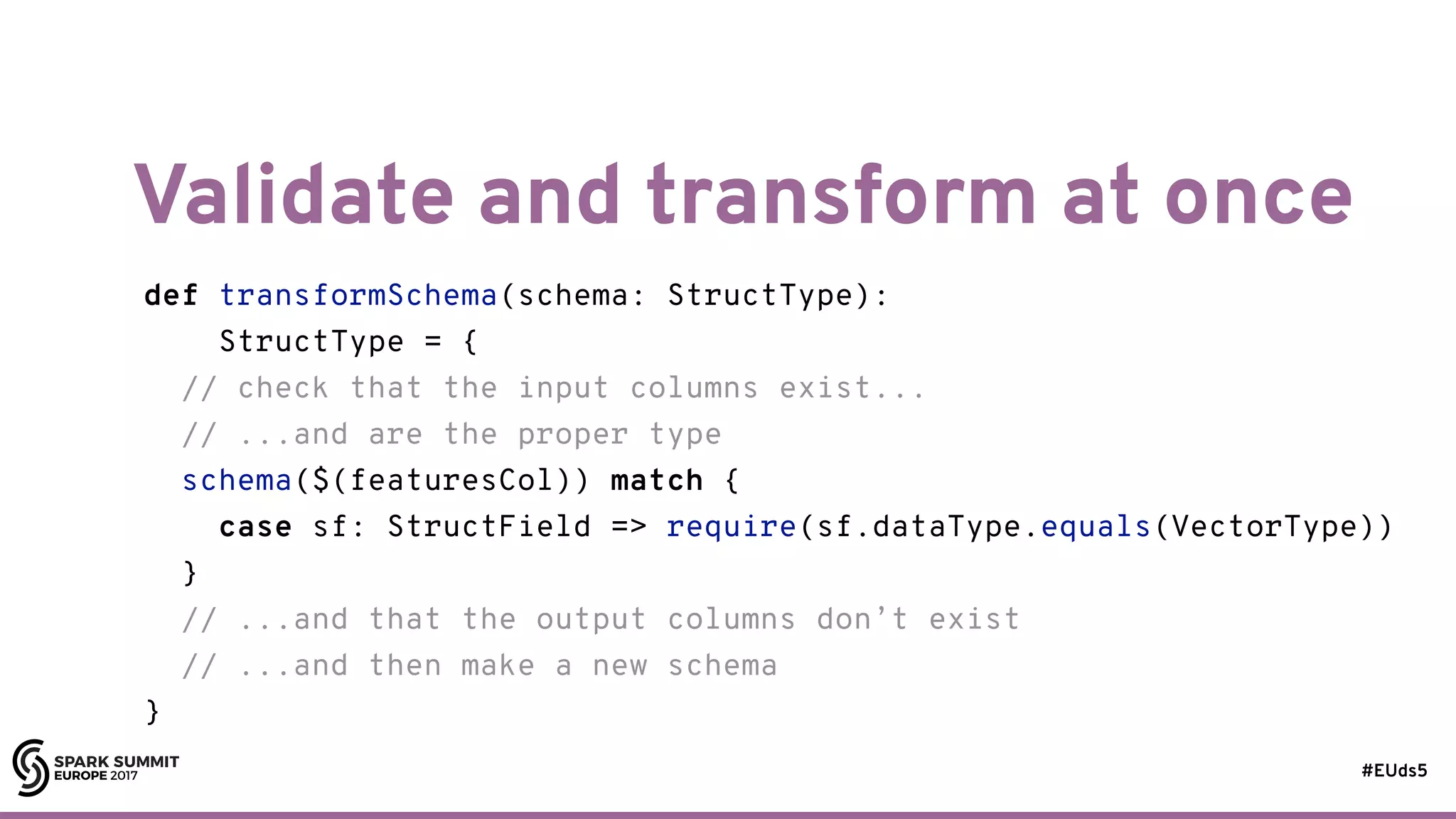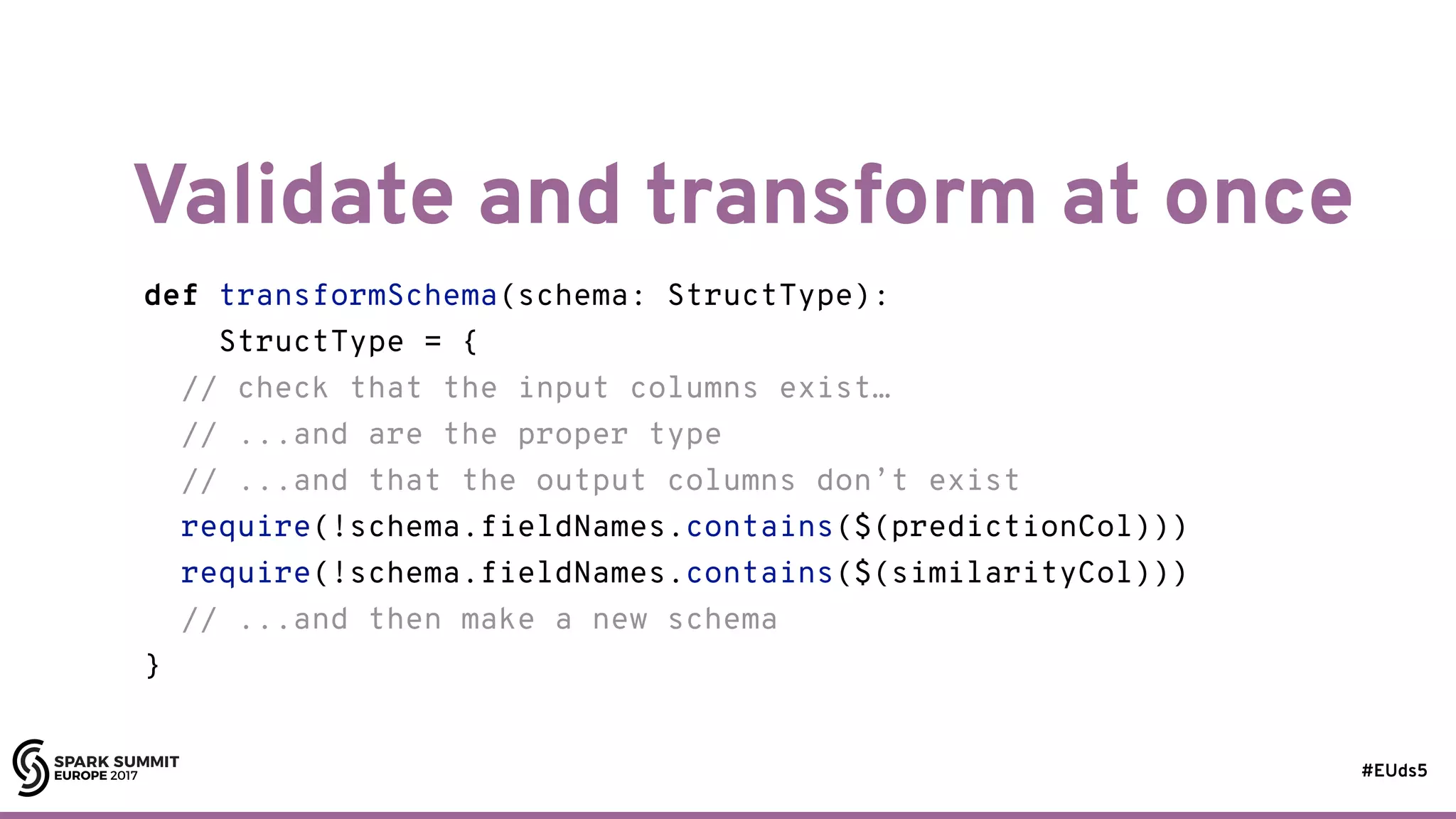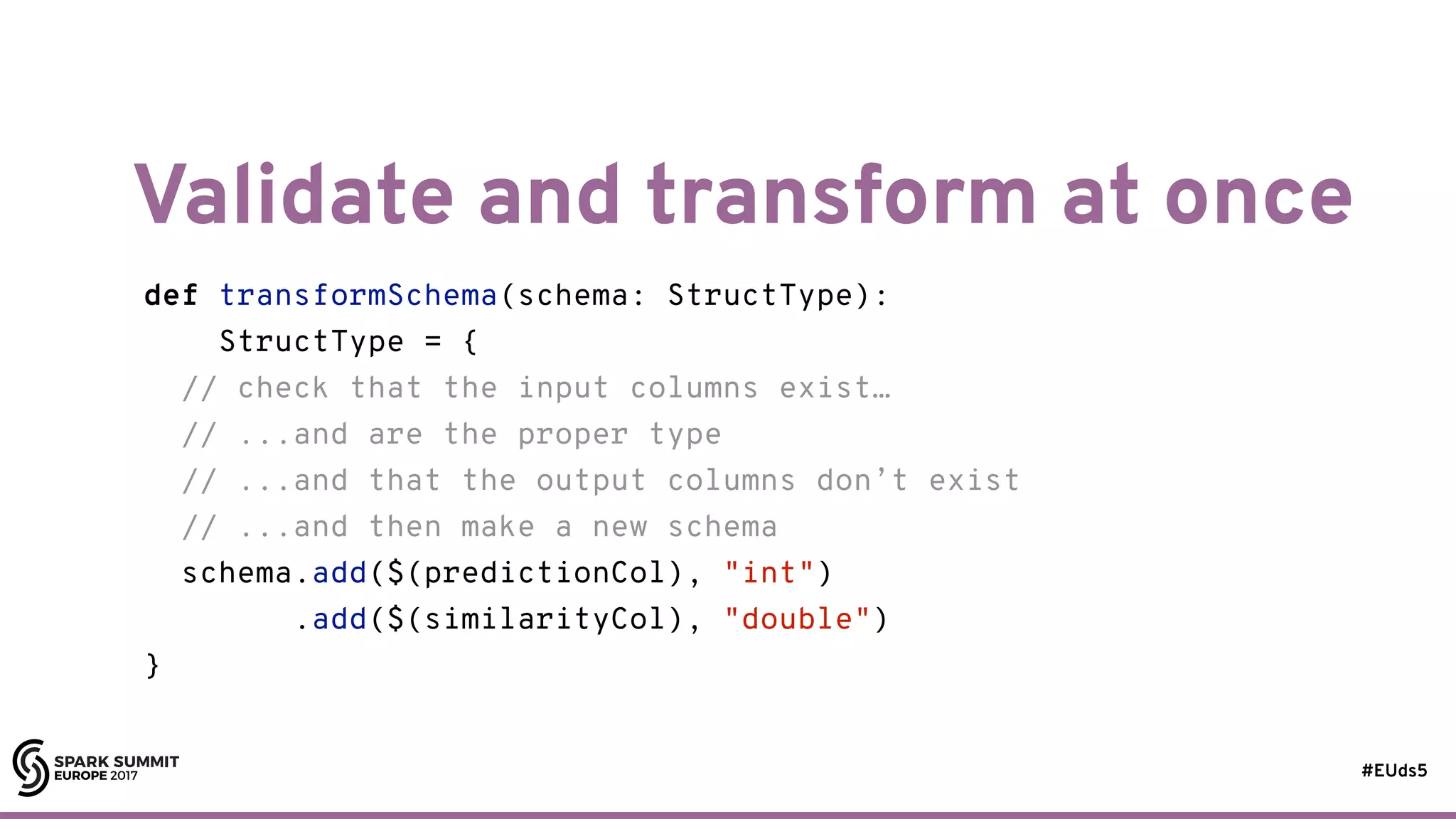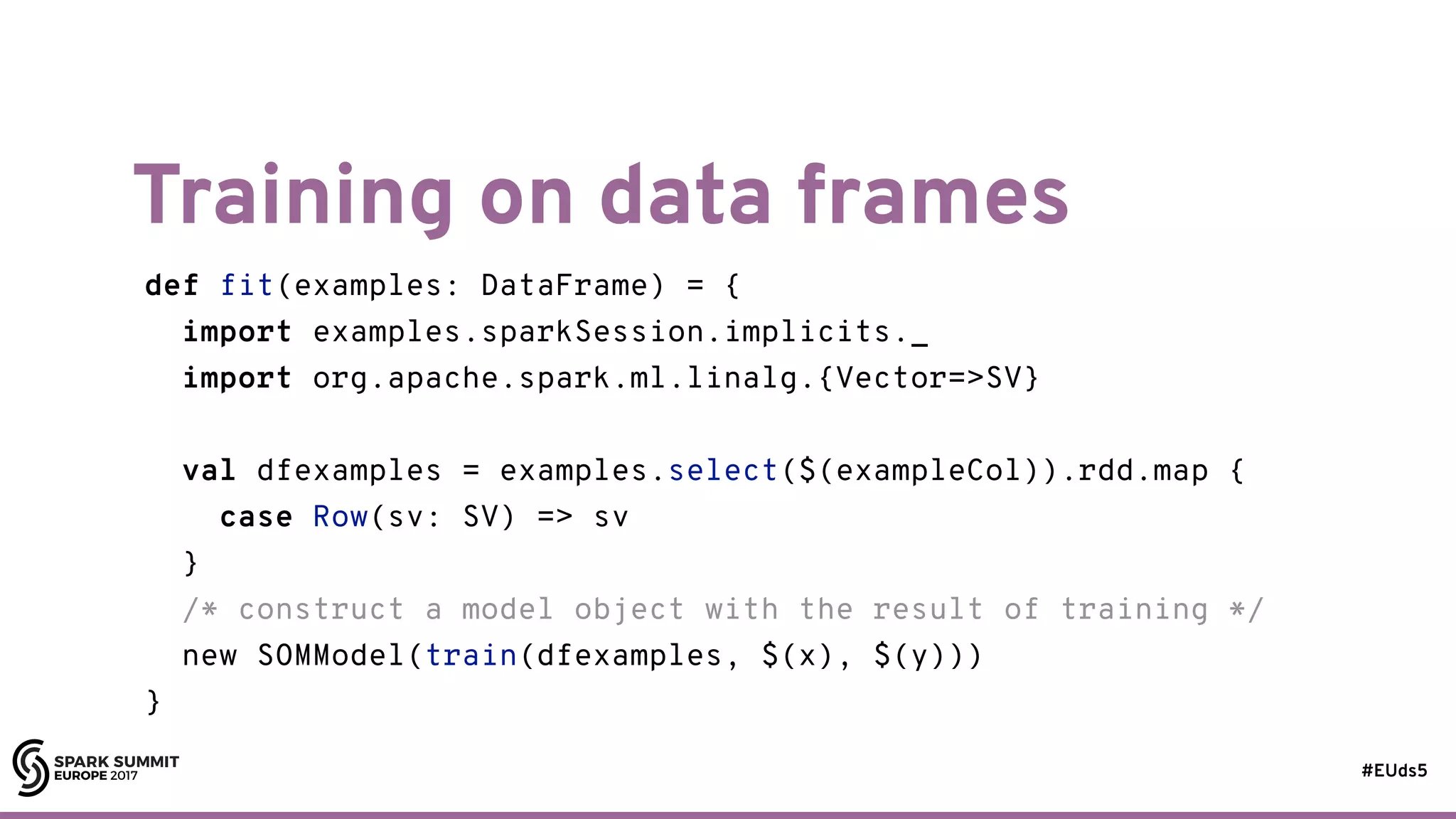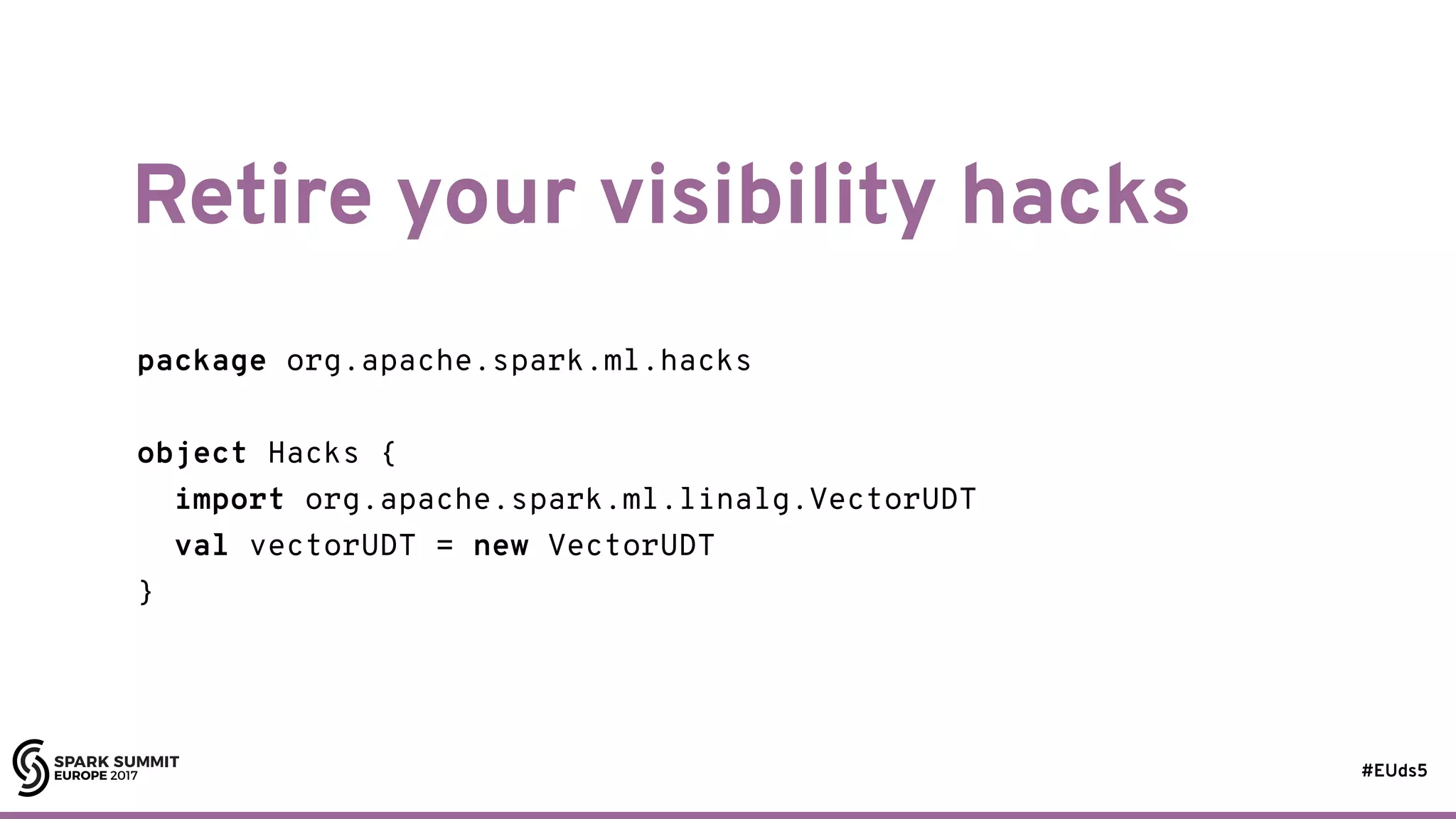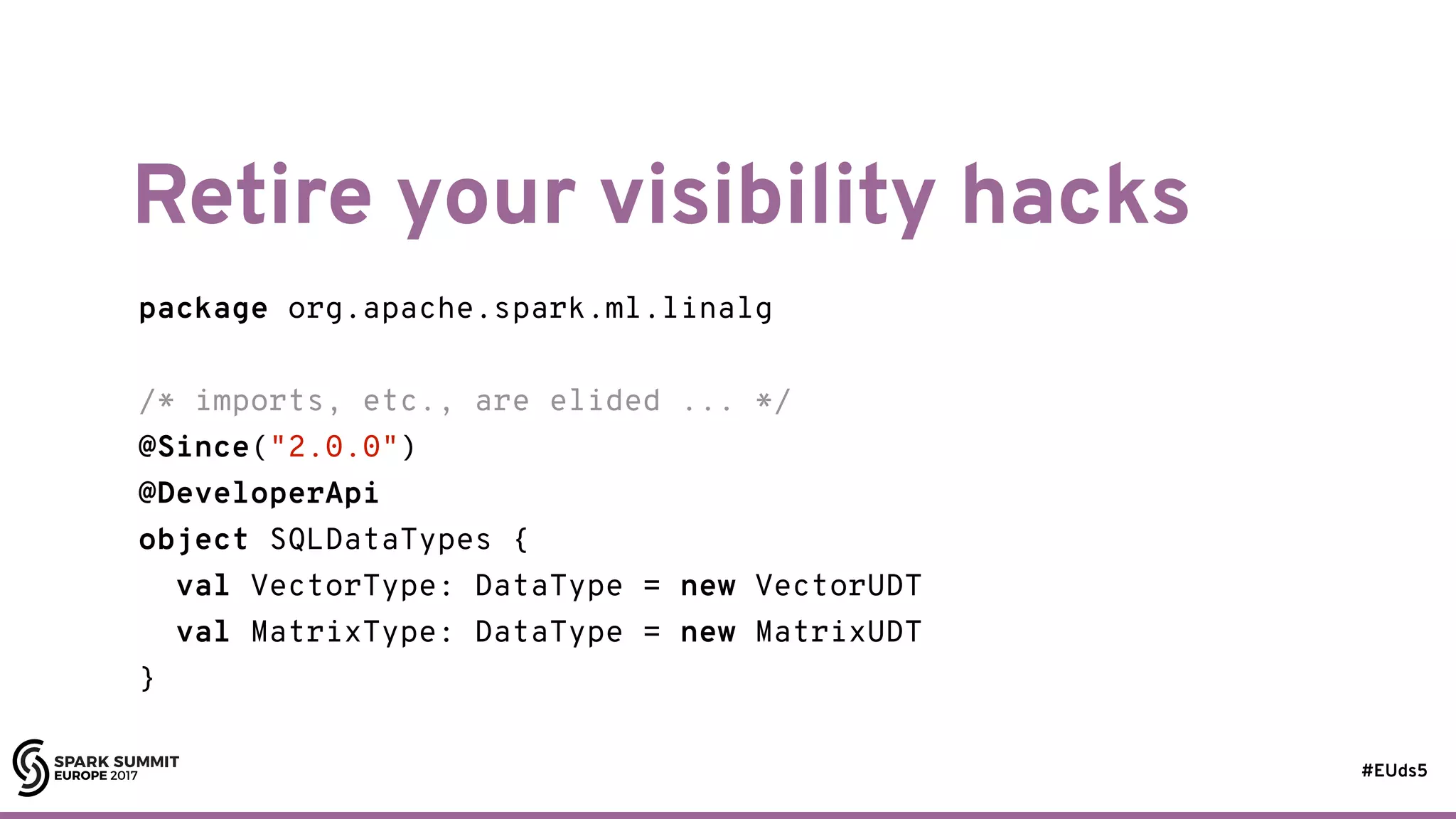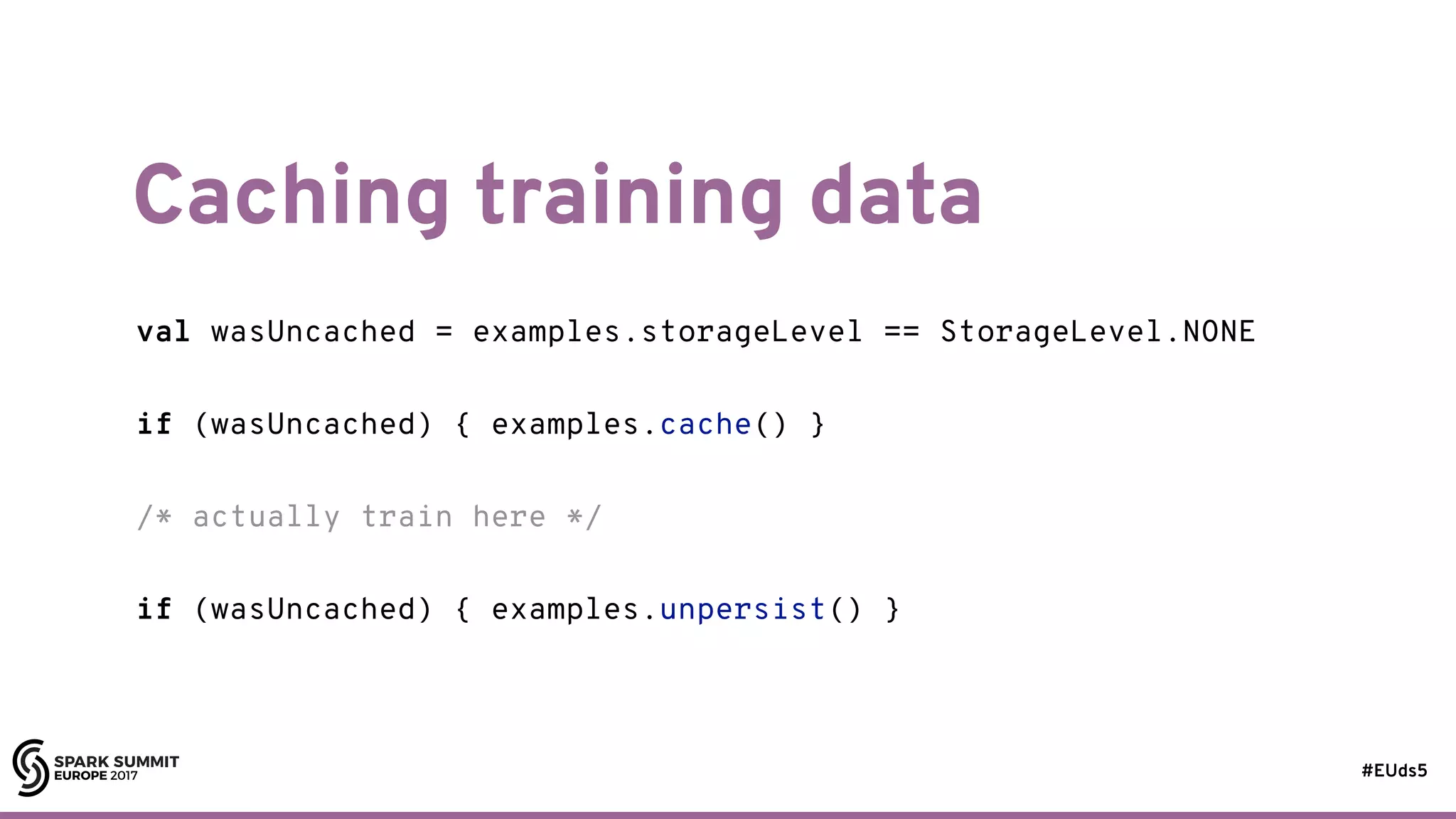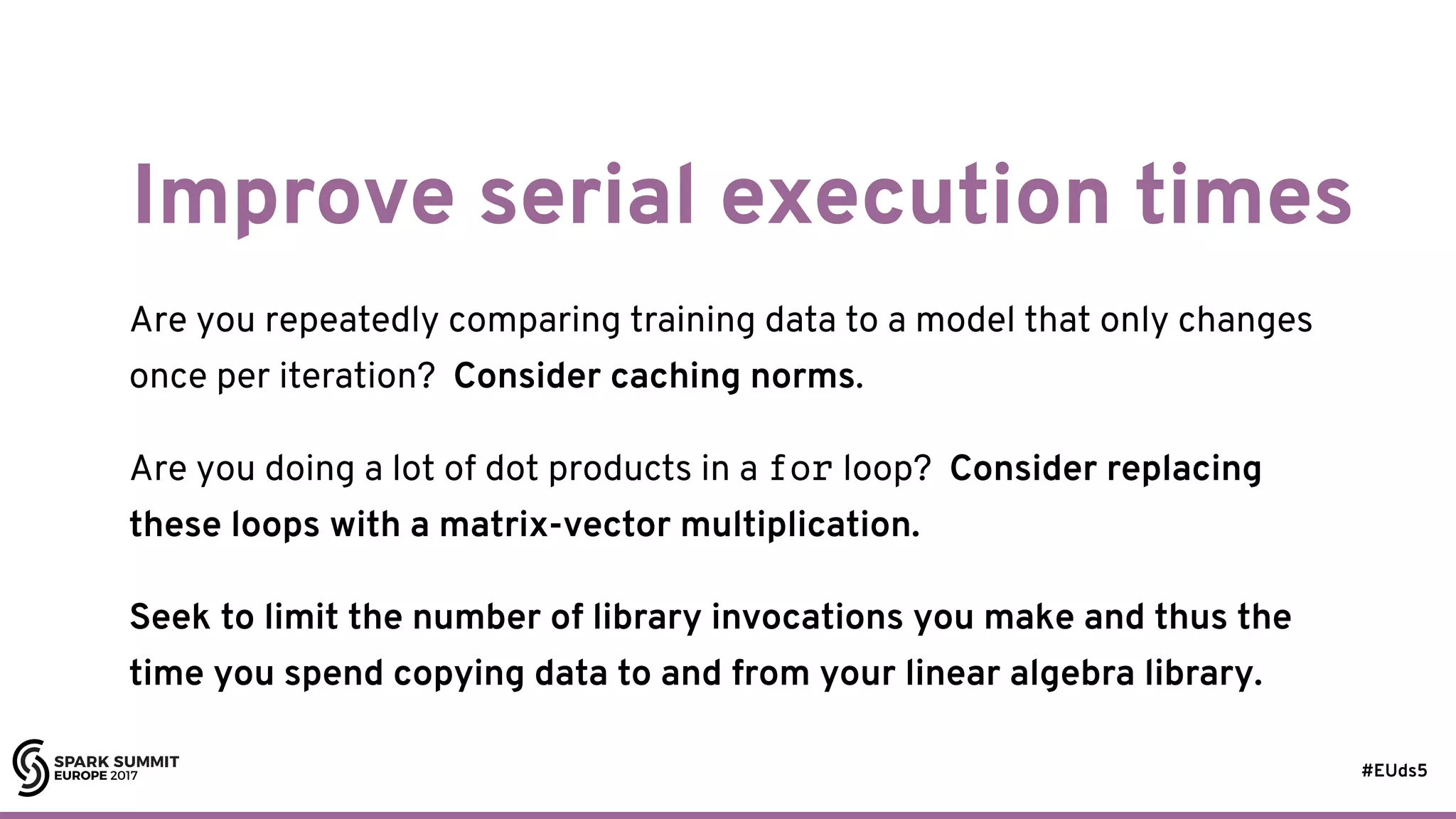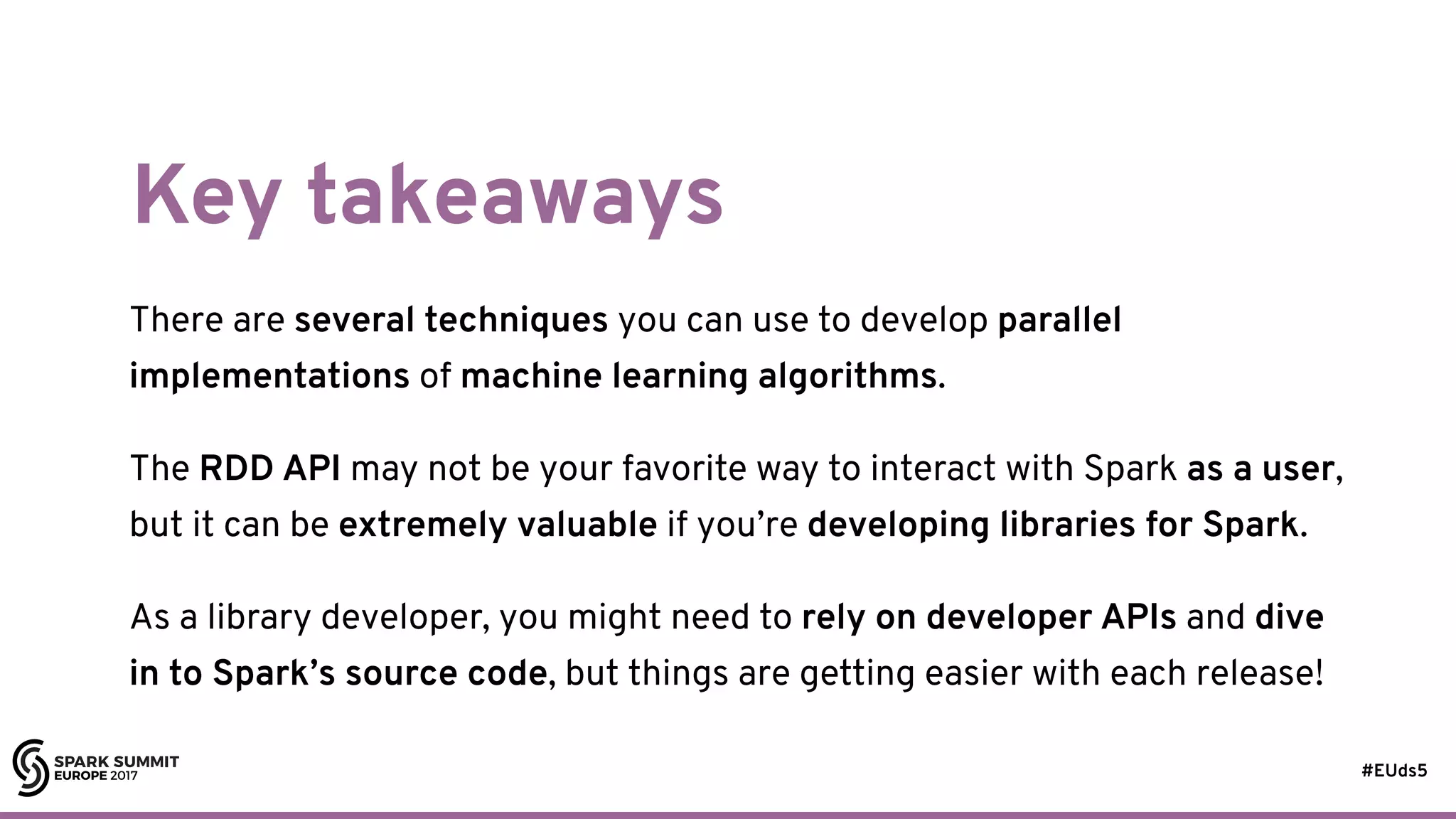The document discusses building machine learning algorithms on Apache Spark, focusing on self-organizing maps (SOMs) and their practical implementation in parallel environments. It covers techniques for training SOMs using partitioned collections, with essential considerations on the learning rate and neighborhood size. Additionally, it explores the transition from RDDs to DataFrames and ML pipelines, highlighting methods for efficiently processing data and evolving models in a distributed architecture.
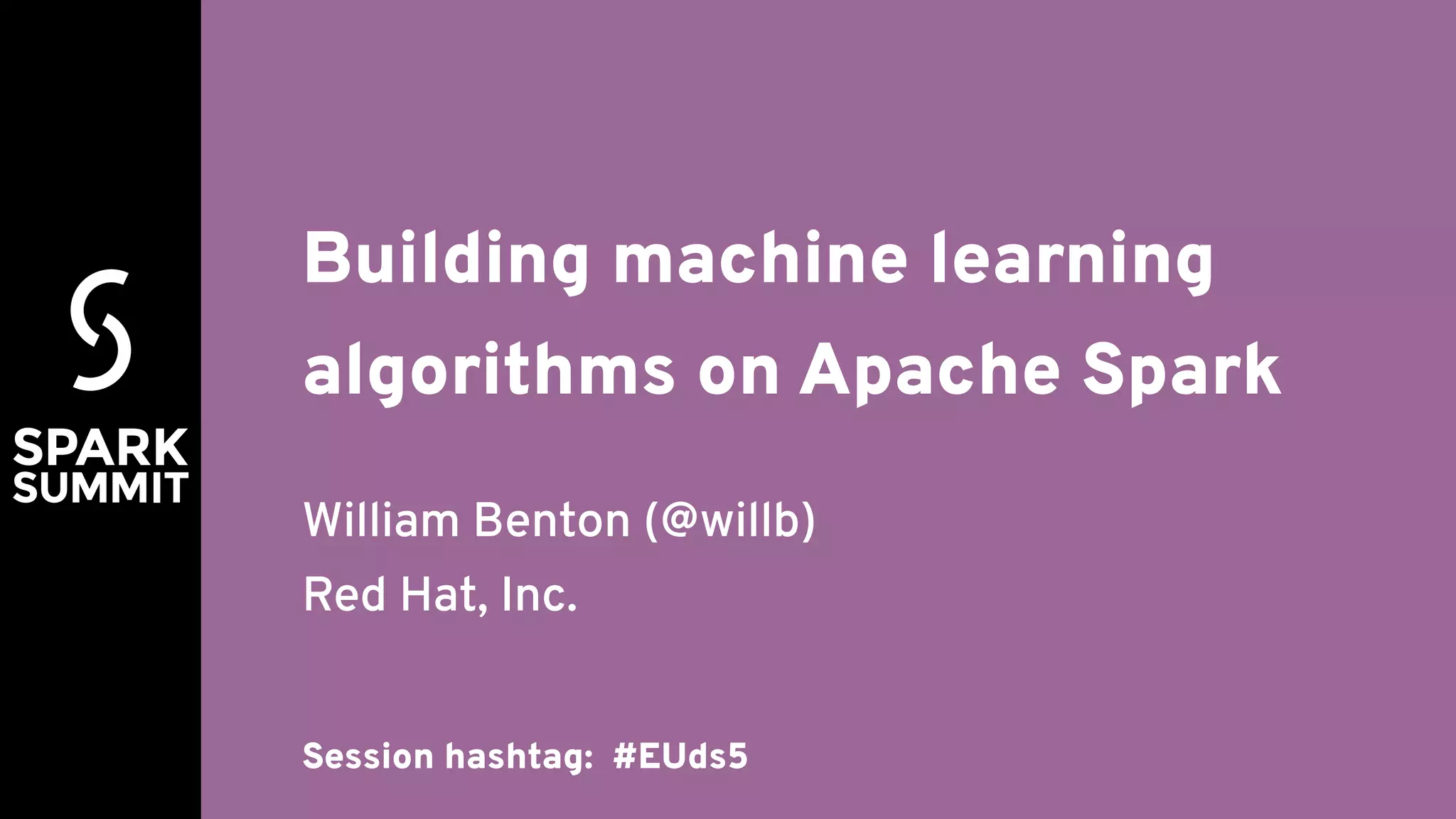
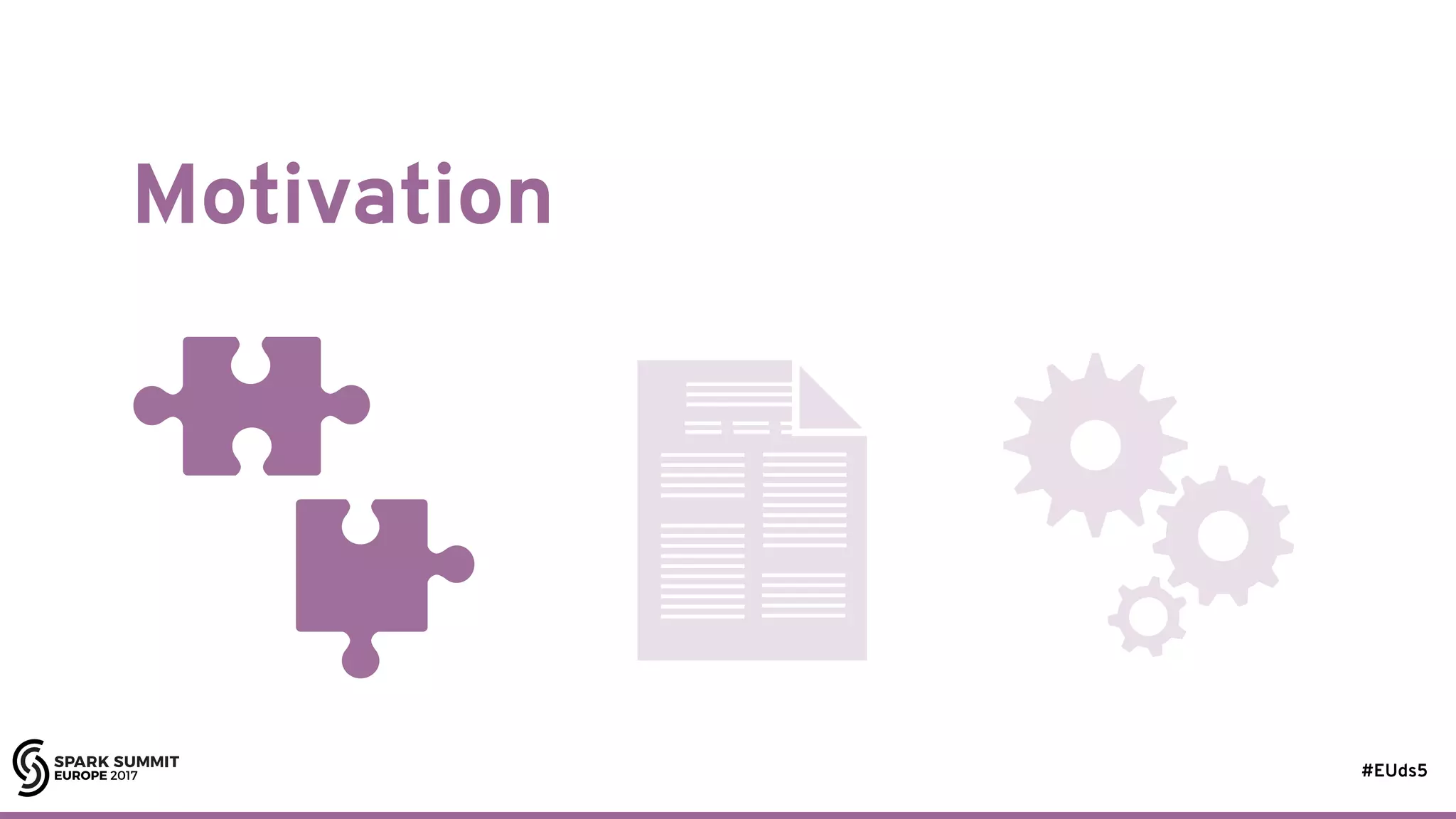
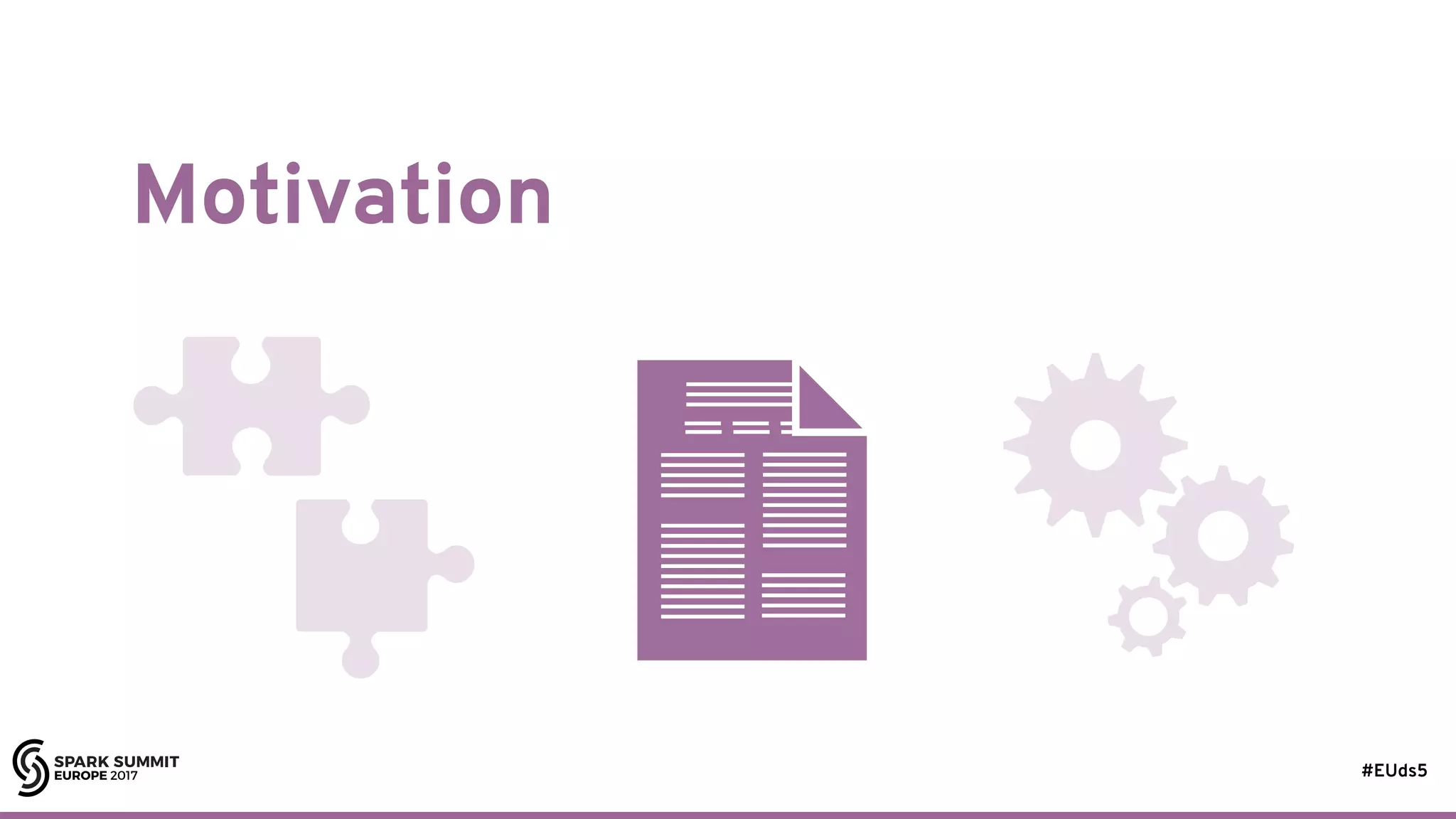
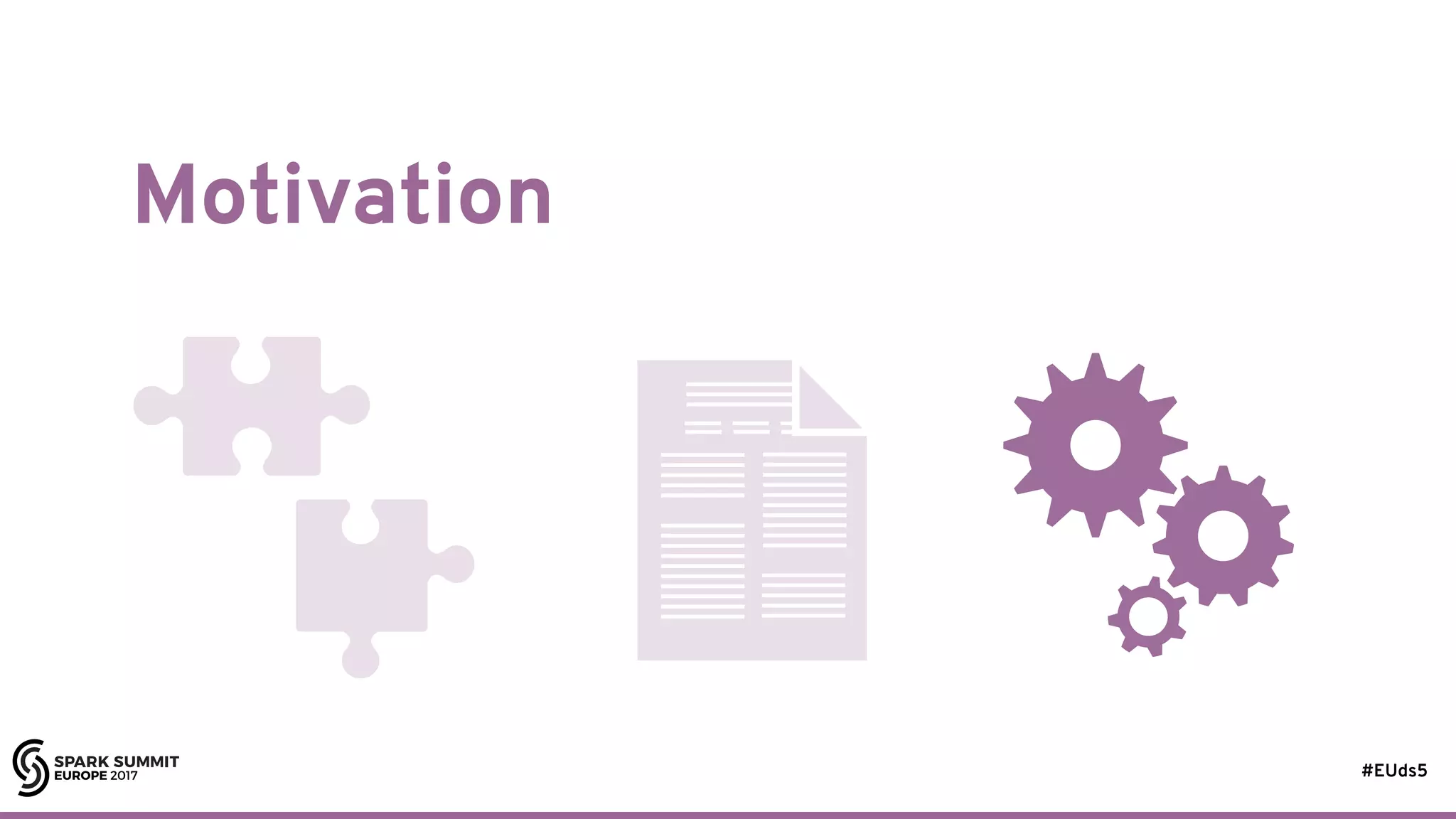
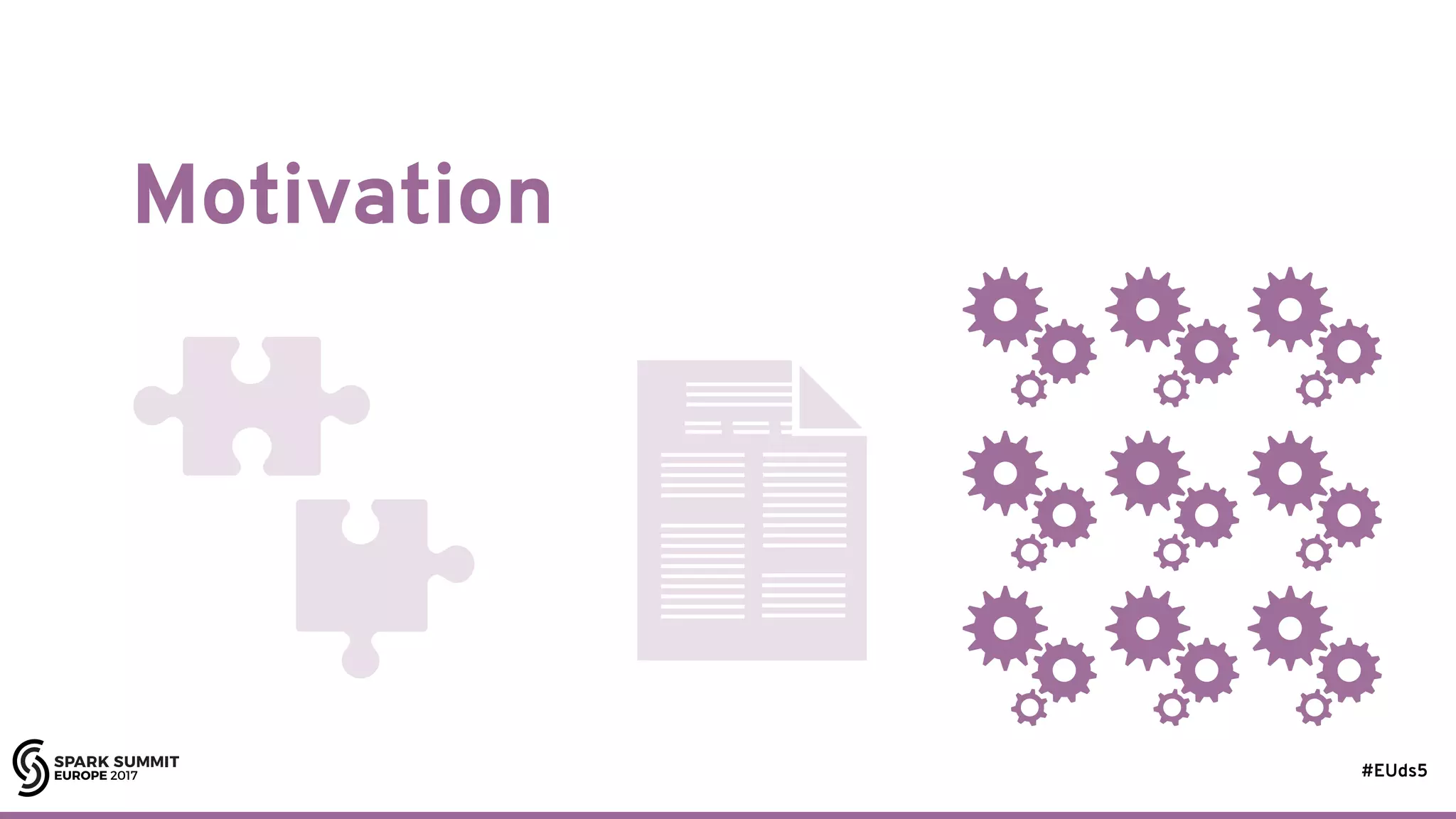
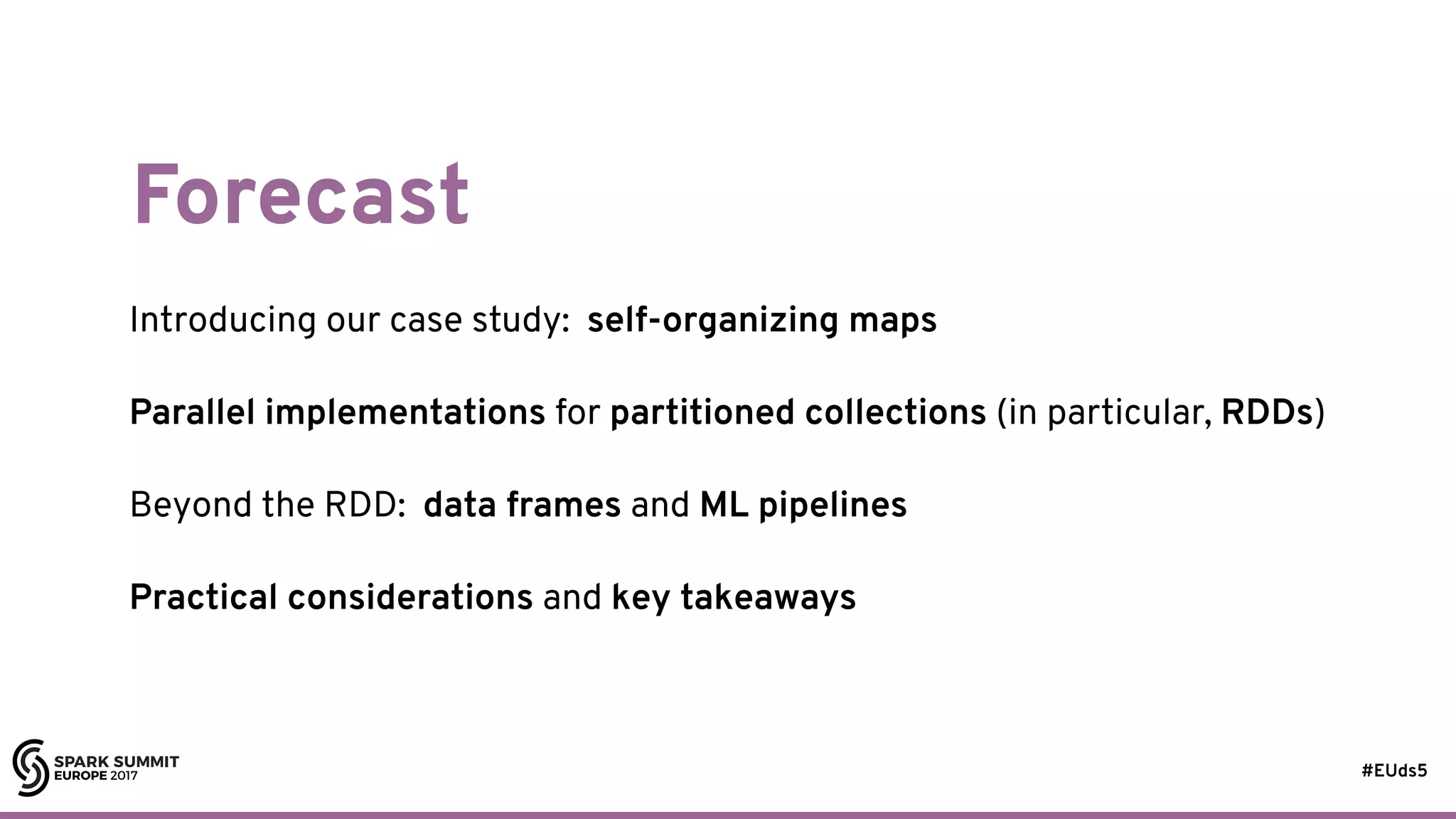



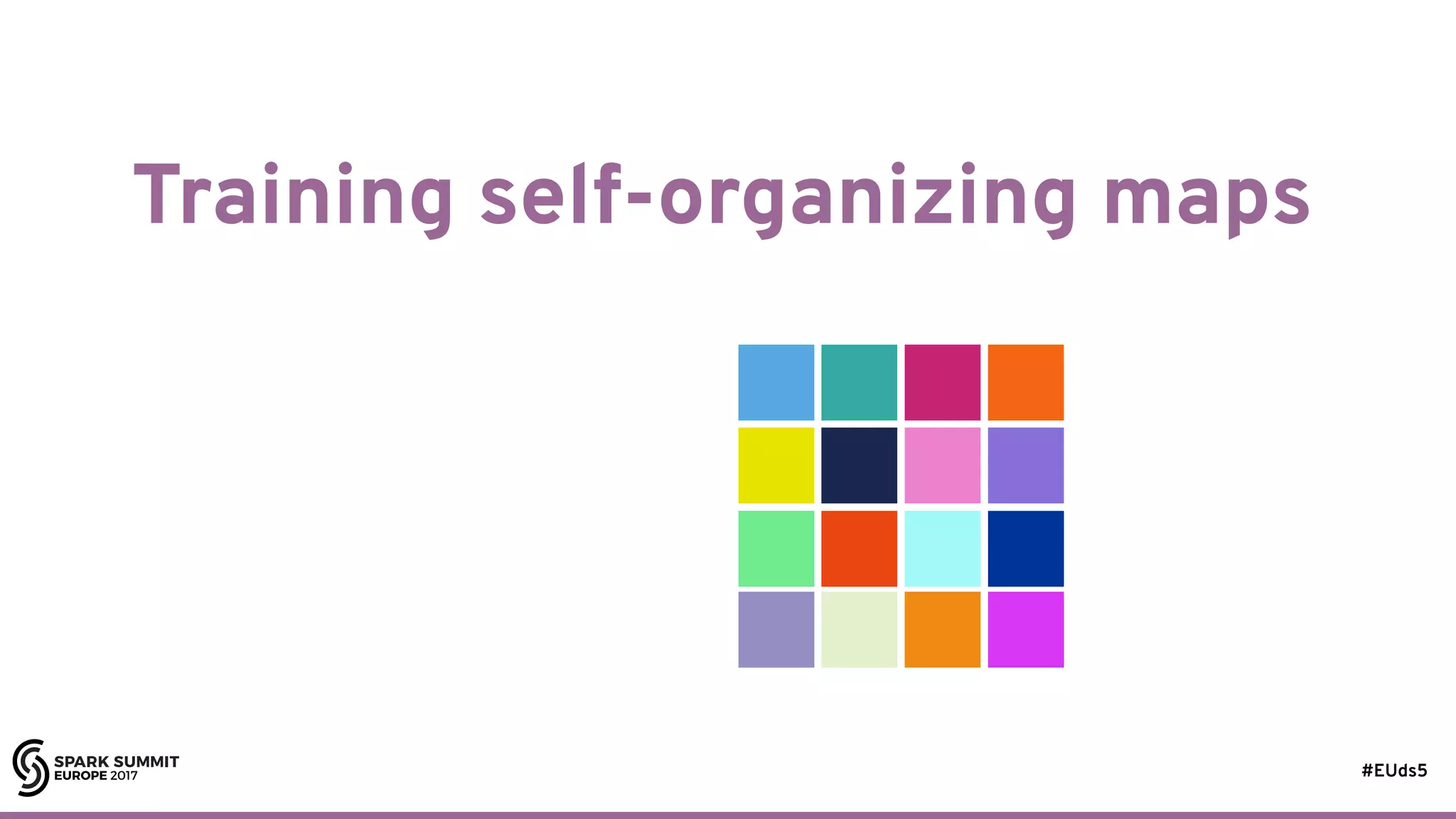
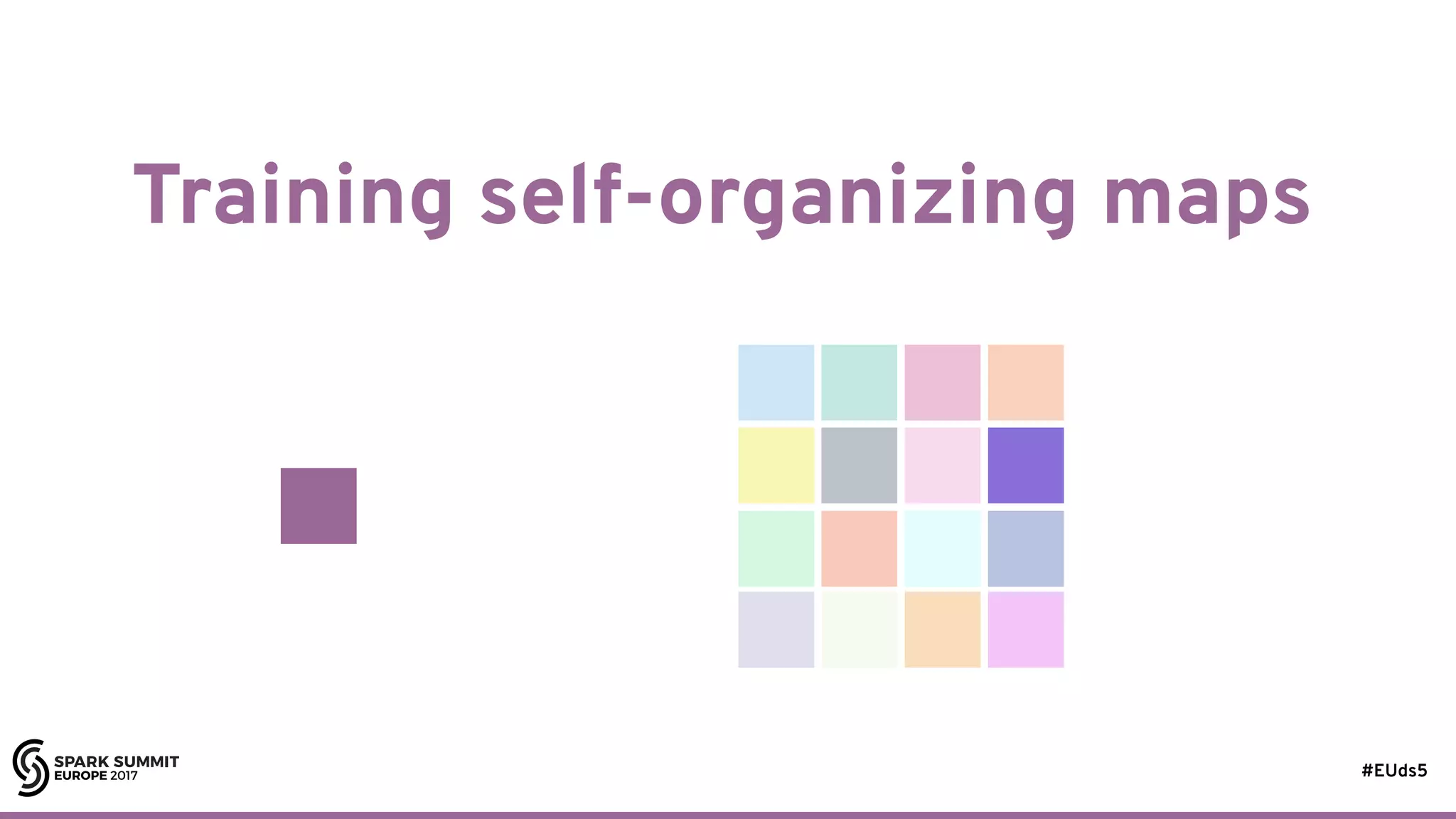
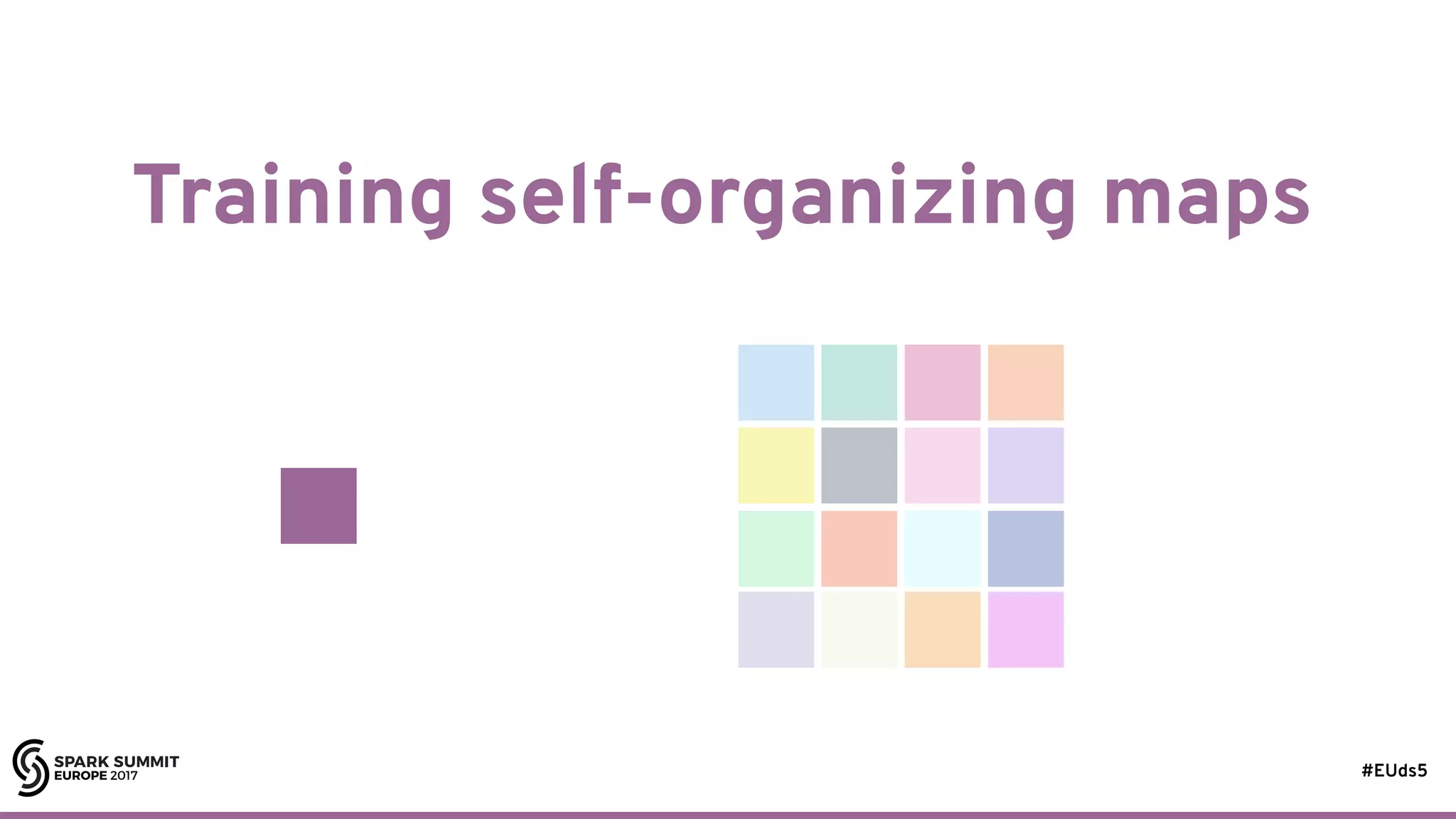
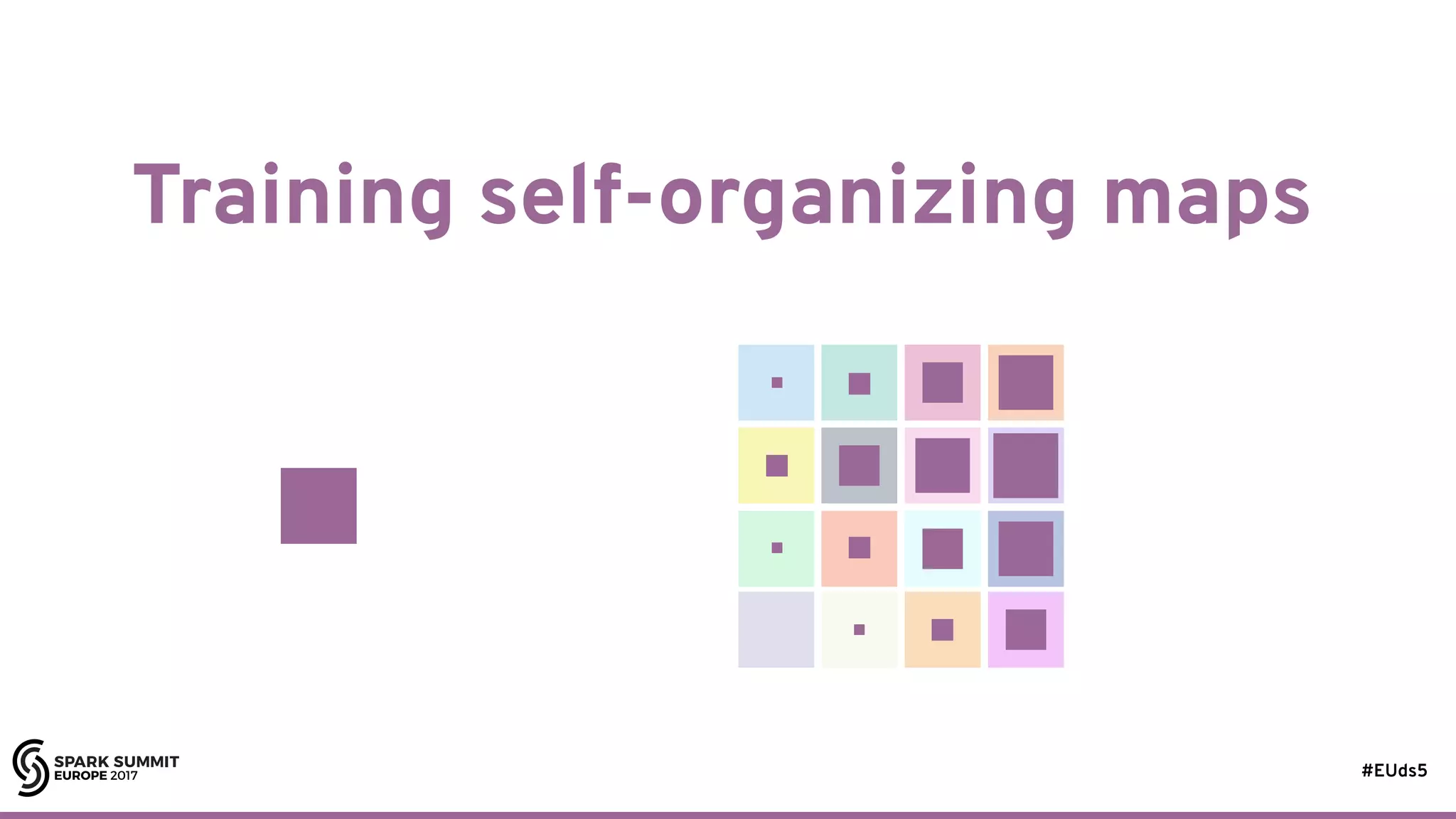
![#EUds5 Training self-organizing maps 12 while t < maxupdates: random.shuffle(examples) for ex in examples: t = t + 1 if t == maxupdates: break bestMatch = closest(somt, ex) for (unit, wt) in neighborhood(bestMatch, sigma(t)): somt+1[unit] = somt[unit] + (ex - somt[unit]) * alpha(t) * wt](https://image.slidesharecdn.com/lb5williambenton-171031212144/75/Building-Machine-Learning-Algorithms-on-Apache-Spark-with-William-Benton-14-2048.jpg)
![#EUds5 Training self-organizing maps 12 while t < maxupdates: random.shuffle(examples) for ex in examples: t = t + 1 if t == maxupdates: break bestMatch = closest(somt, ex) for (unit, wt) in neighborhood(bestMatch, sigma(t)): somt+1[unit] = somt[unit] + (ex - somt[unit]) * alpha(t) * wt process the training set in random order](https://image.slidesharecdn.com/lb5williambenton-171031212144/75/Building-Machine-Learning-Algorithms-on-Apache-Spark-with-William-Benton-15-2048.jpg)
![#EUds5 Training self-organizing maps 12 while t < maxupdates: random.shuffle(examples) for ex in examples: t = t + 1 if t == maxupdates: break bestMatch = closest(somt, ex) for (unit, wt) in neighborhood(bestMatch, sigma(t)): somt+1[unit] = somt[unit] + (ex - somt[unit]) * alpha(t) * wt process the training set in random order the neighborhood size controls how much of the map around the BMU is affected](https://image.slidesharecdn.com/lb5williambenton-171031212144/75/Building-Machine-Learning-Algorithms-on-Apache-Spark-with-William-Benton-16-2048.jpg)
![#EUds5 Training self-organizing maps 12 while t < maxupdates: random.shuffle(examples) for ex in examples: t = t + 1 if t == maxupdates: break bestMatch = closest(somt, ex) for (unit, wt) in neighborhood(bestMatch, sigma(t)): somt+1[unit] = somt[unit] + (ex - somt[unit]) * alpha(t) * wt process the training set in random order the neighborhood size controls how much of the map around the BMU is affected the learning rate controls how much closer to the example each unit gets](https://image.slidesharecdn.com/lb5williambenton-171031212144/75/Building-Machine-Learning-Algorithms-on-Apache-Spark-with-William-Benton-17-2048.jpg)
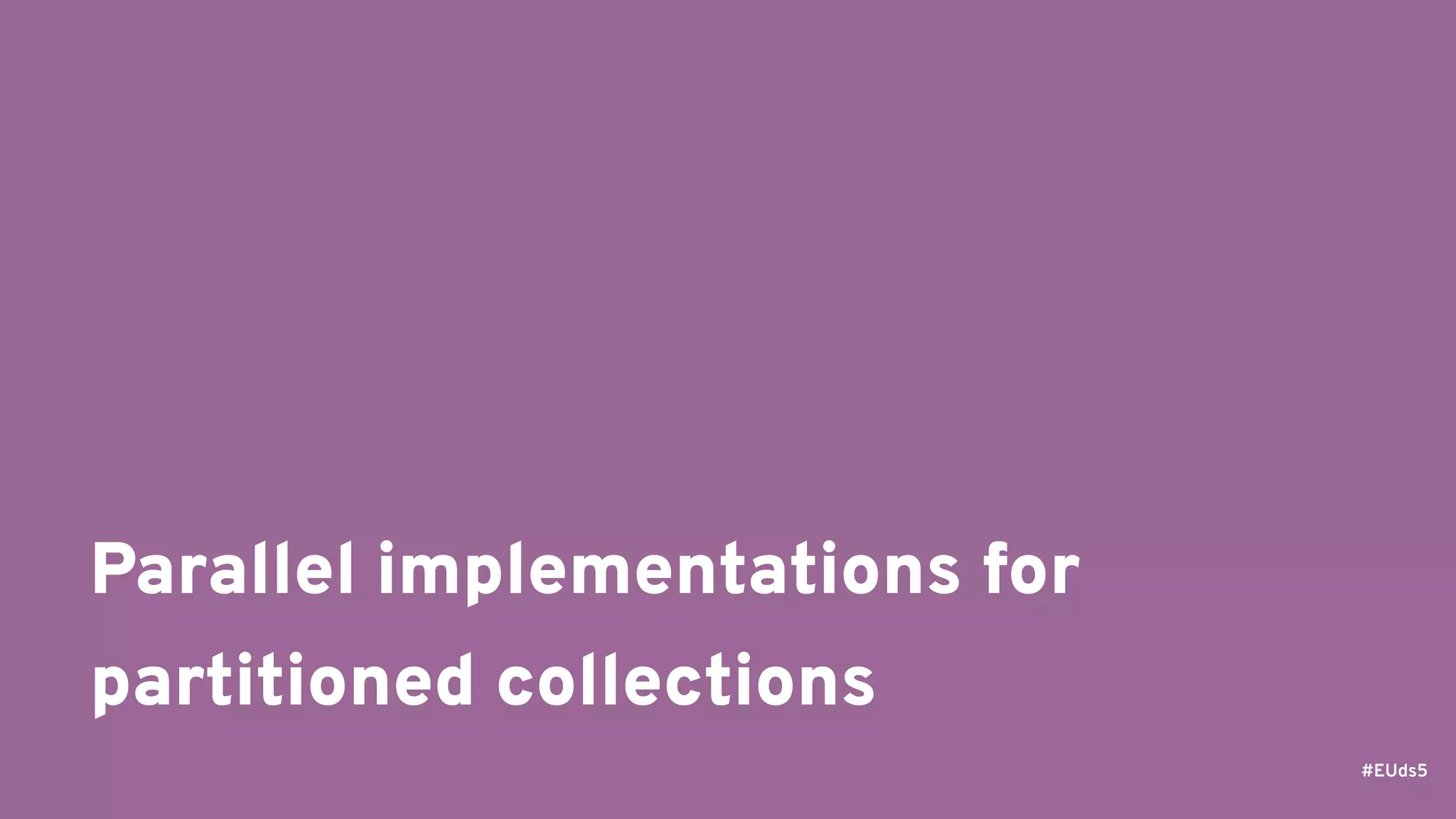
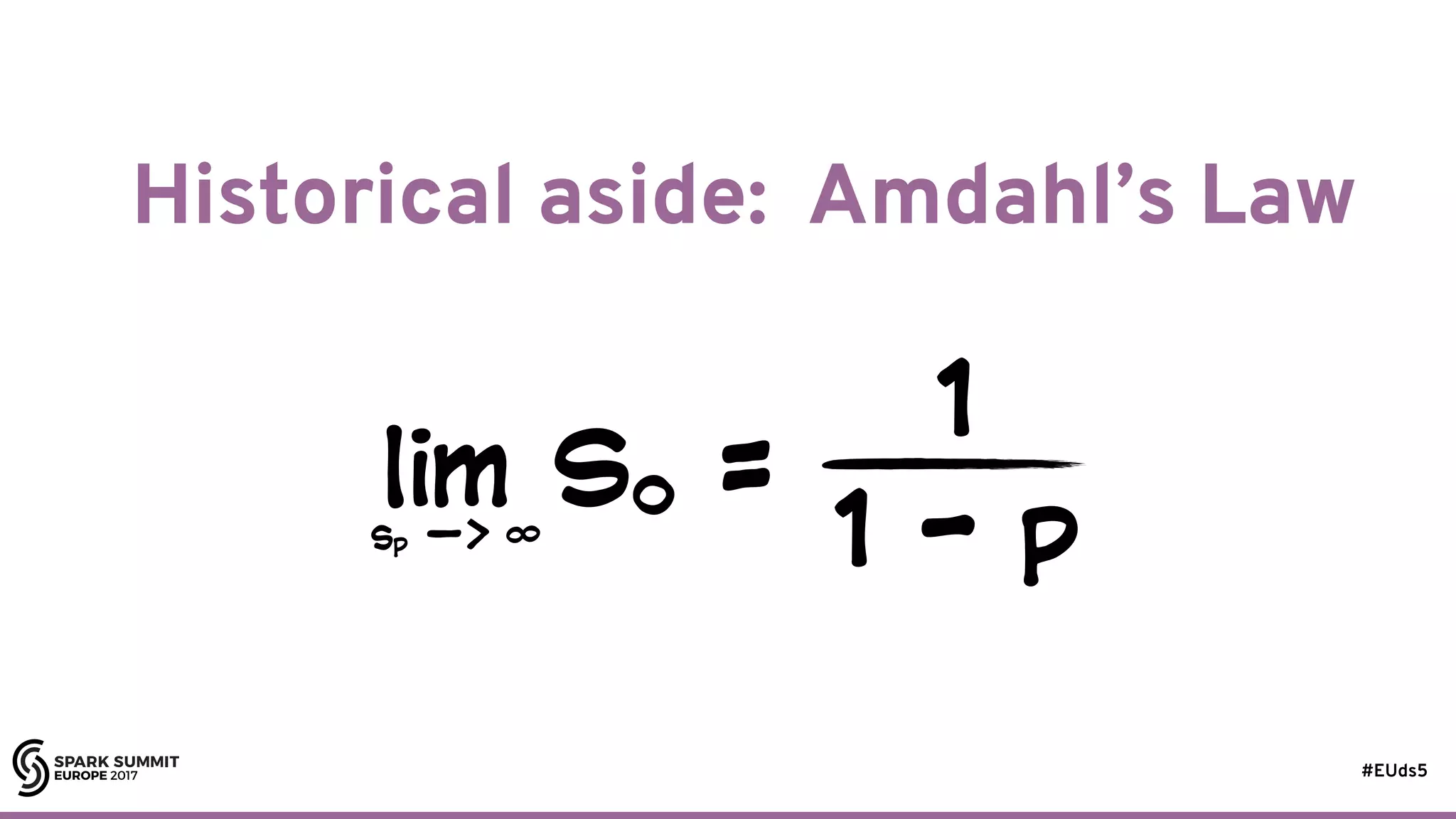
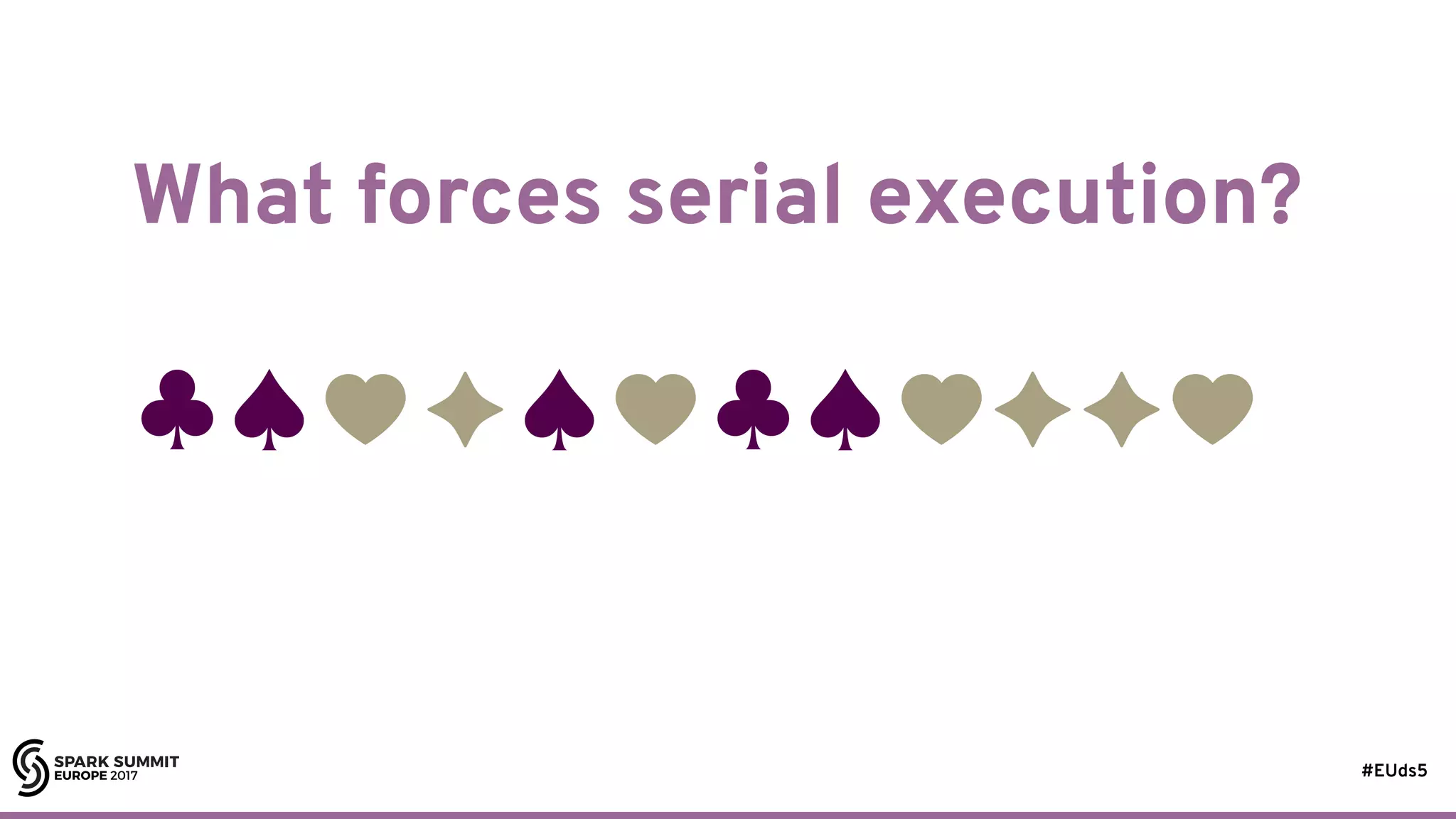
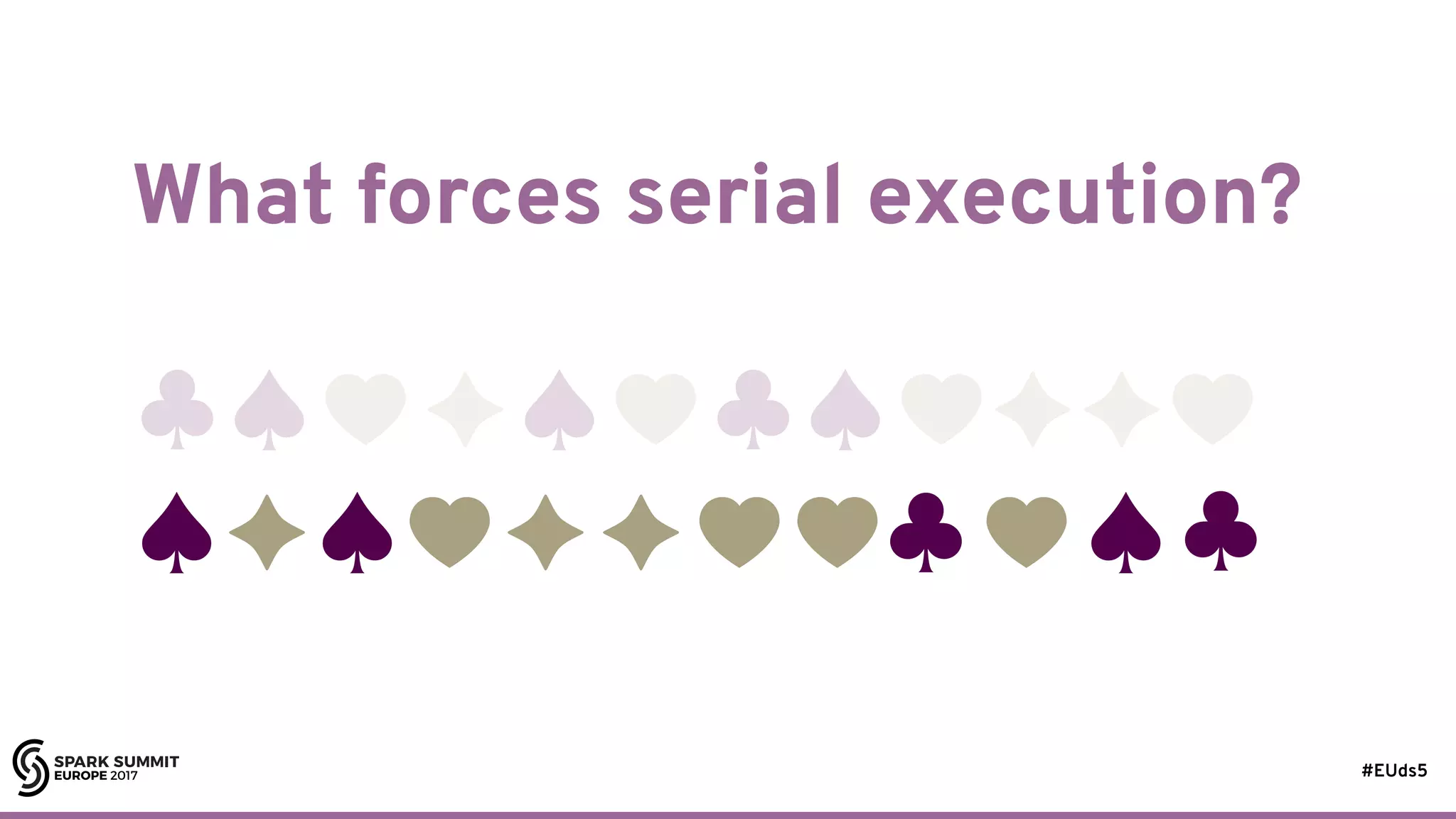
![#EUds5 What forces serial execution? 17 state[t+1] = combine(state[t], x)](https://image.slidesharecdn.com/lb5williambenton-171031212144/75/Building-Machine-Learning-Algorithms-on-Apache-Spark-with-William-Benton-22-2048.jpg)
![#EUds5 What forces serial execution? 18 state[t+1] = combine(state[t], x)](https://image.slidesharecdn.com/lb5williambenton-171031212144/75/Building-Machine-Learning-Algorithms-on-Apache-Spark-with-William-Benton-23-2048.jpg)
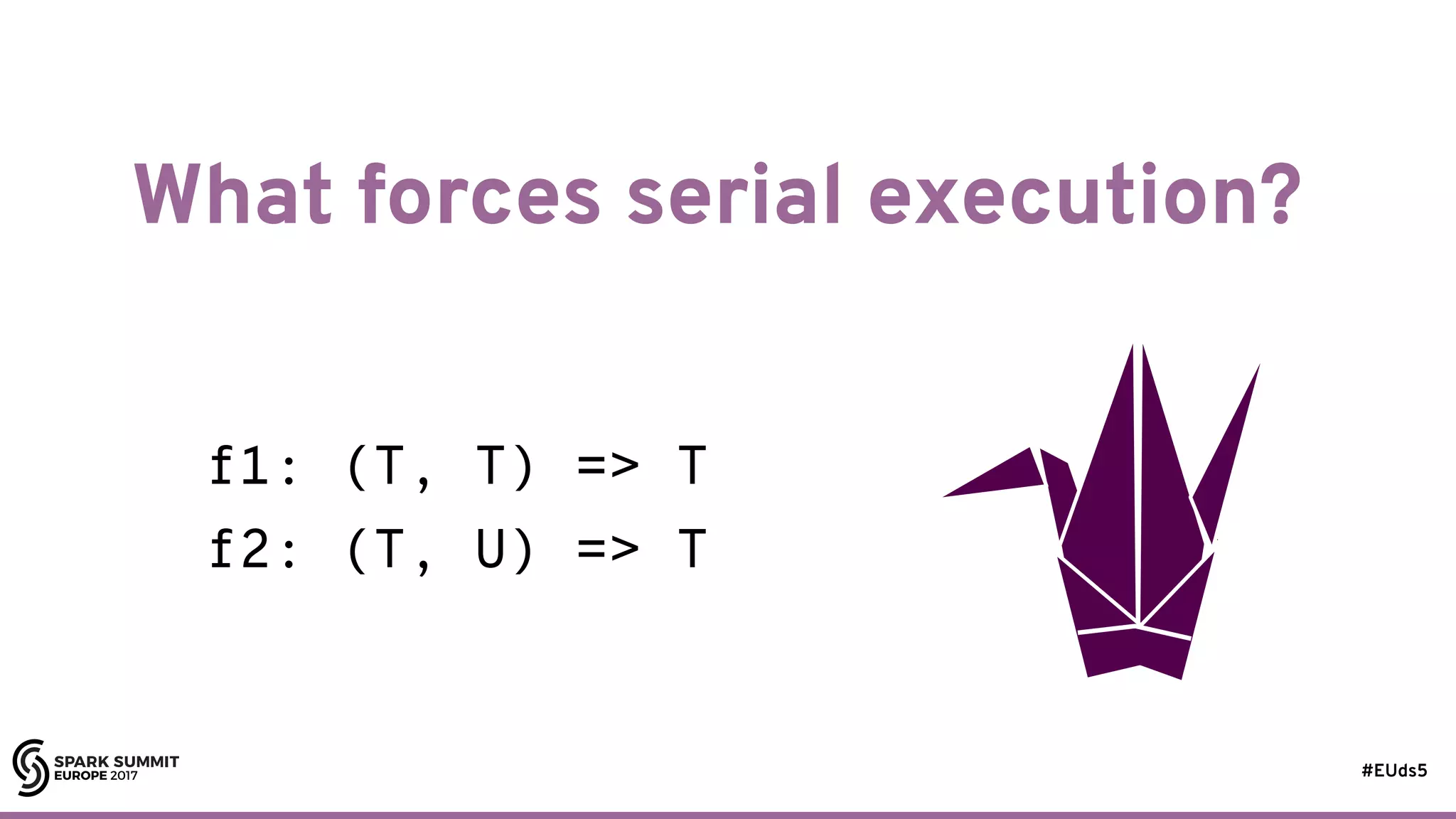
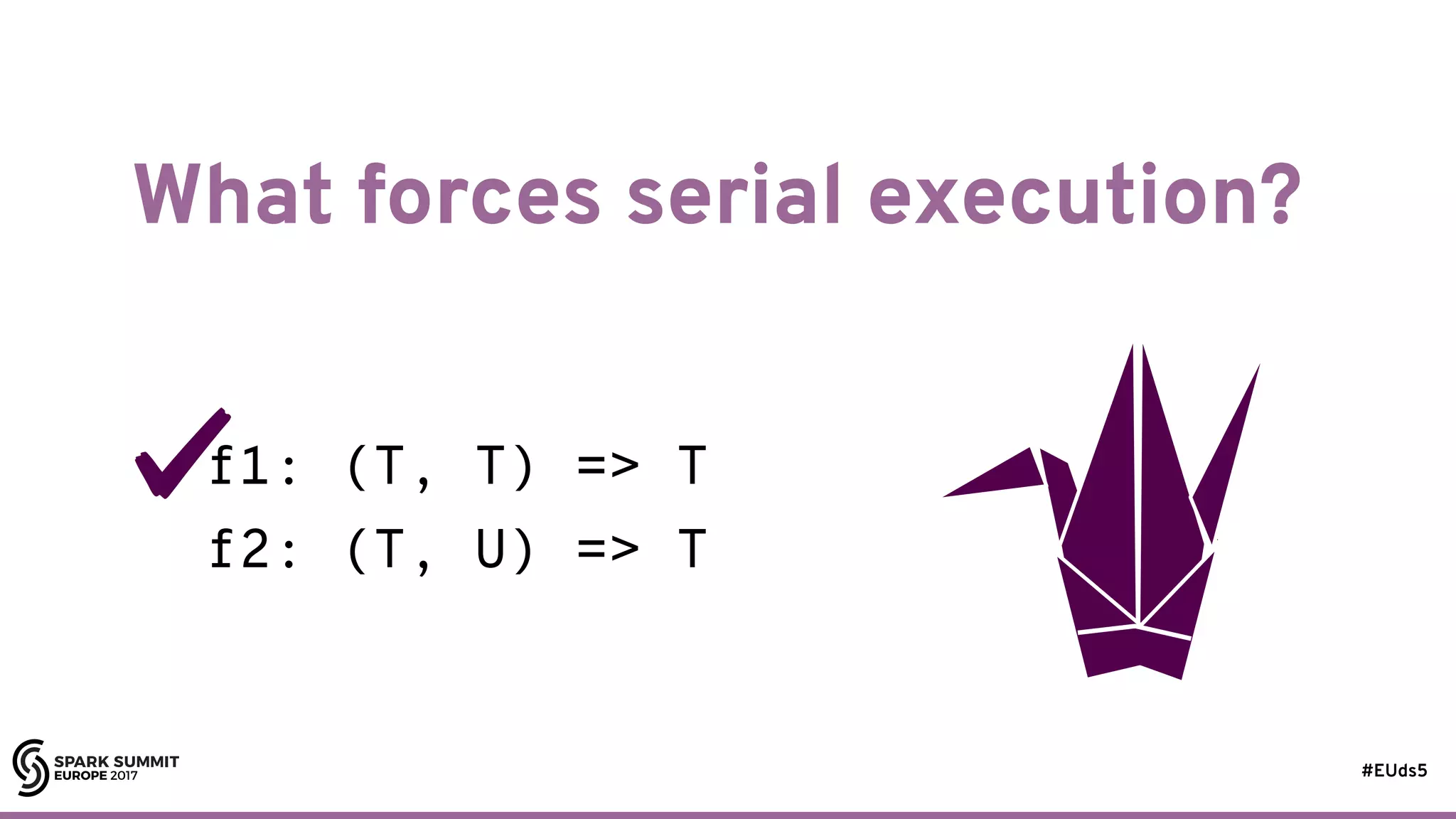
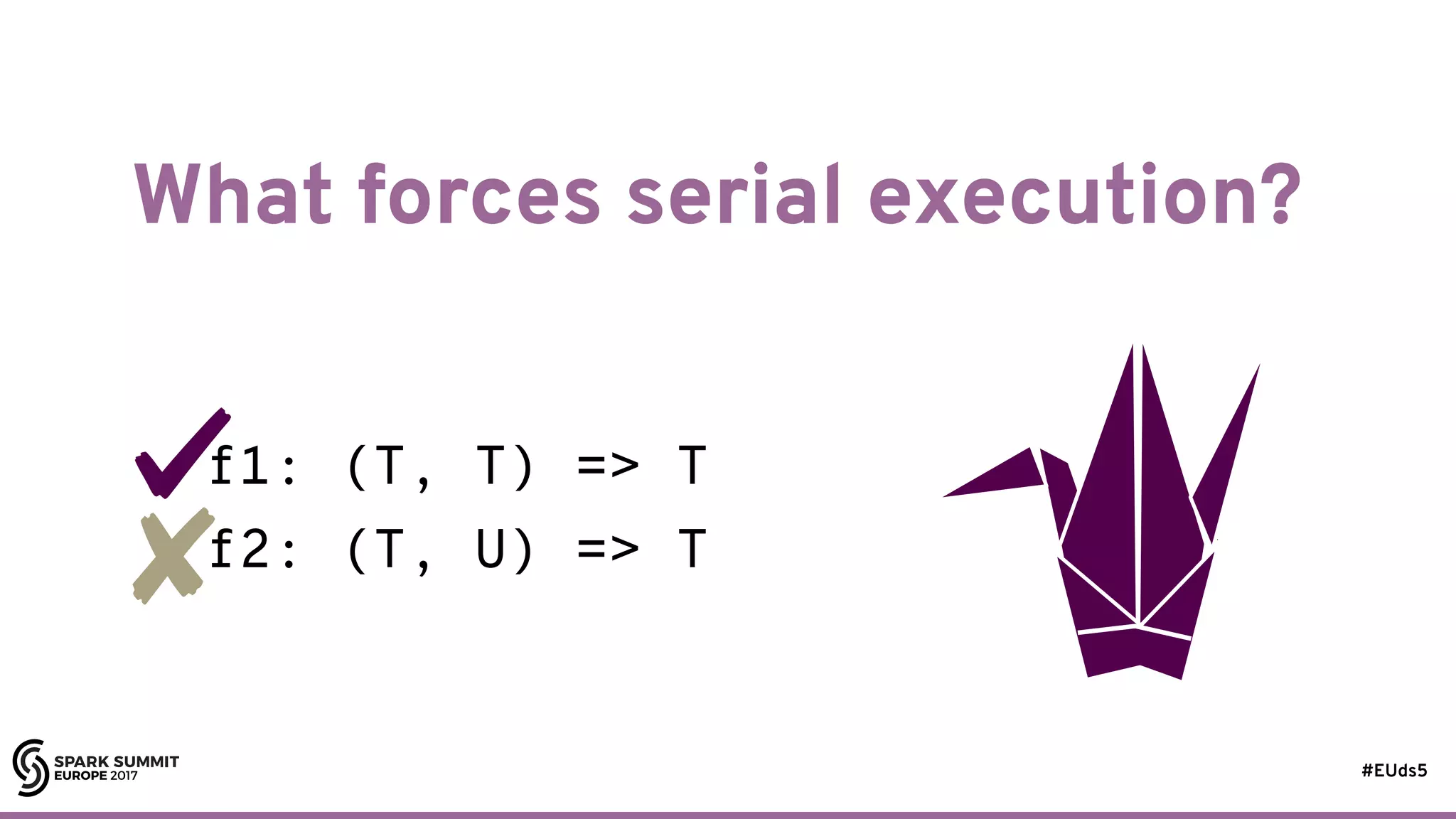
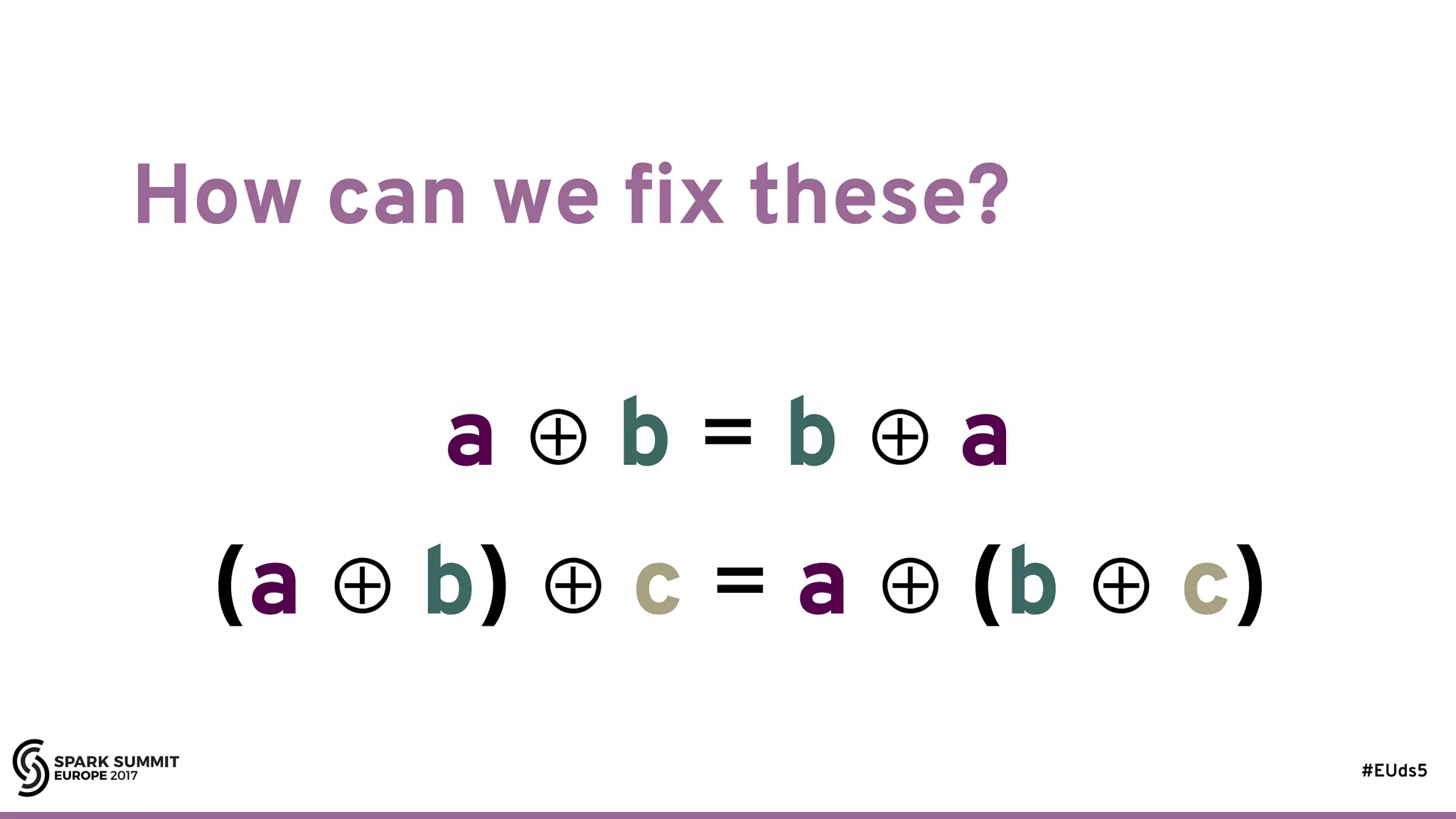
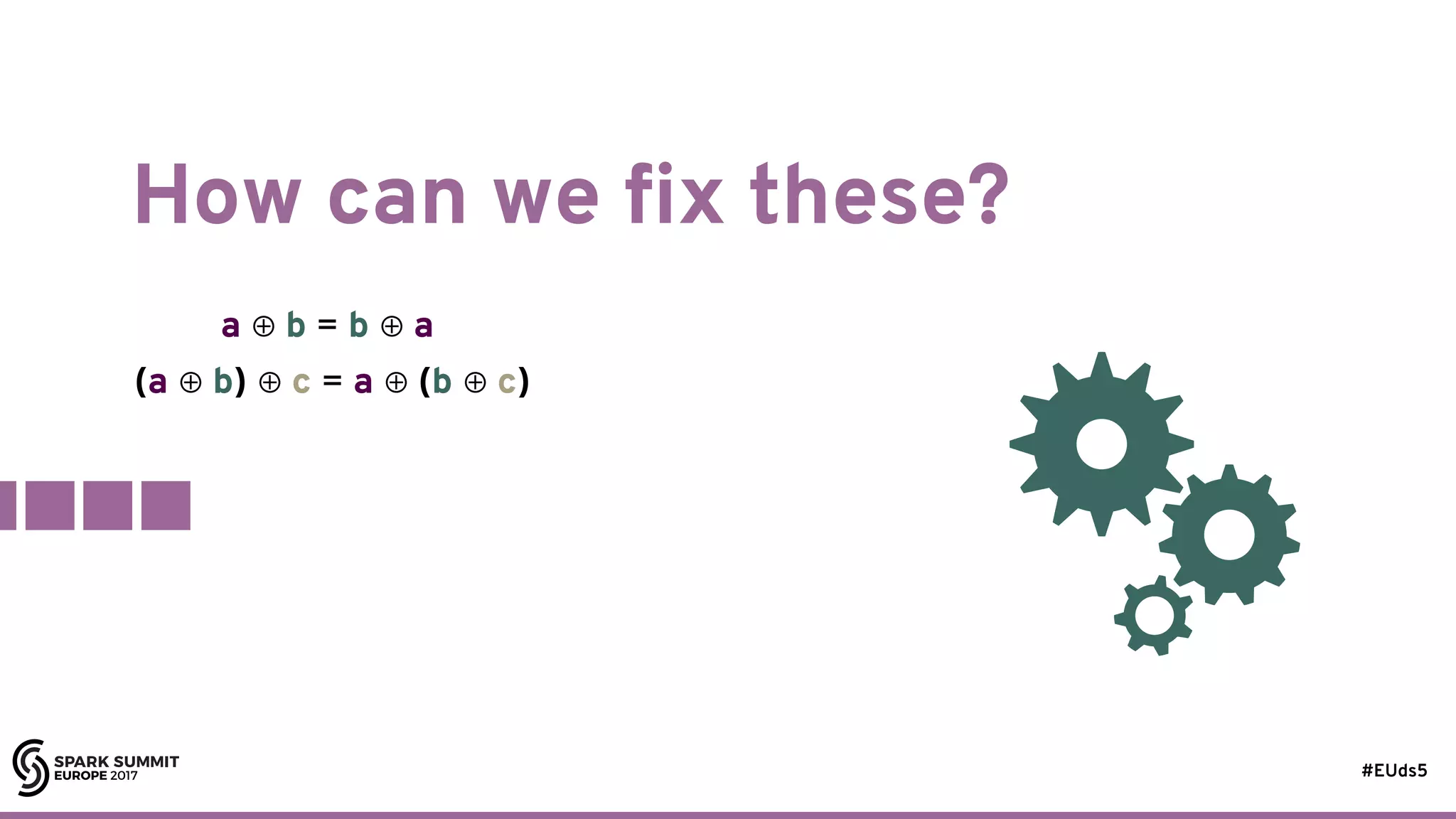
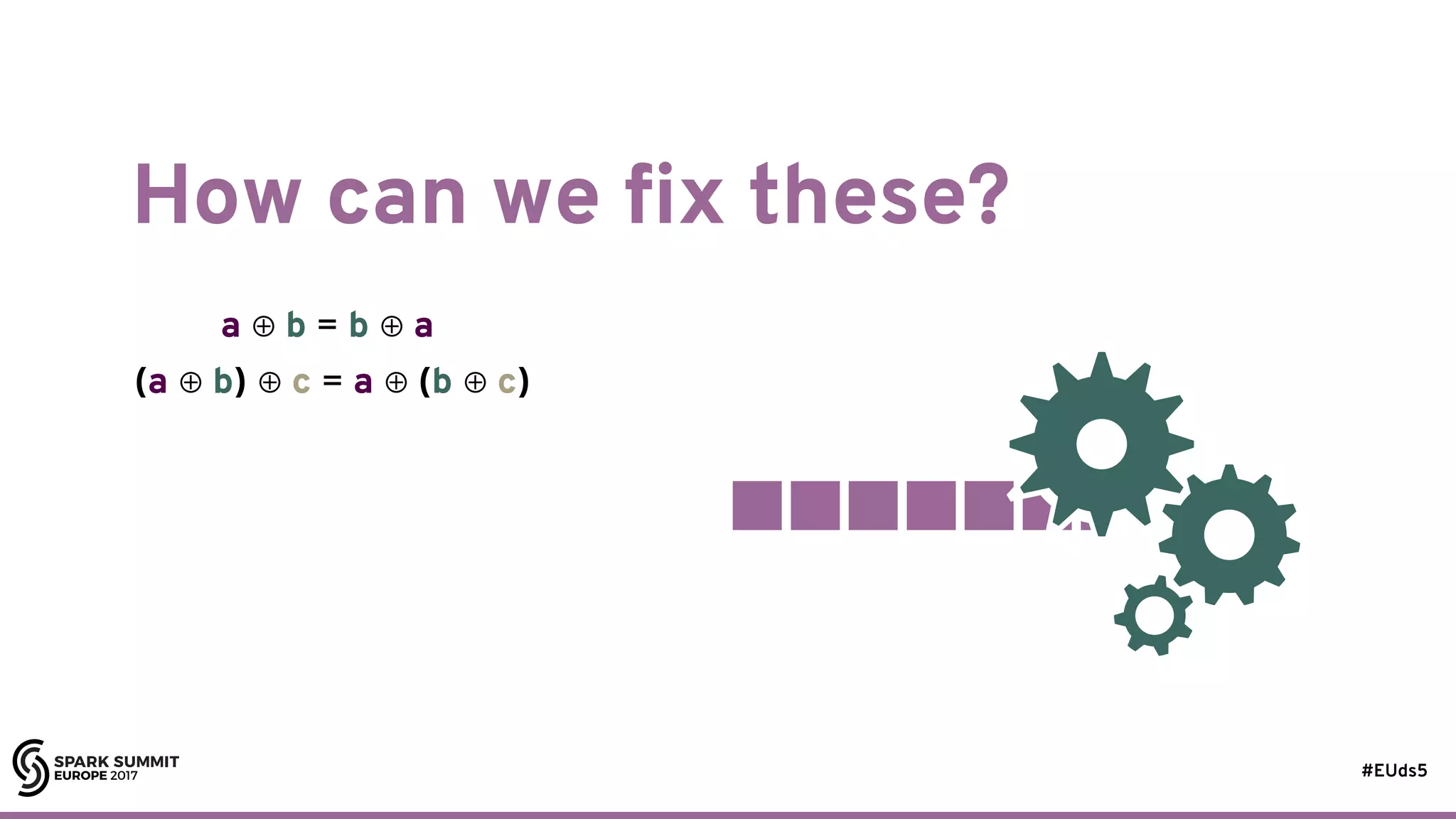
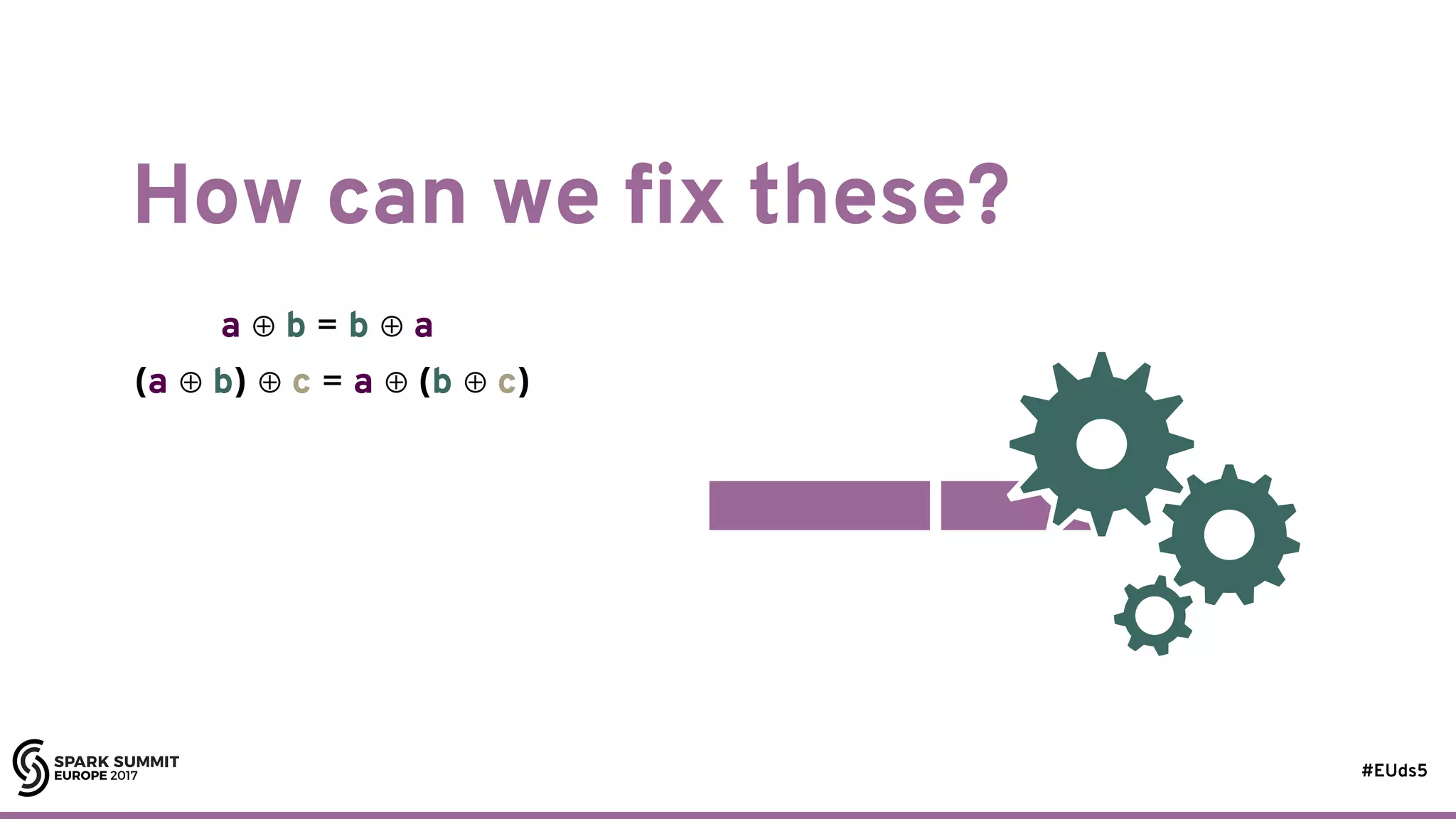
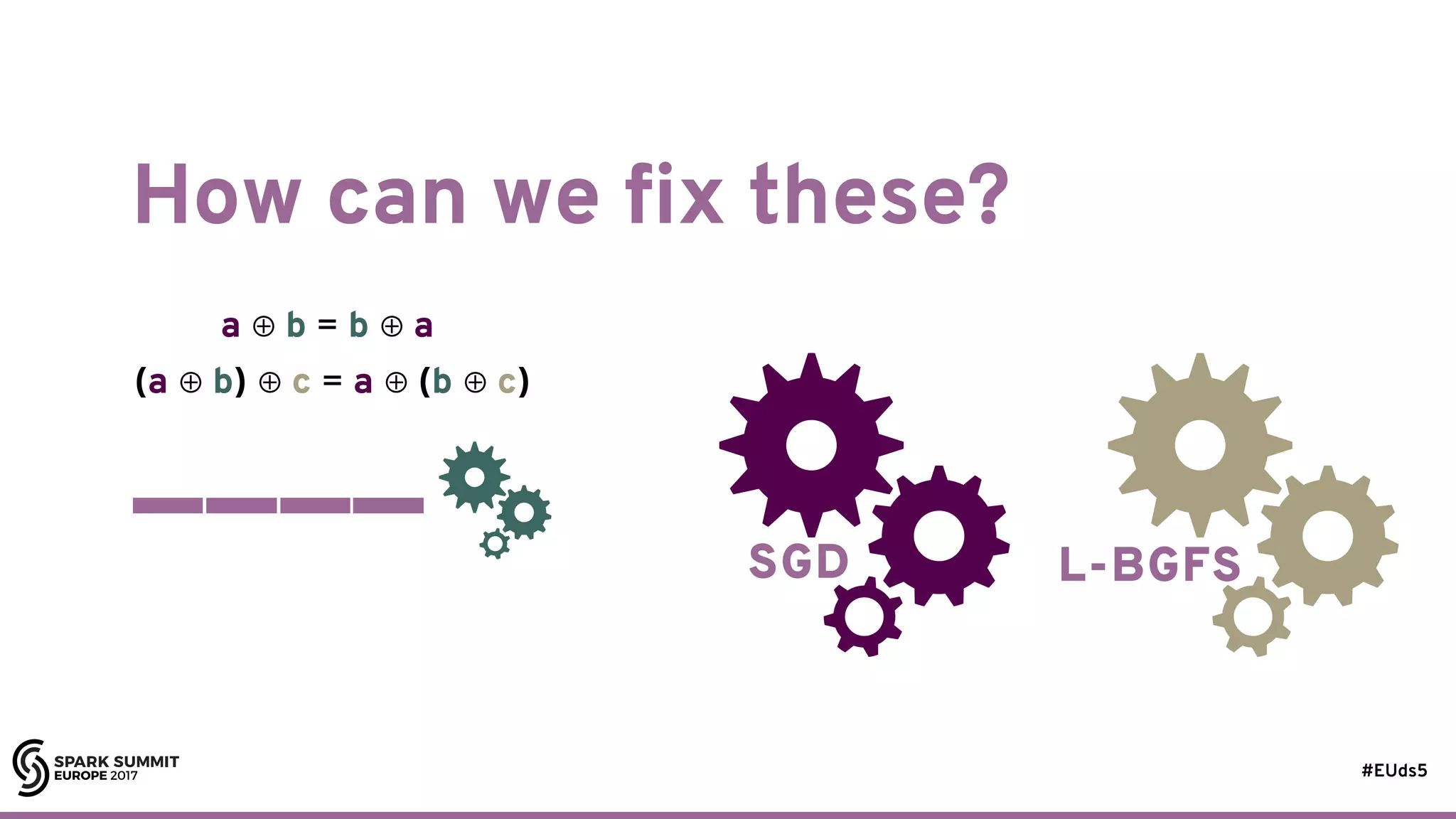
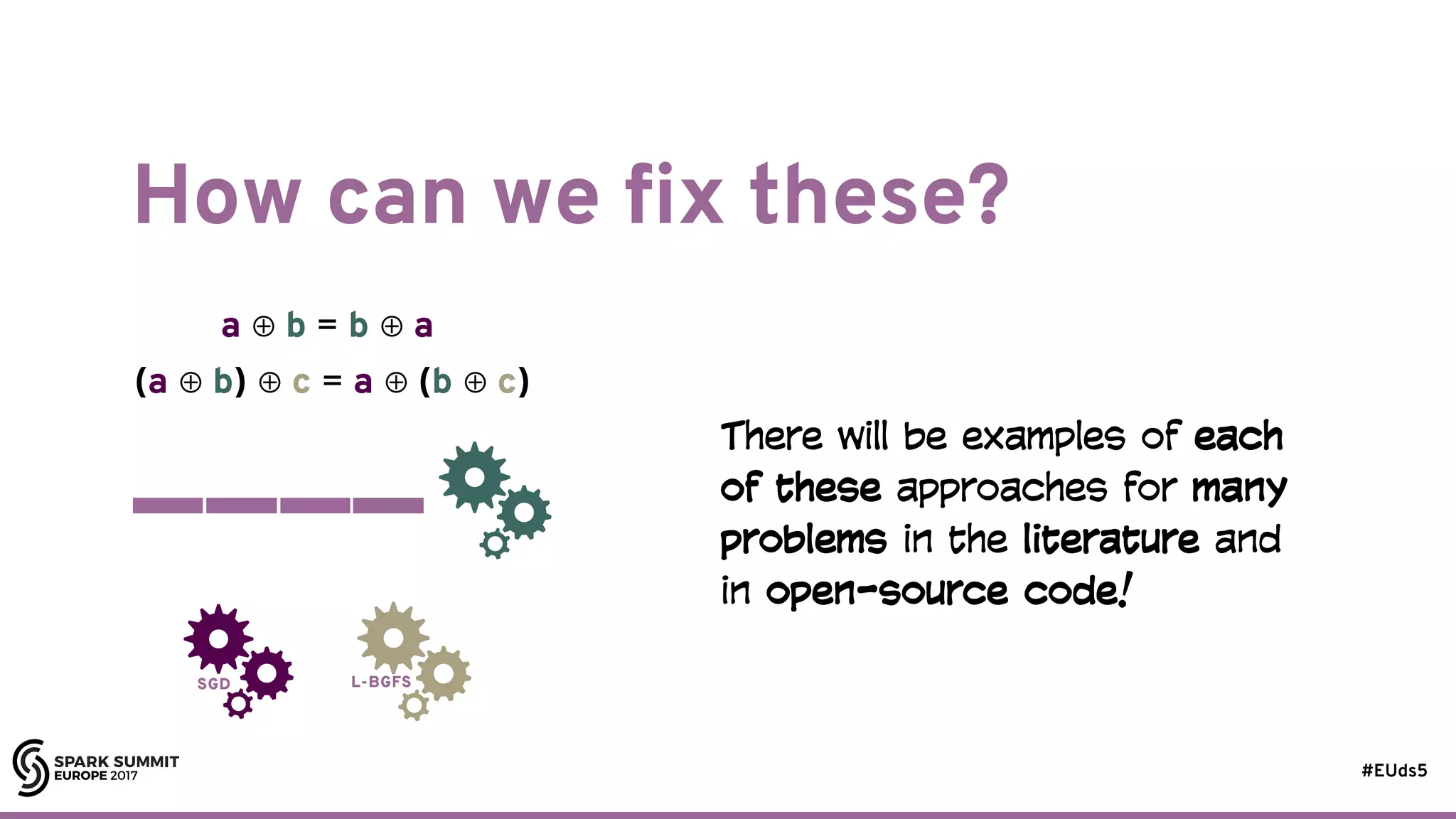
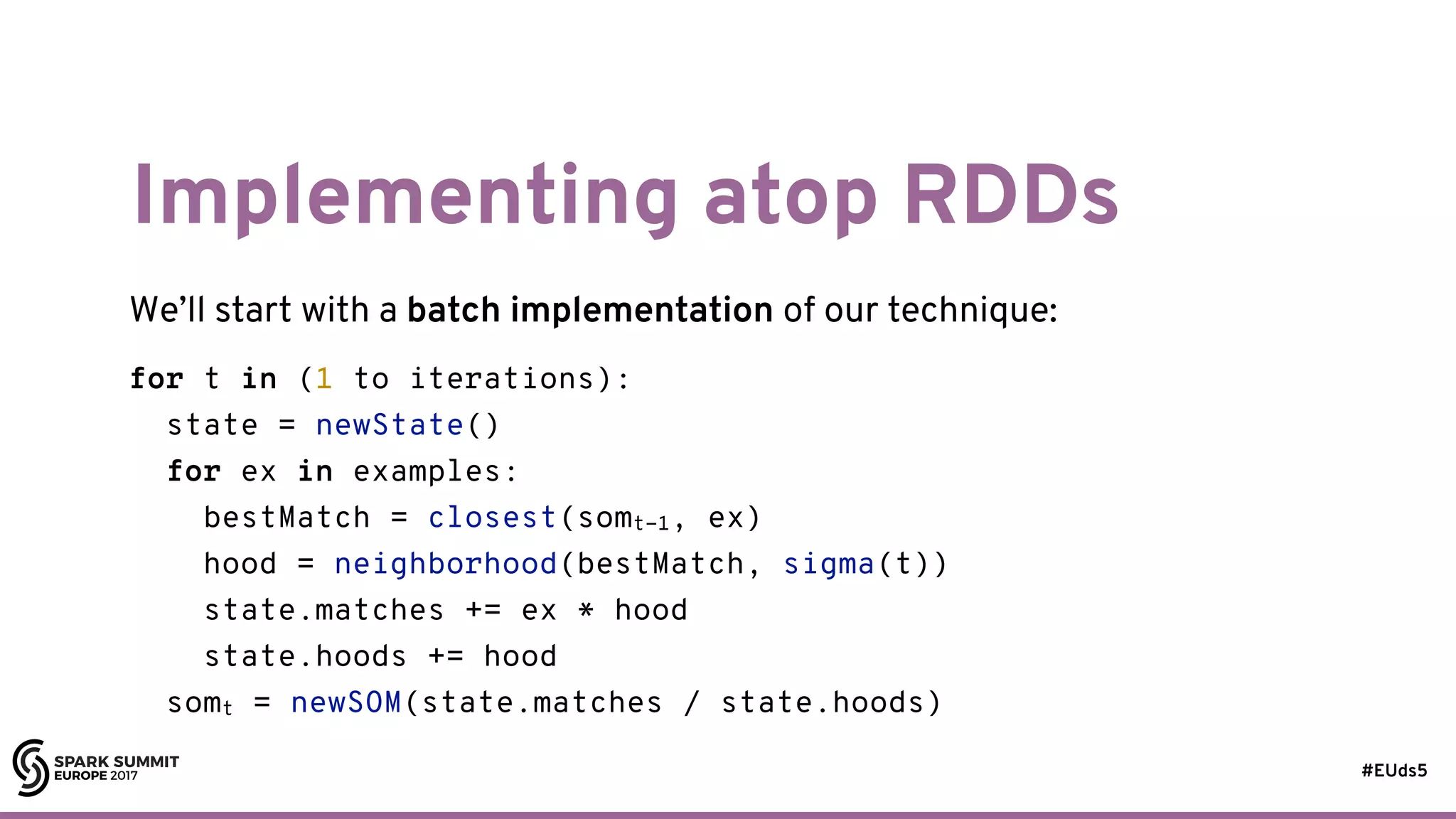
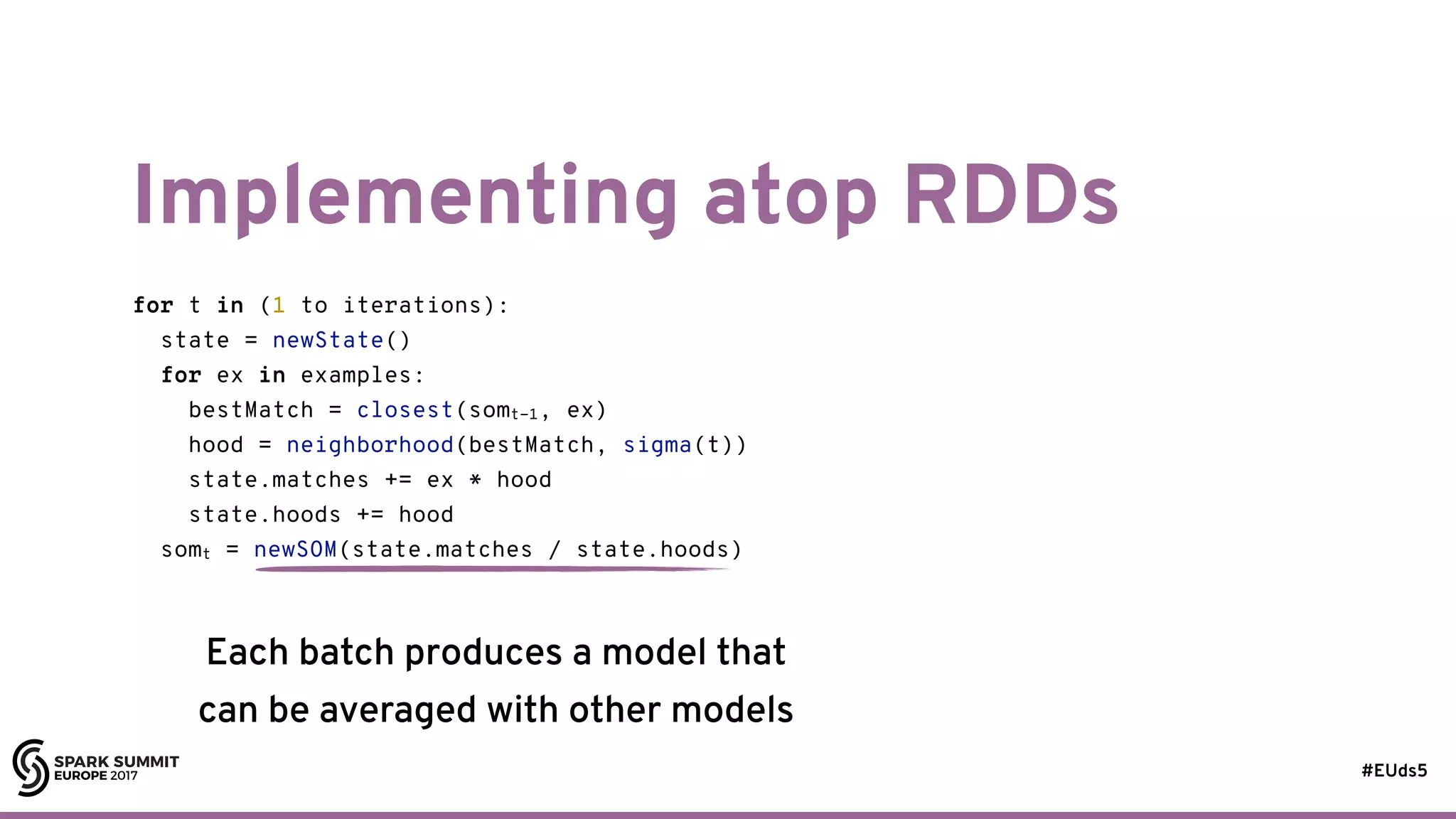
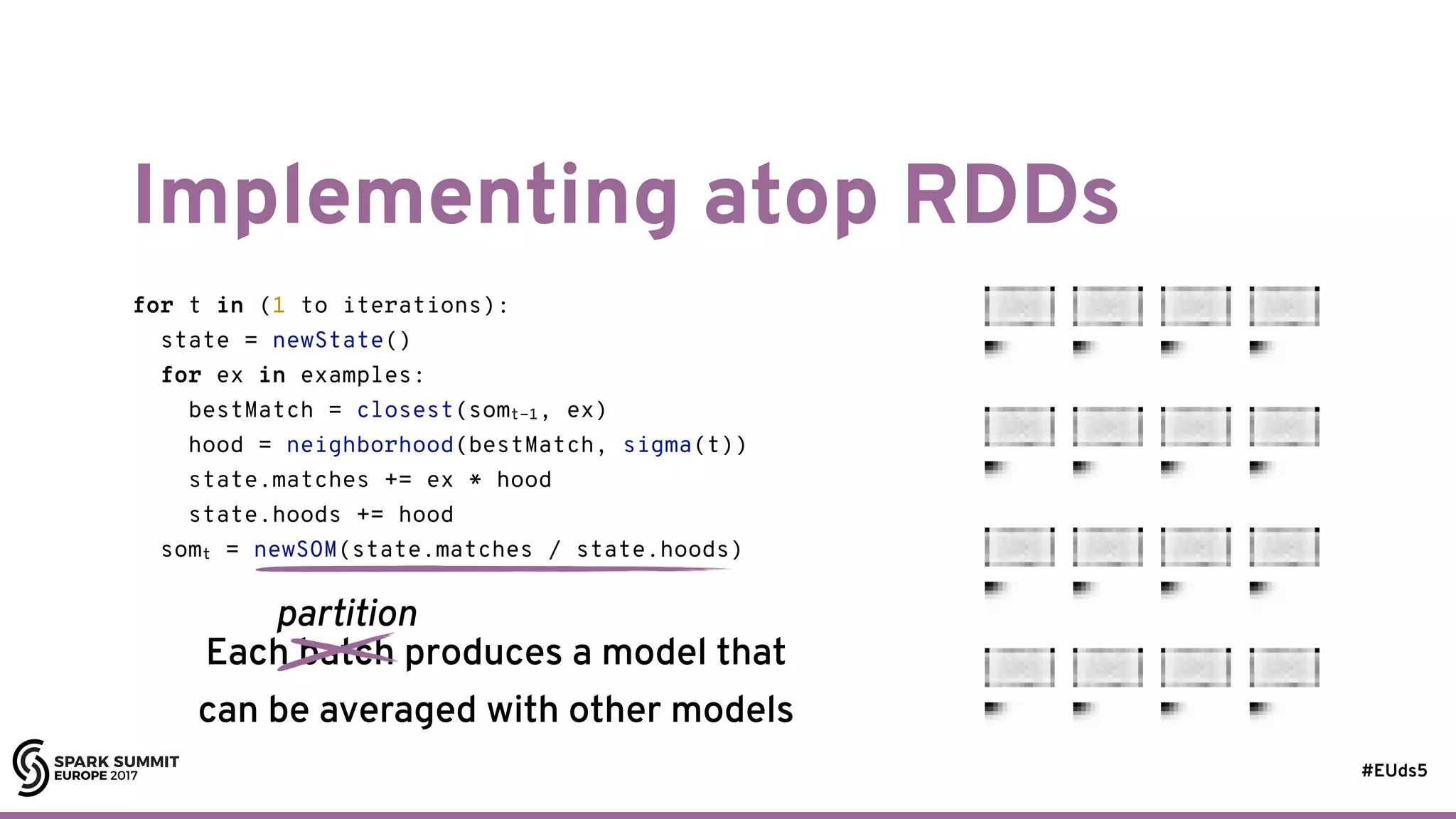
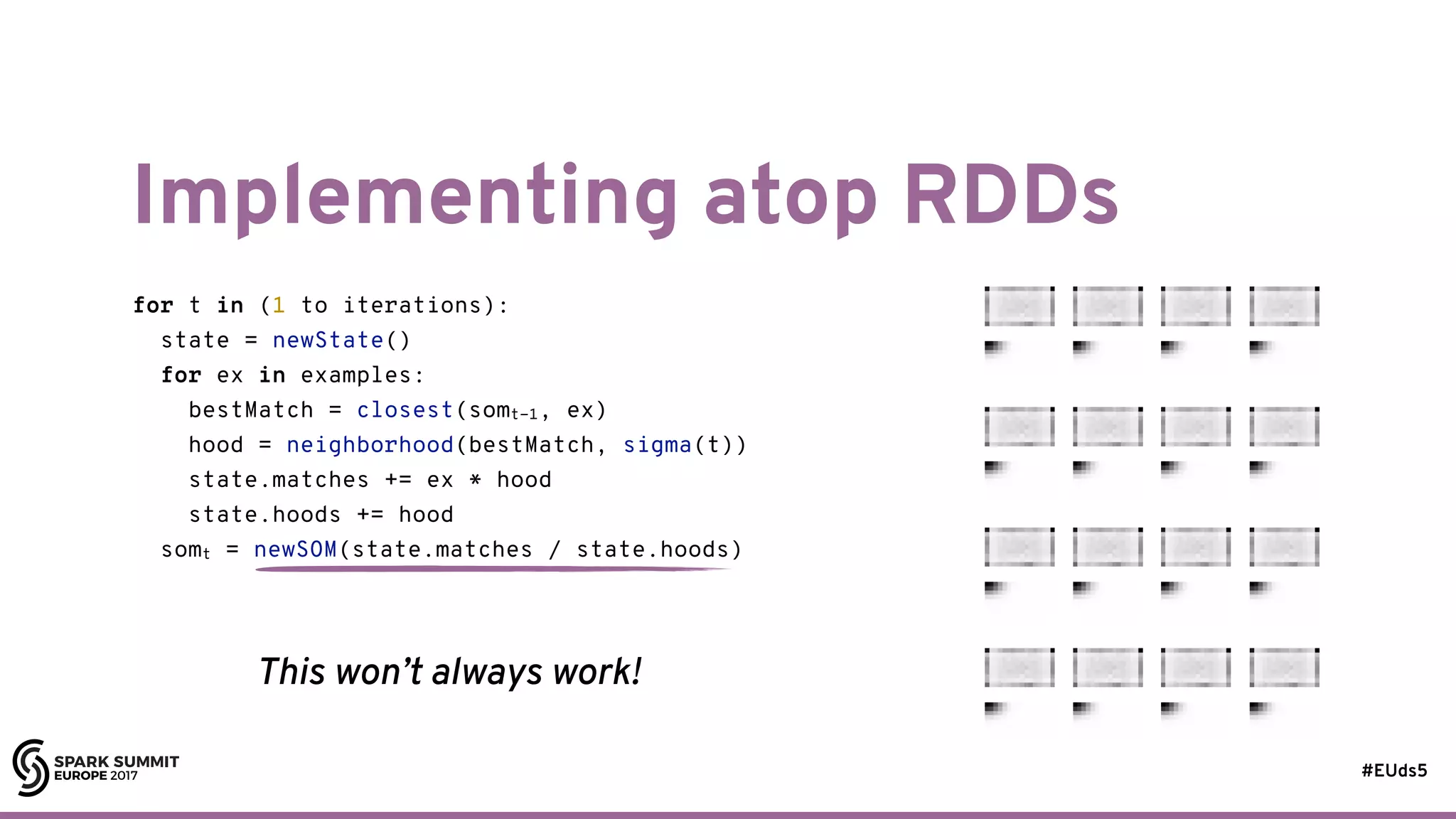
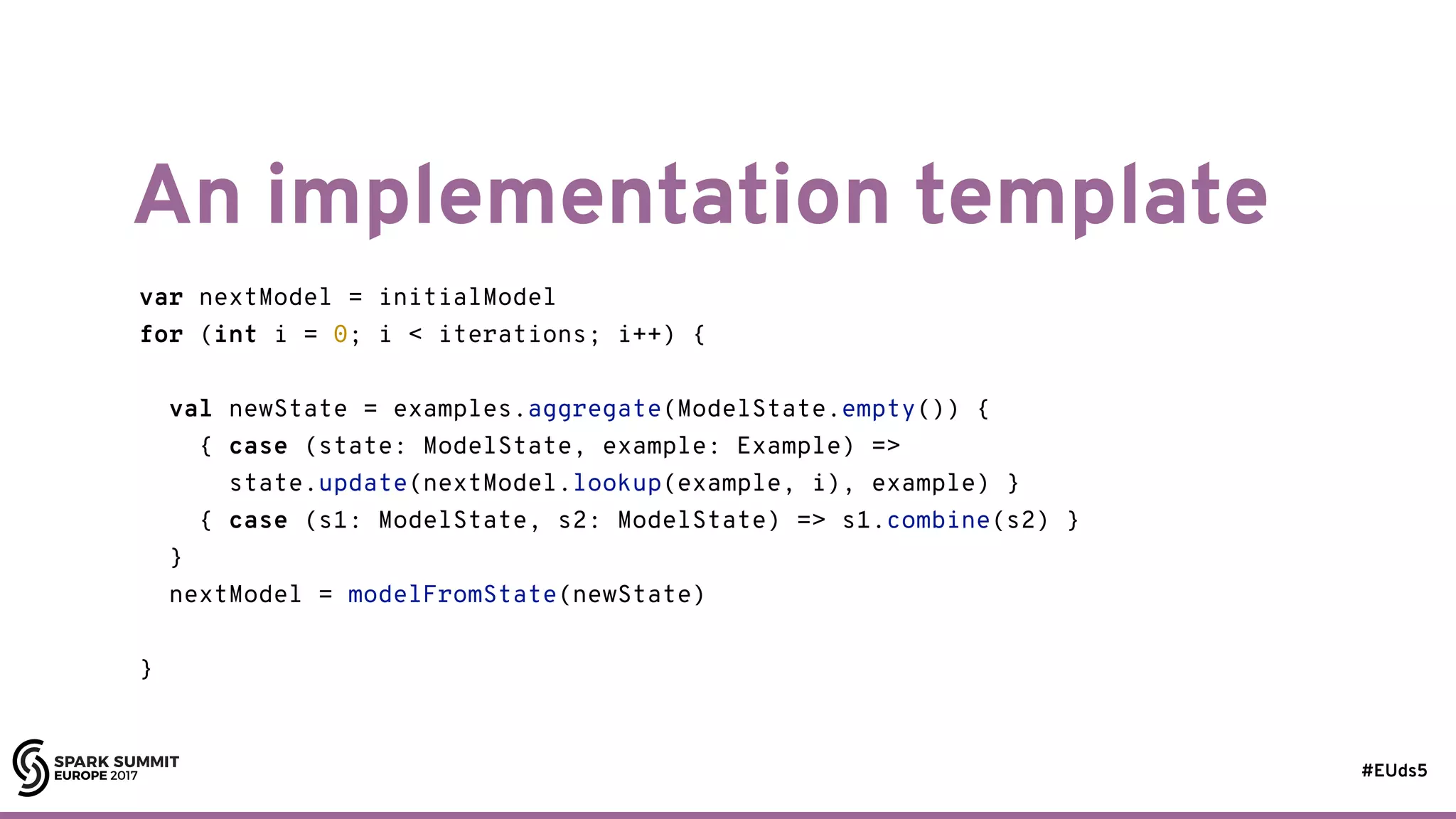
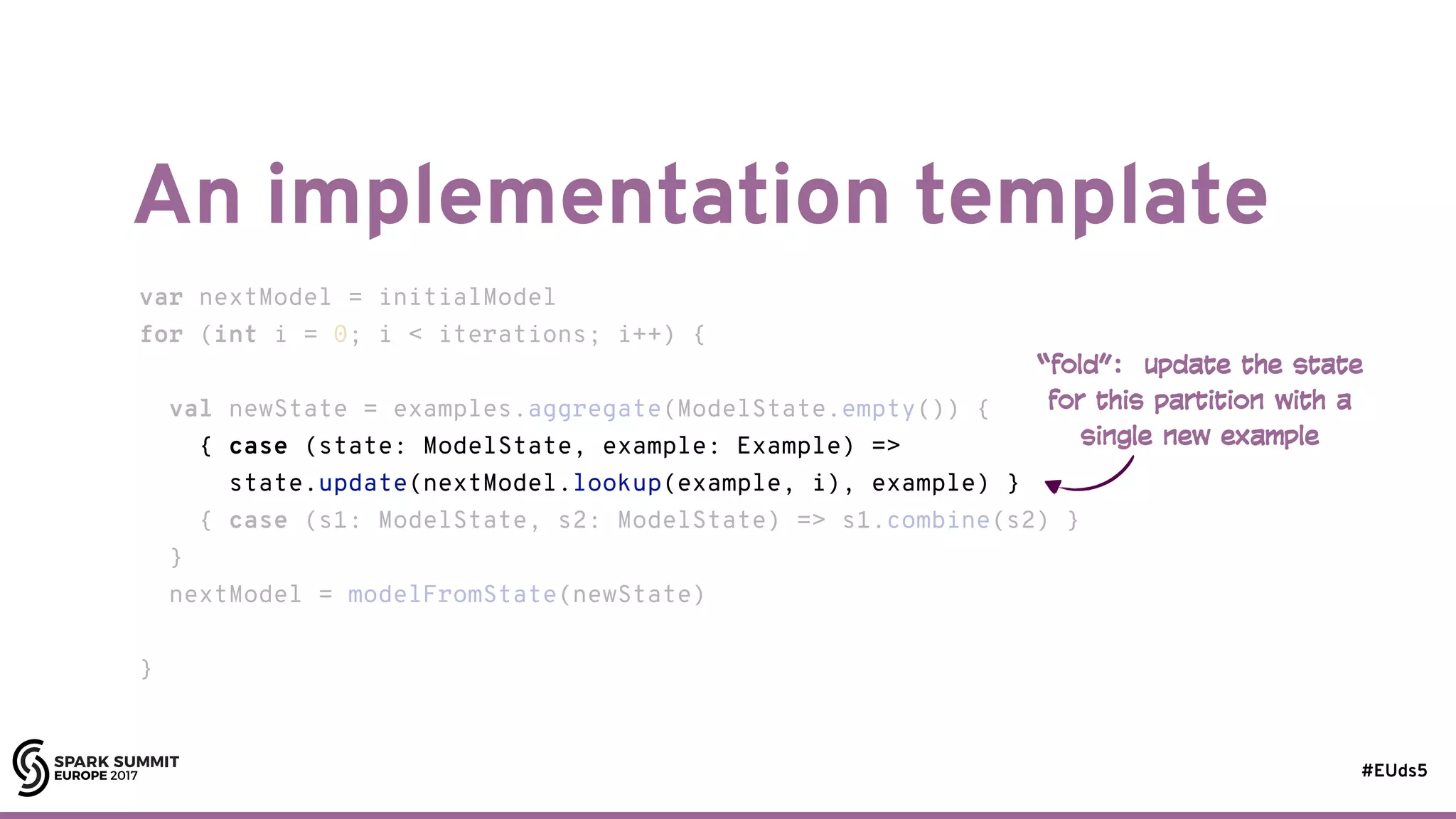
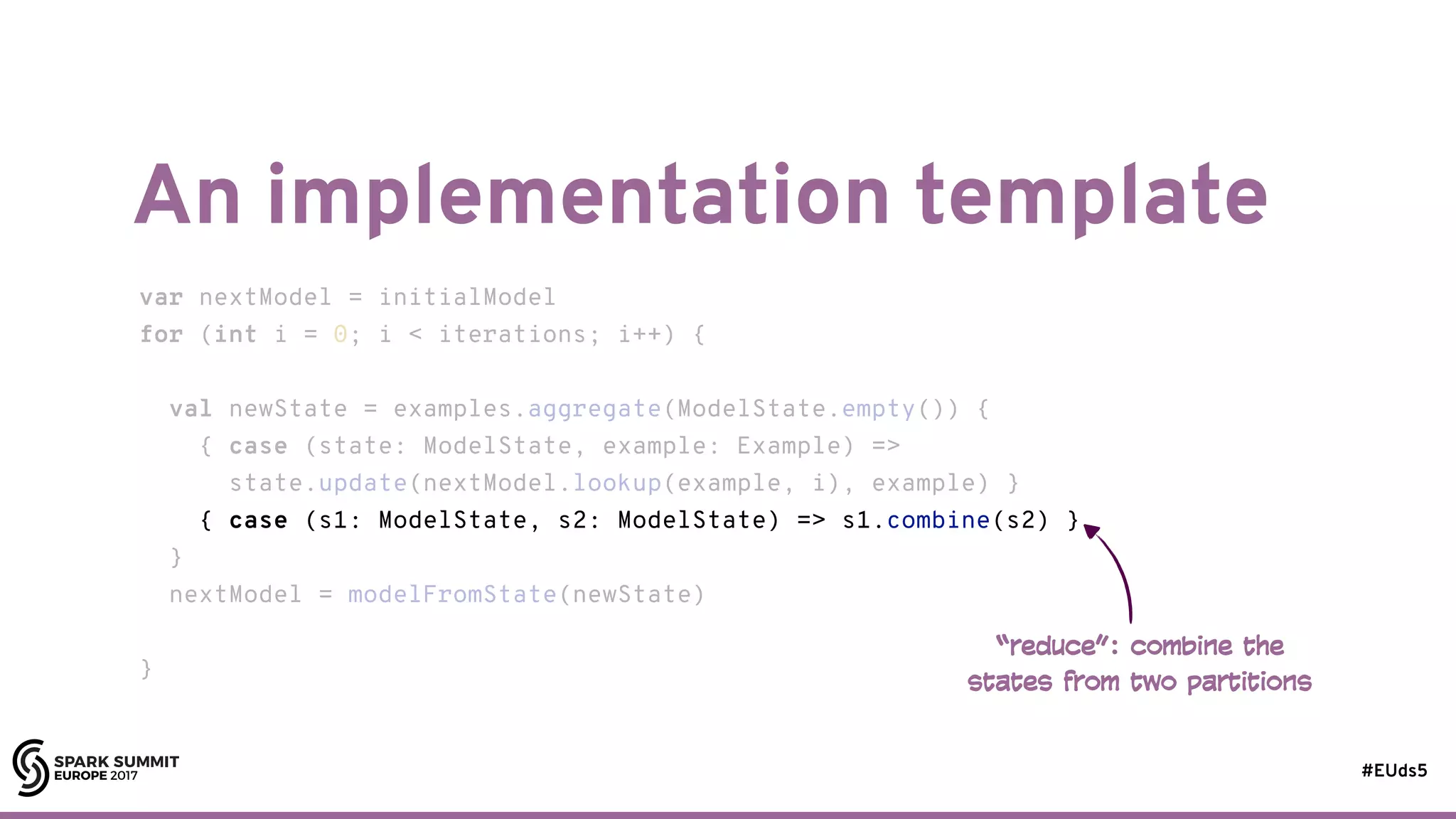
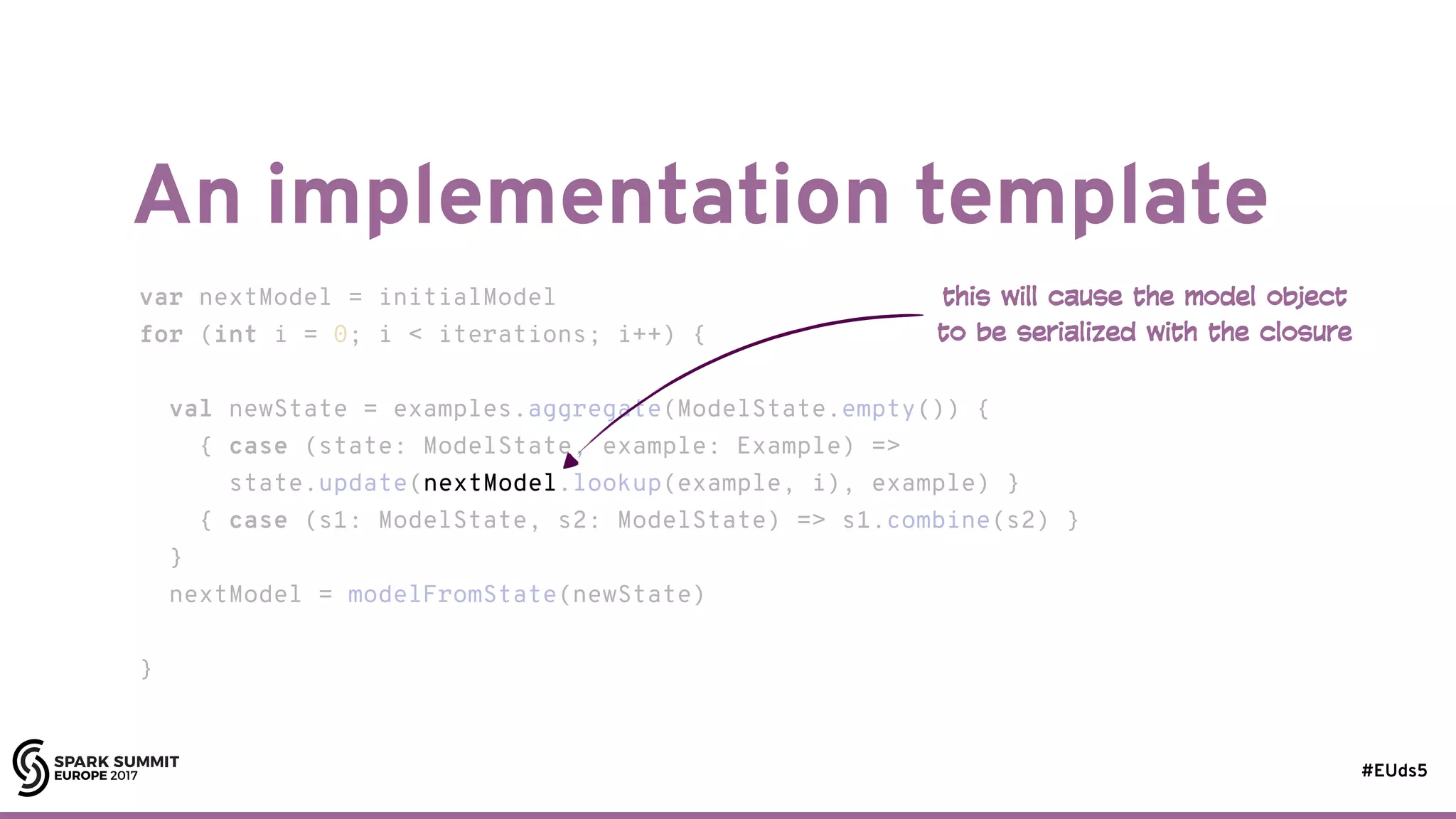
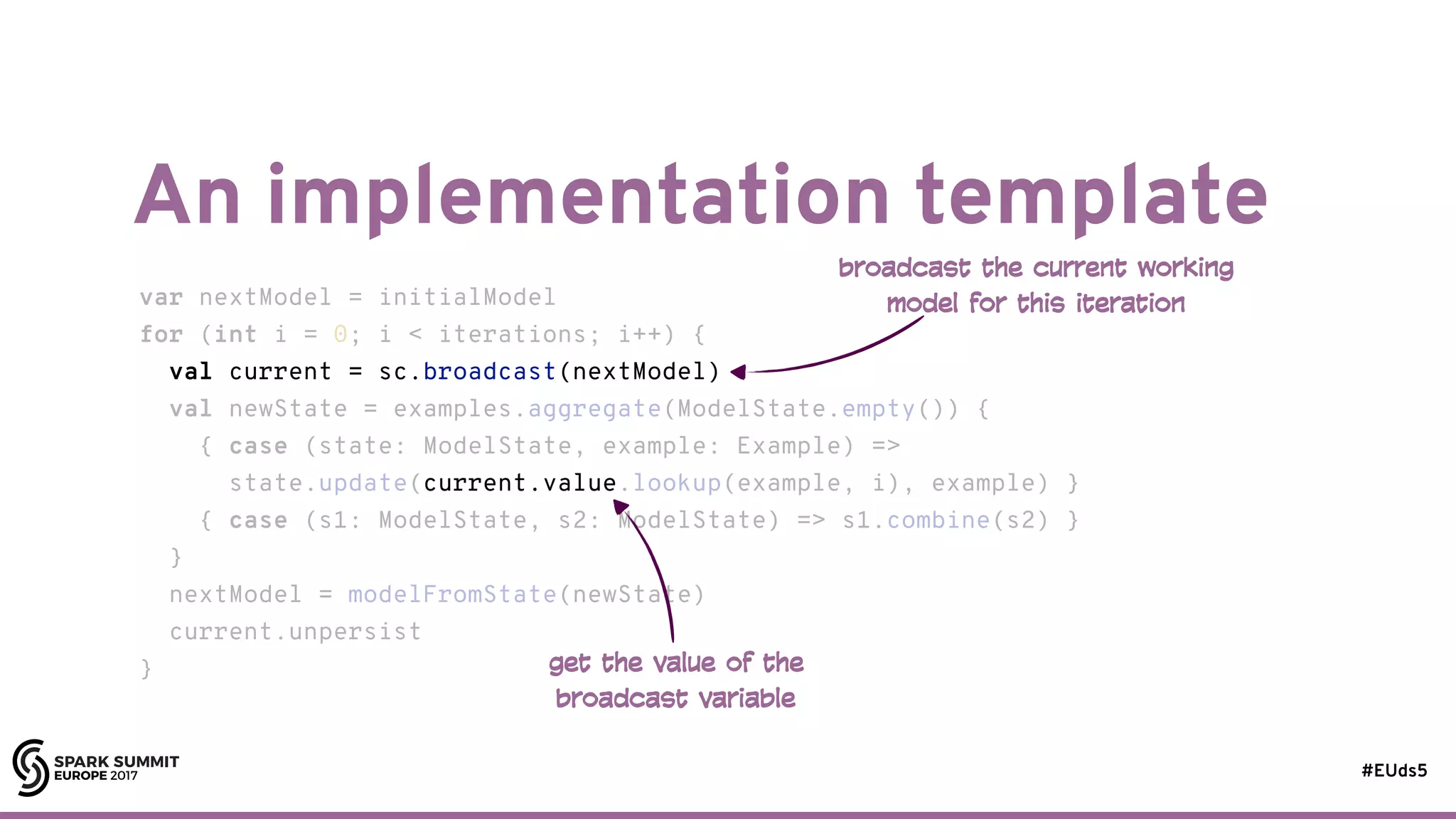
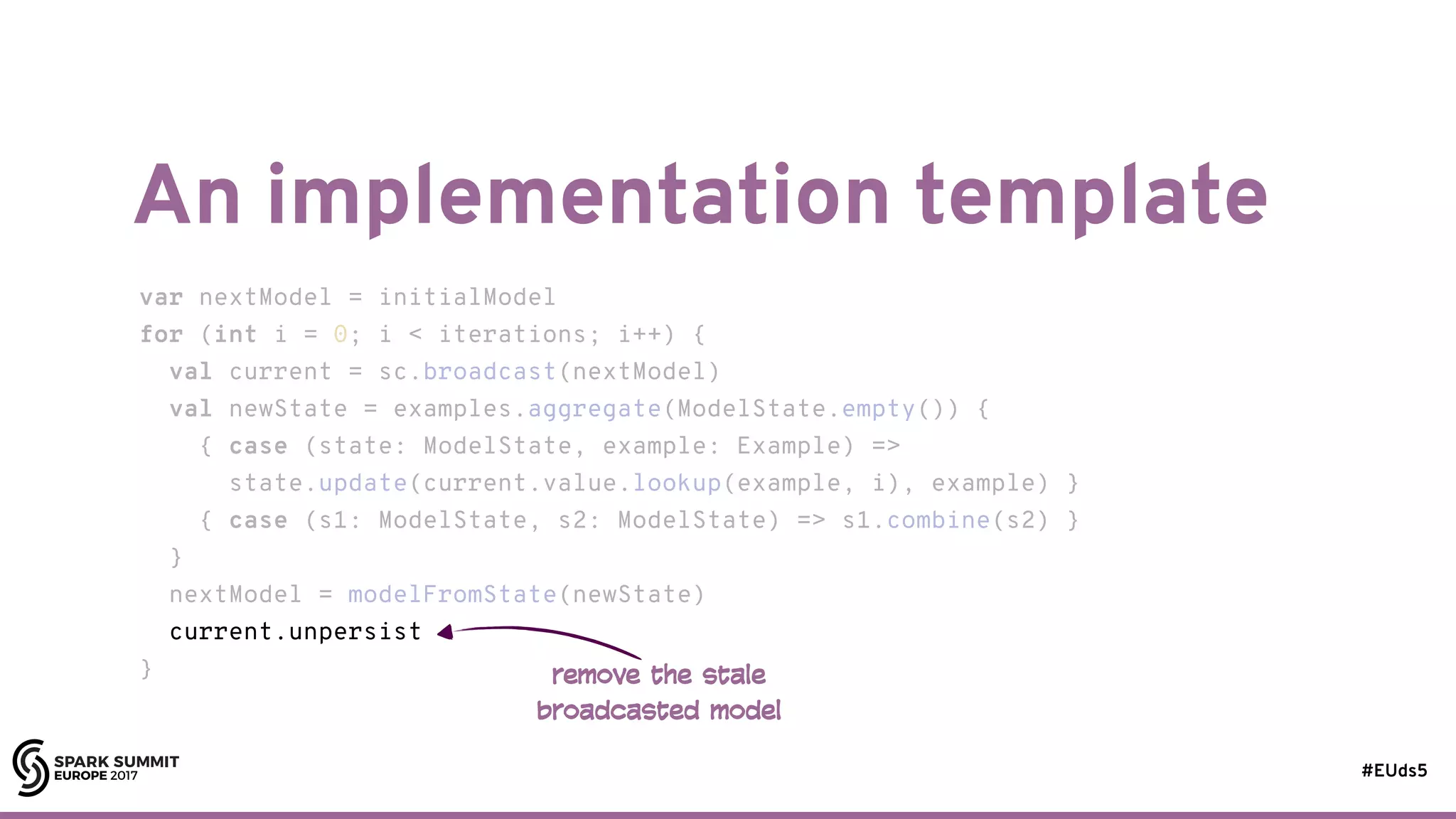
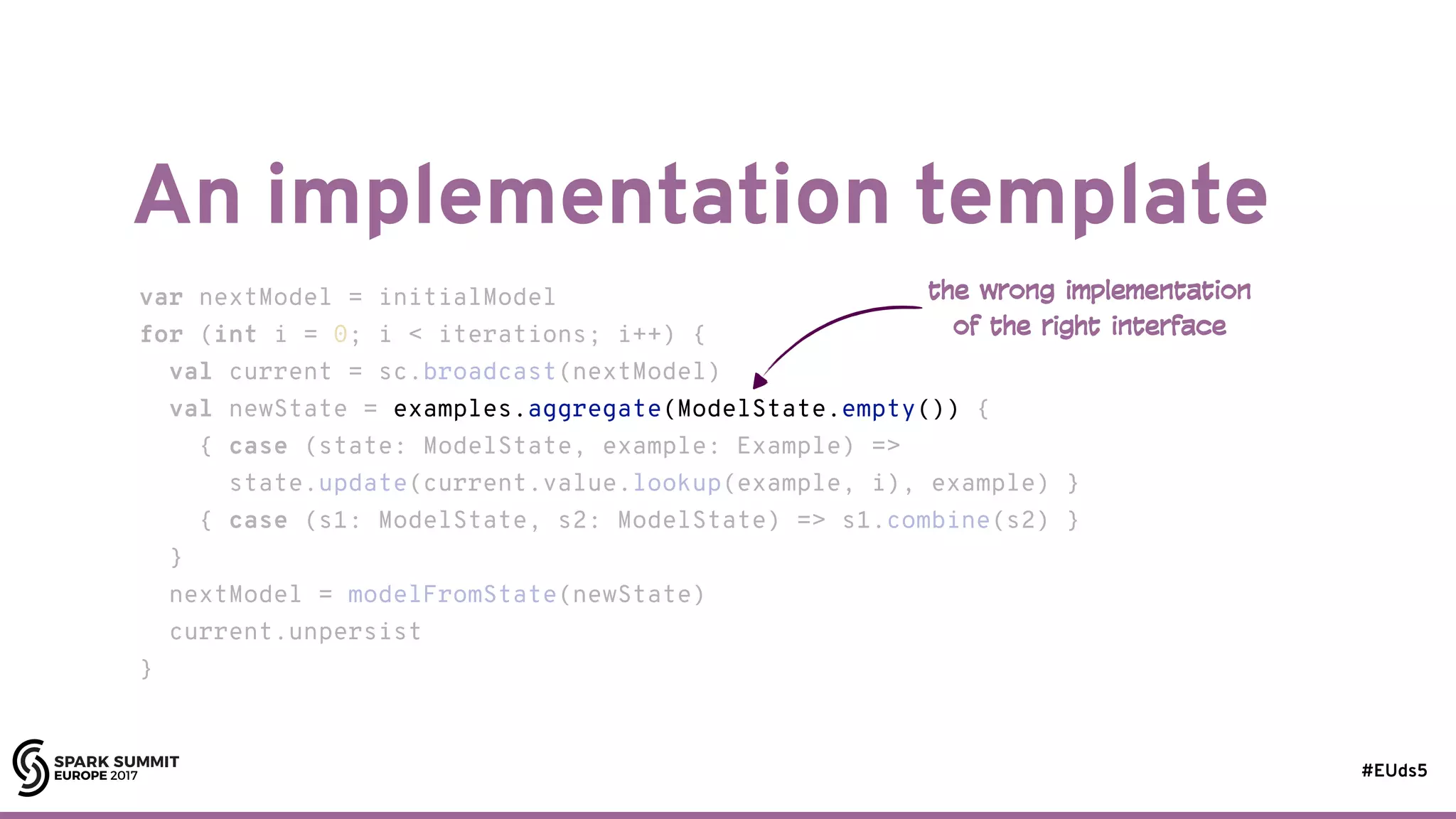
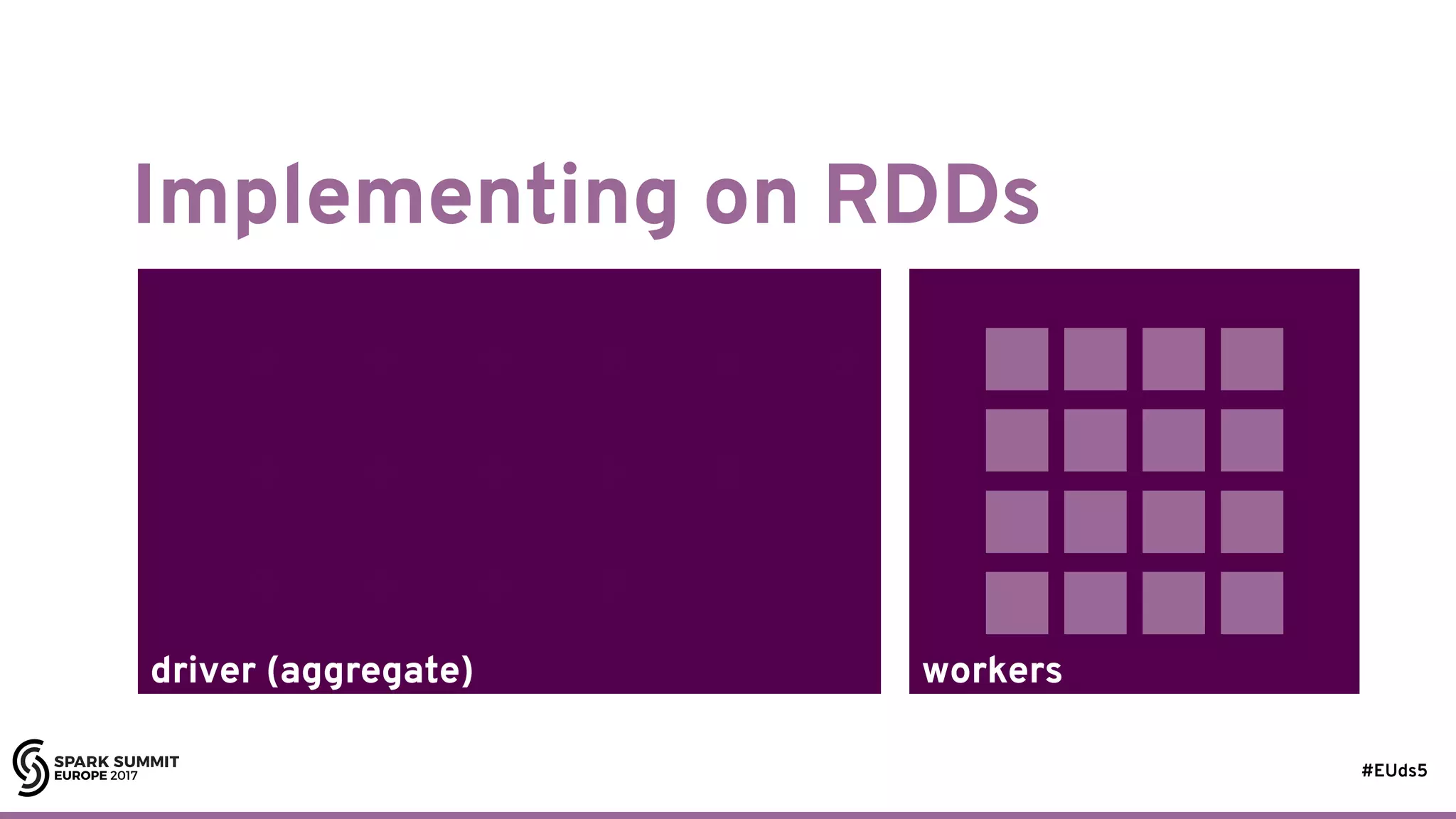
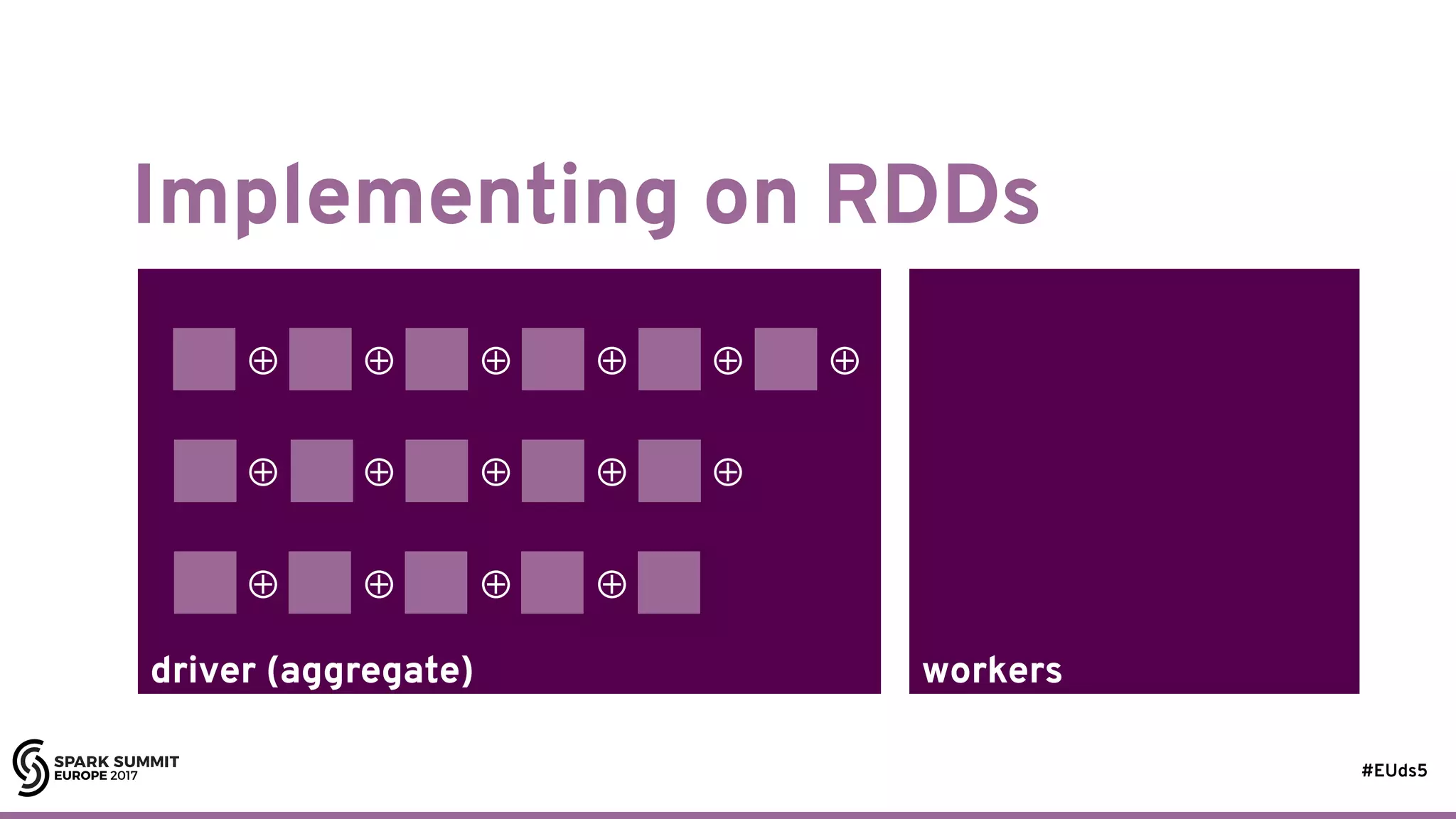
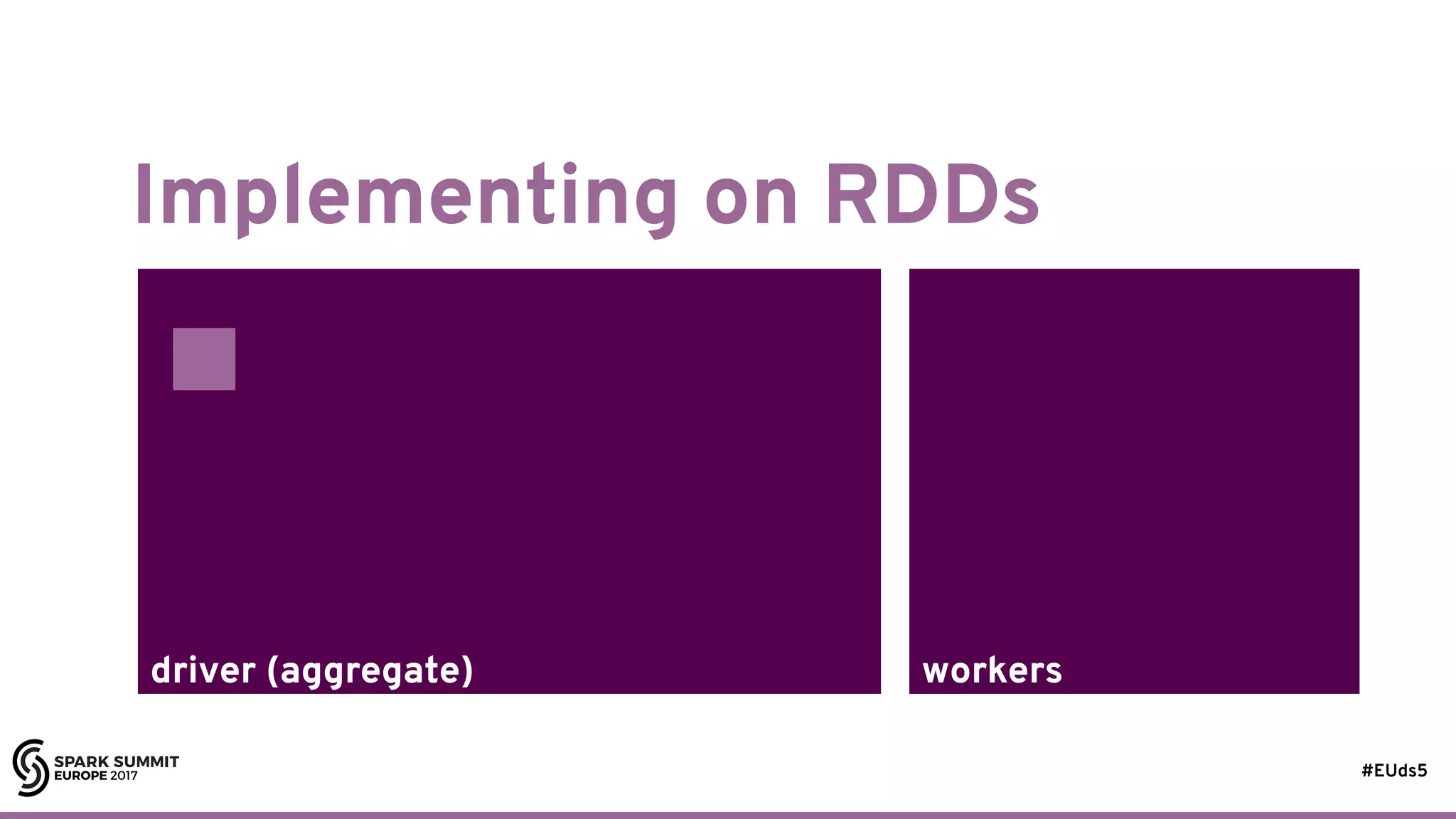
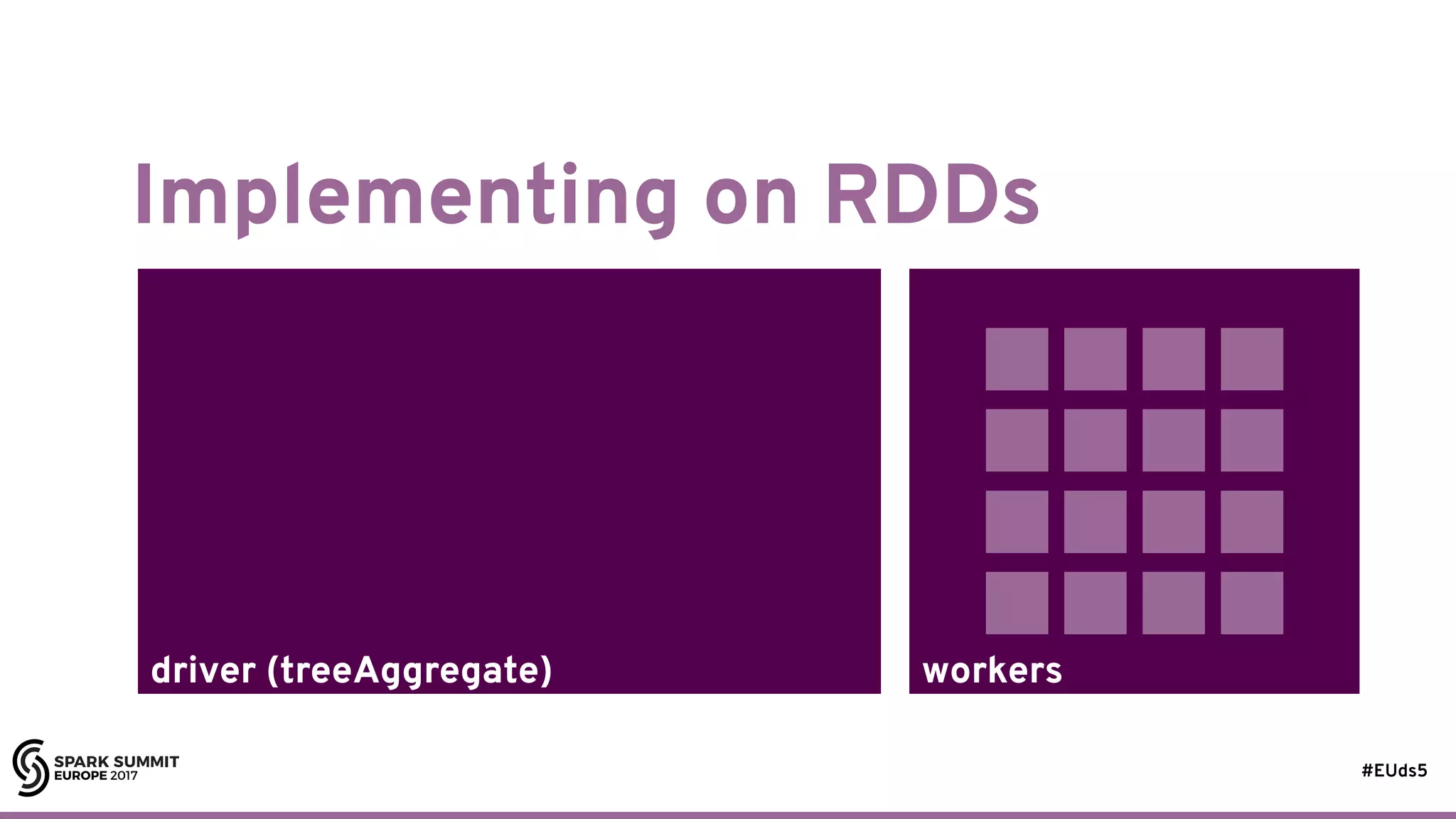
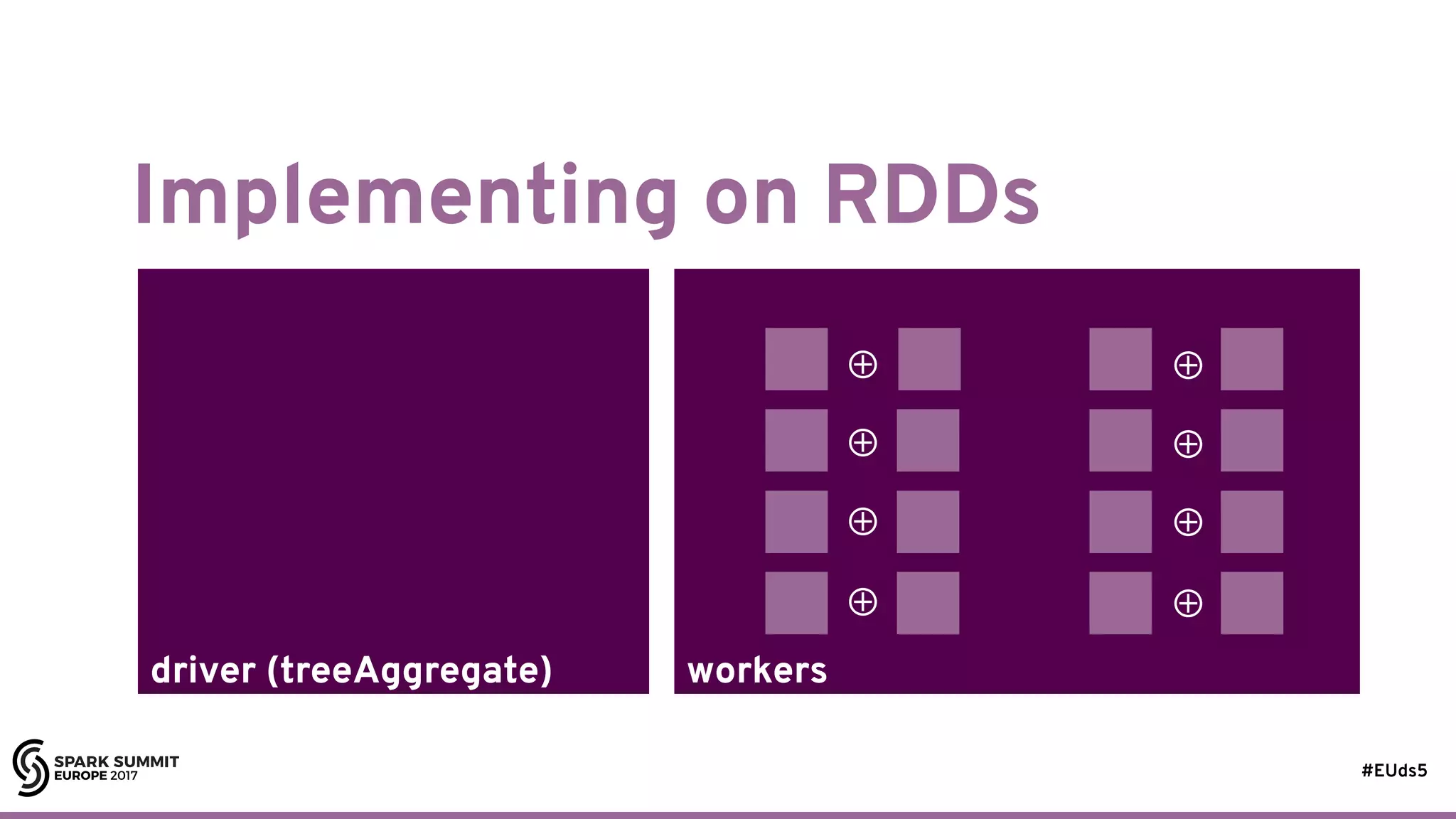
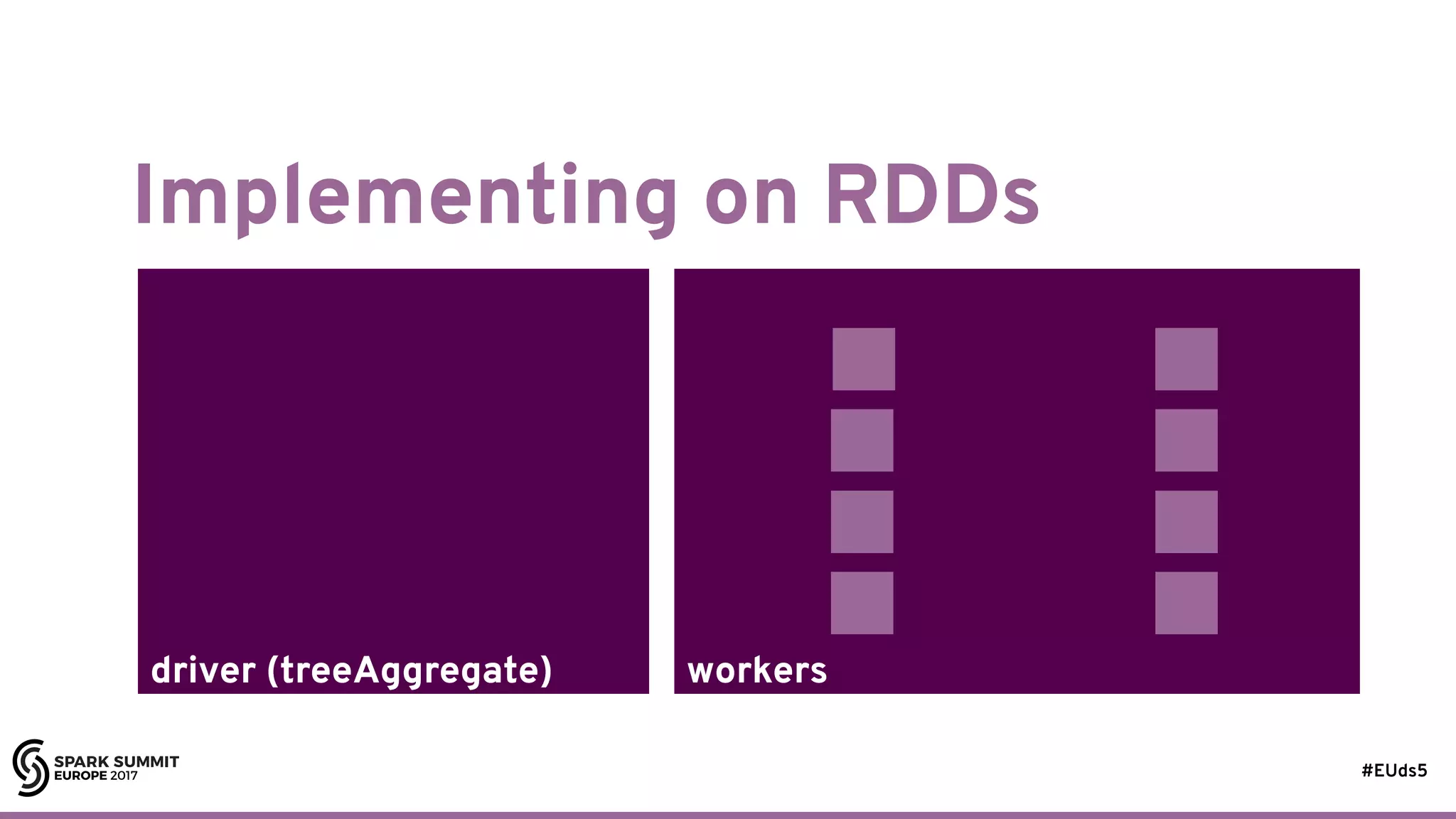
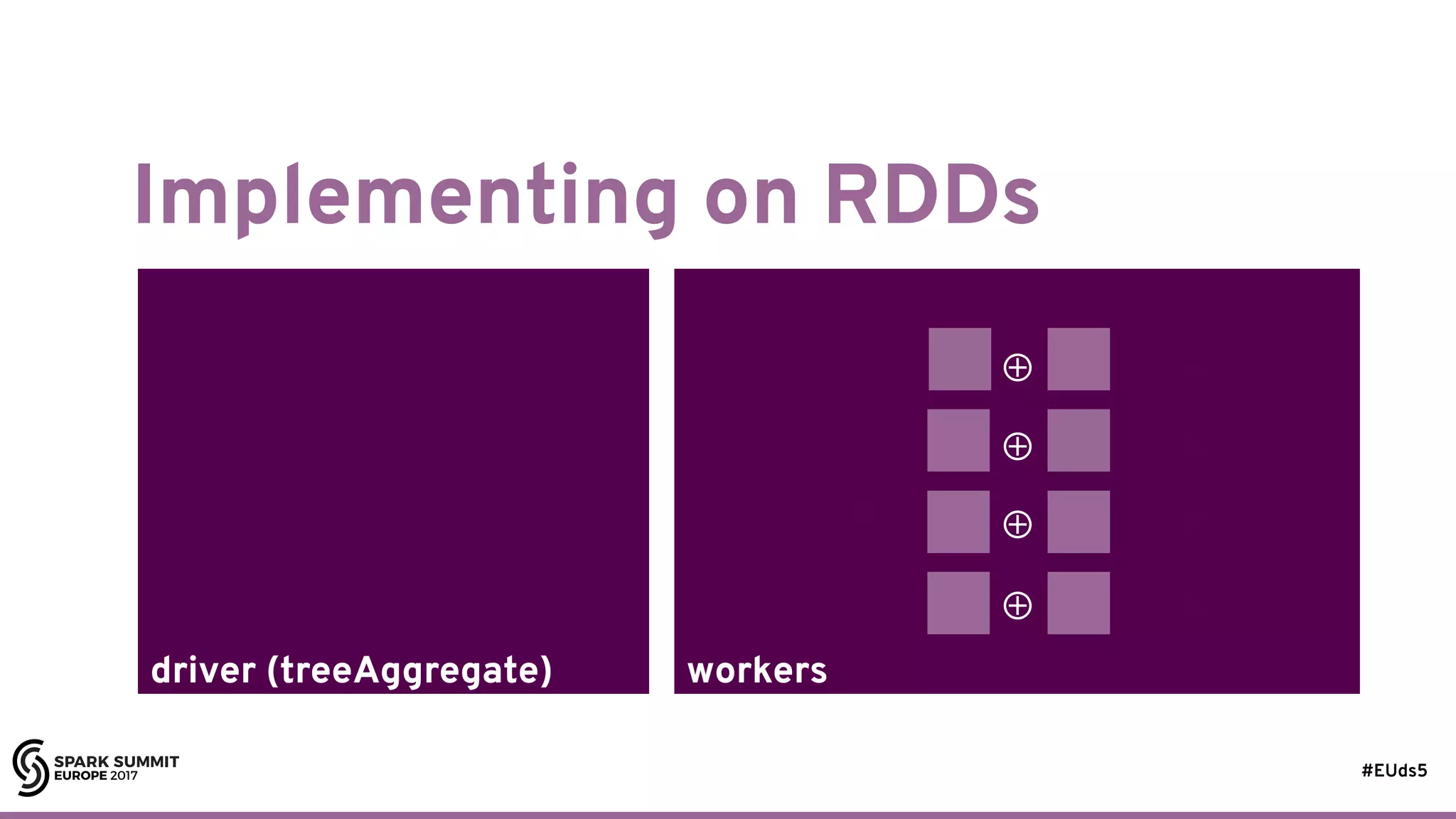
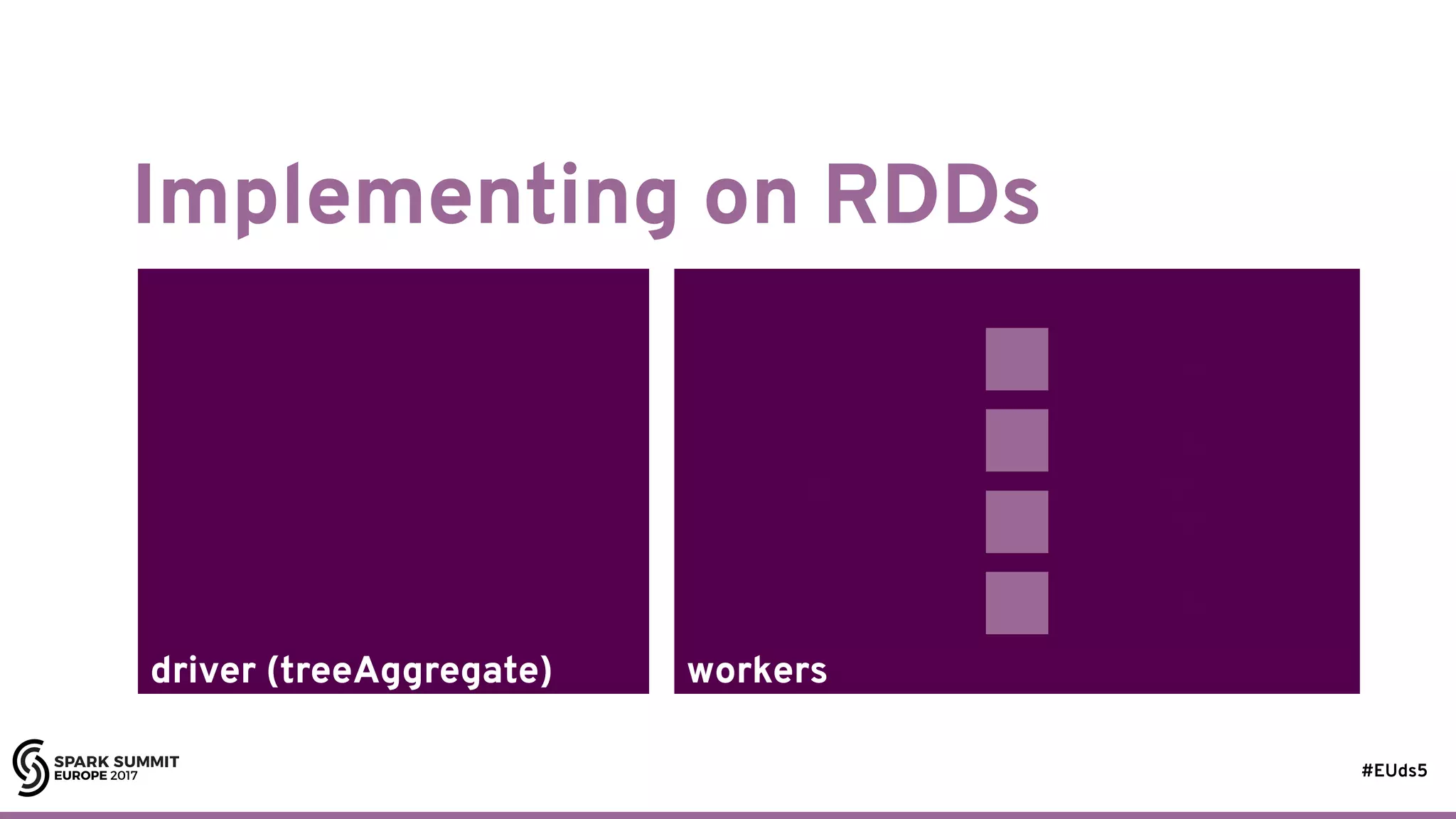
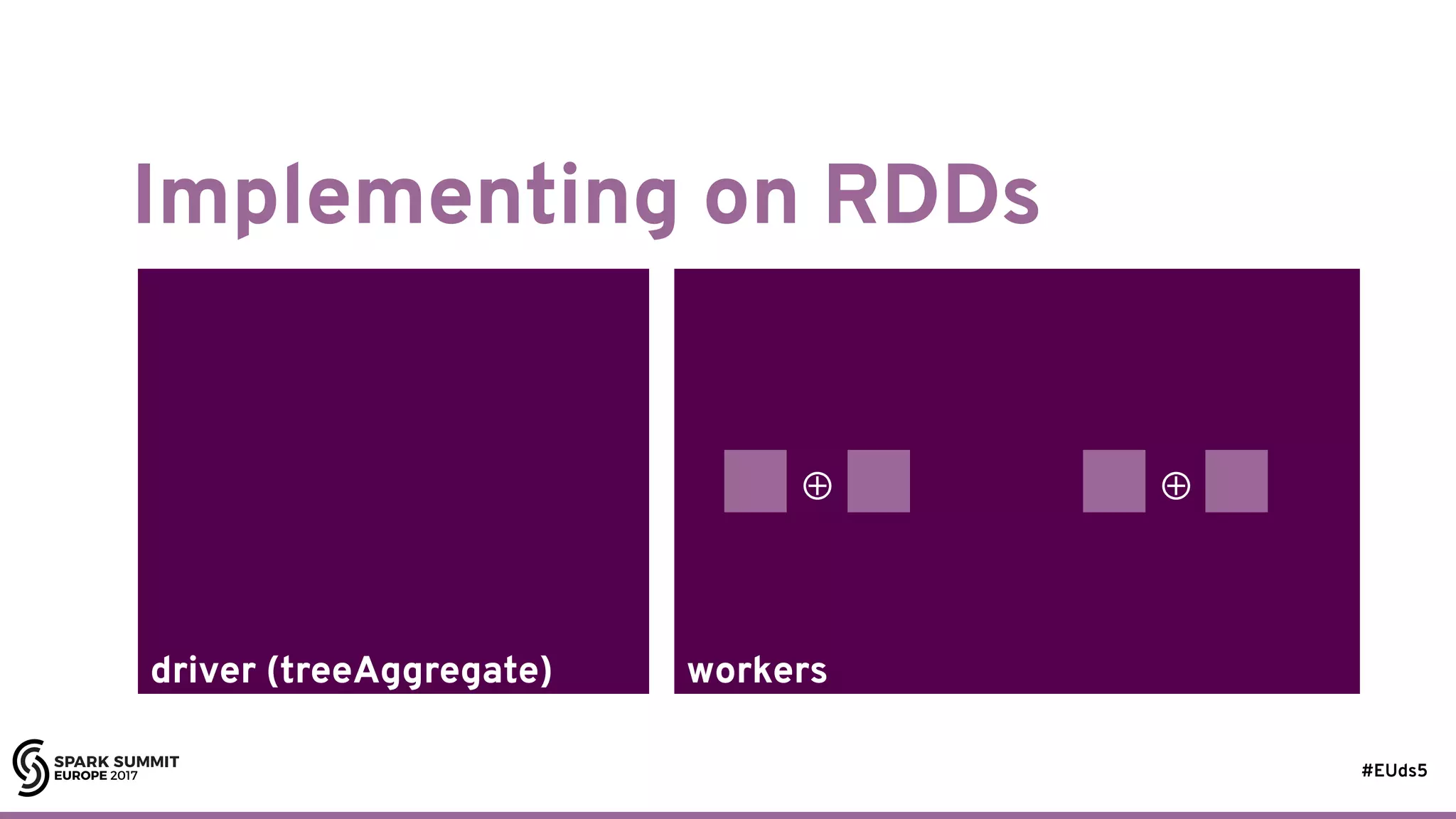
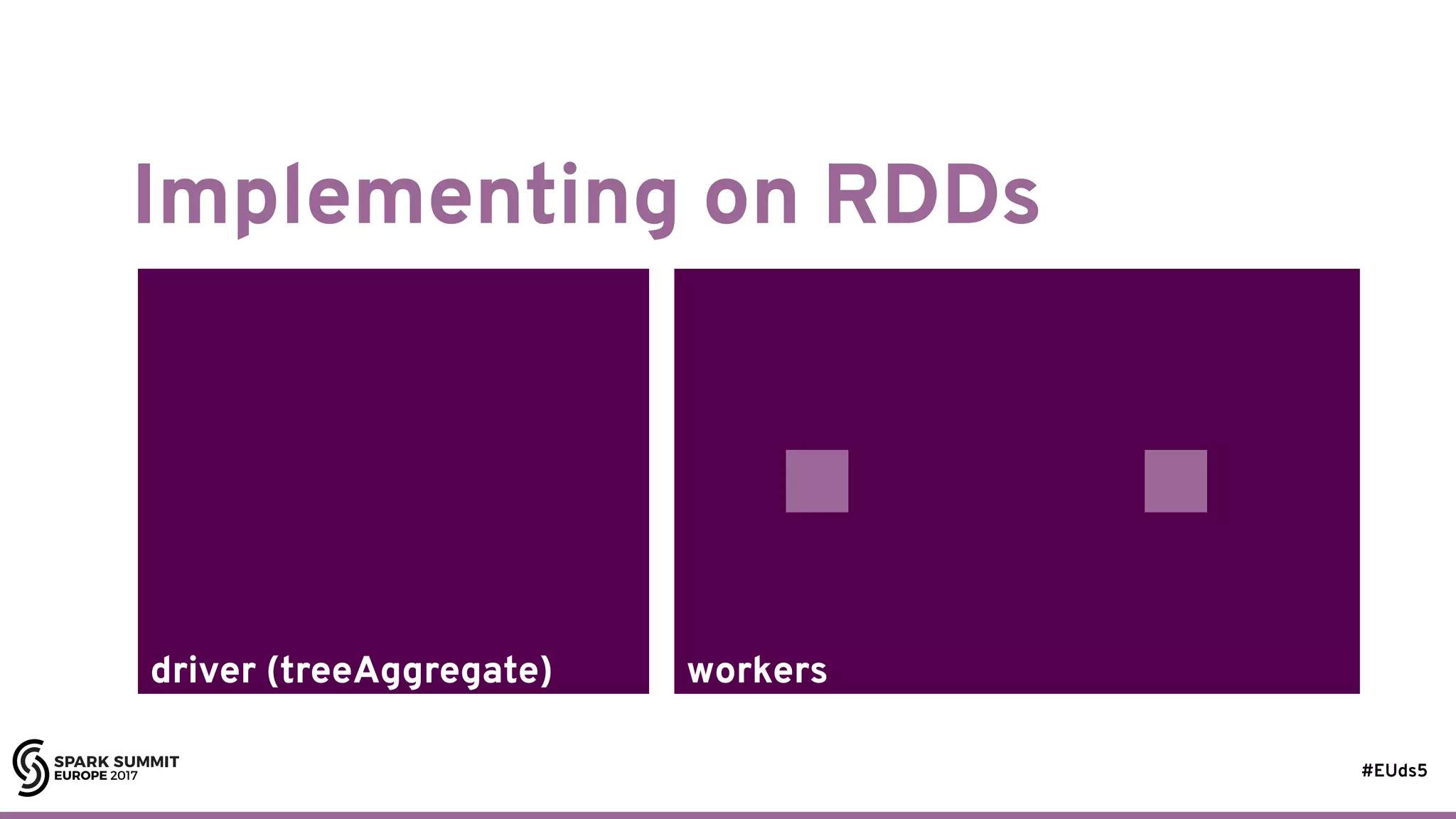
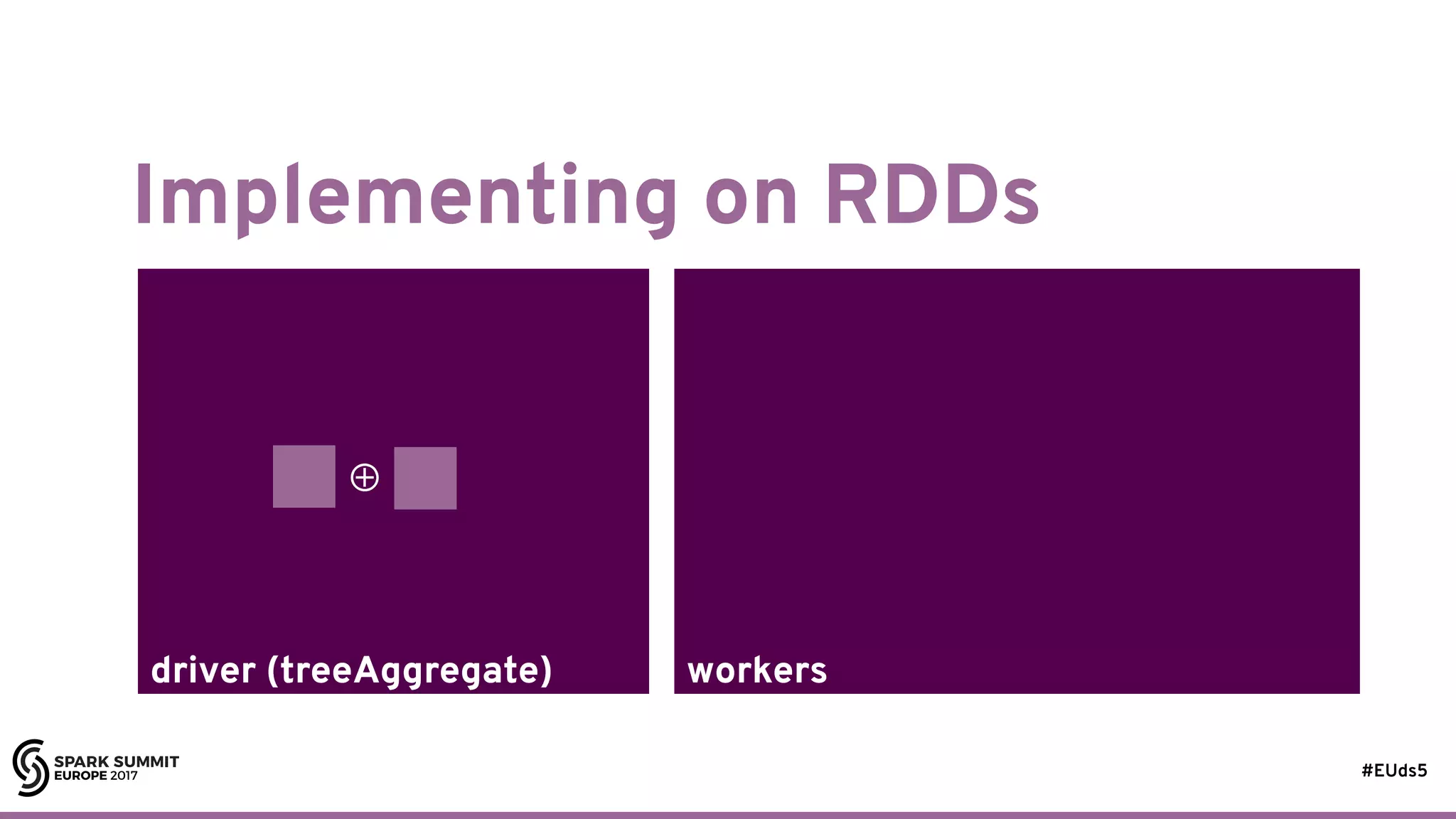

![#EUds5 RDDs: some good parts 47 val rdd: RDD[String] = /* ... */ rdd.map(_ * 3.0).collect() val df: DataFrame = /* data frame with one String-valued column */ df.select($"_1" * 3.0).show()](https://image.slidesharecdn.com/lb5williambenton-171031212144/75/Building-Machine-Learning-Algorithms-on-Apache-Spark-with-William-Benton-56-2048.jpg)
![#EUds5 RDDs: some good parts 48 val rdd: RDD[String] = /* ... */ rdd.map(_ * 3.0).collect() val df: DataFrame = /* data frame with one String-valued column */ df.select($"_1" * 3.0).show() doesn’t compile](https://image.slidesharecdn.com/lb5williambenton-171031212144/75/Building-Machine-Learning-Algorithms-on-Apache-Spark-with-William-Benton-57-2048.jpg)
![#EUds5 RDDs: some good parts 49 val rdd: RDD[String] = /* ... */ rdd.map(_ * 3.0).collect() val df: DataFrame = /* data frame with one String-valued column */ df.select($"_1" * 3.0).show() doesn’t compile](https://image.slidesharecdn.com/lb5williambenton-171031212144/75/Building-Machine-Learning-Algorithms-on-Apache-Spark-with-William-Benton-58-2048.jpg)
![#EUds5 RDDs: some good parts 50 val rdd: RDD[String] = /* ... */ rdd.map(_ * 3.0).collect() val df: DataFrame = /* data frame with one String-valued column */ df.select($"_1" * 3.0).show() doesn’t compile crashes at runtime](https://image.slidesharecdn.com/lb5williambenton-171031212144/75/Building-Machine-Learning-Algorithms-on-Apache-Spark-with-William-Benton-59-2048.jpg)
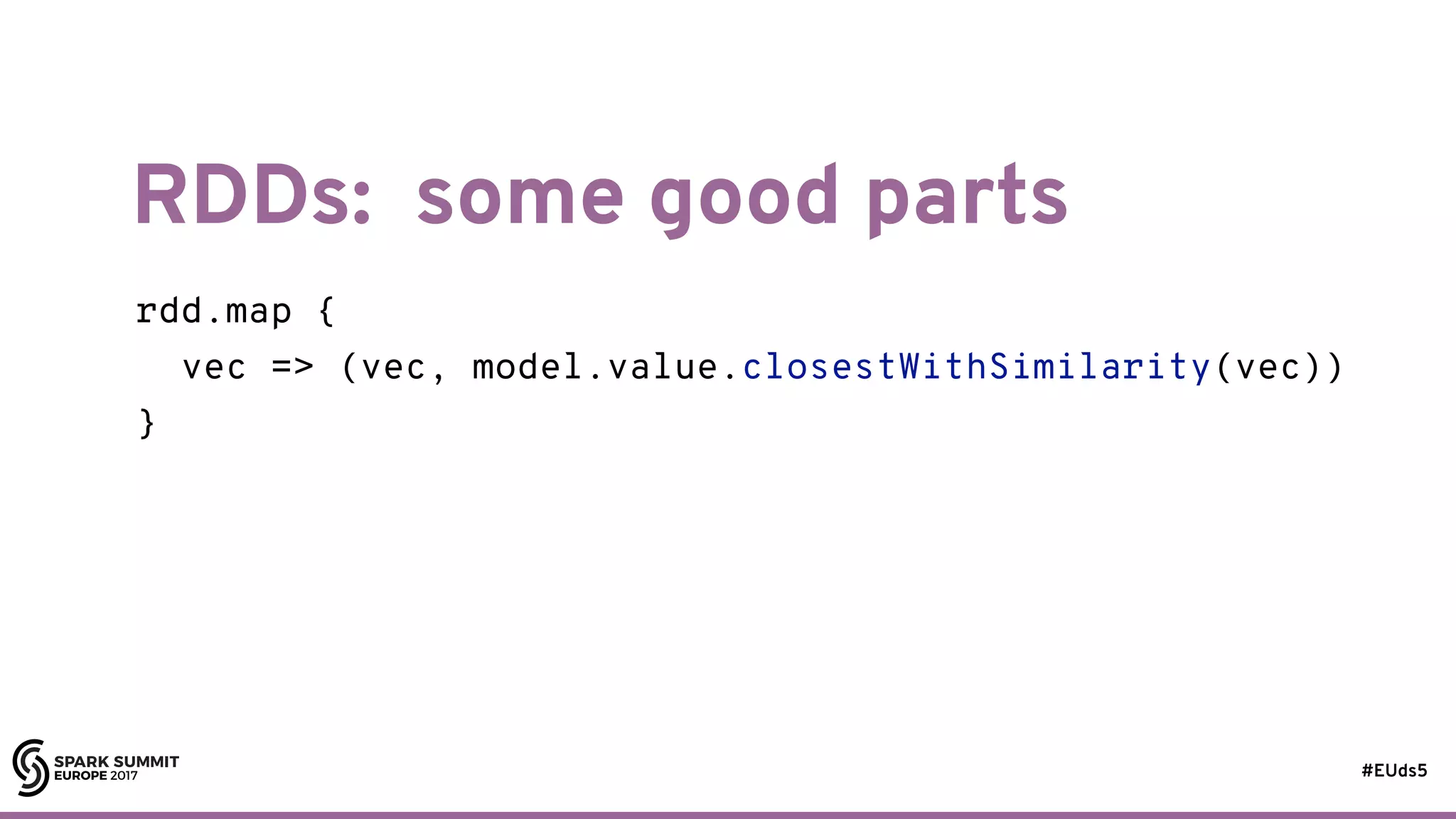
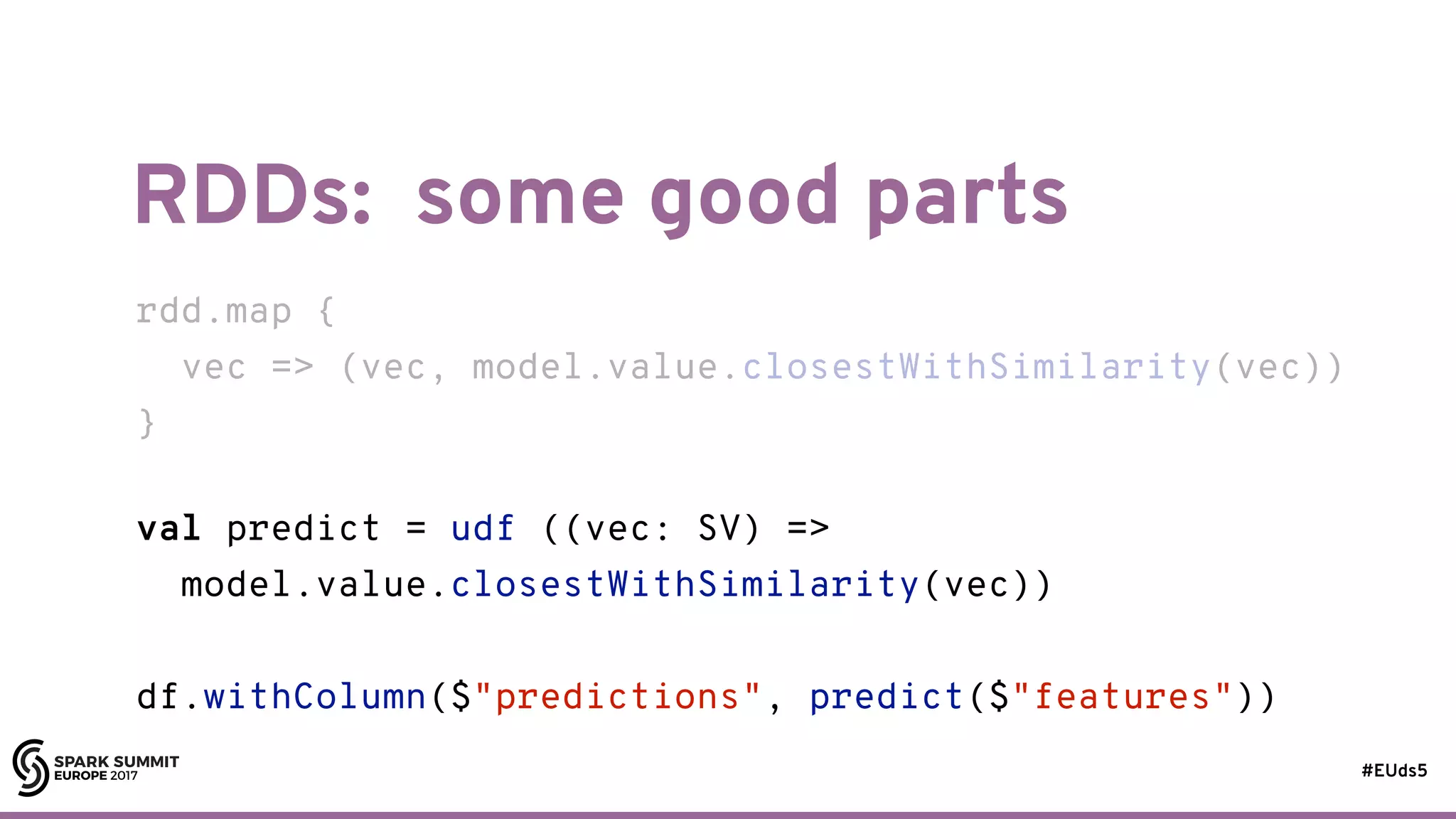
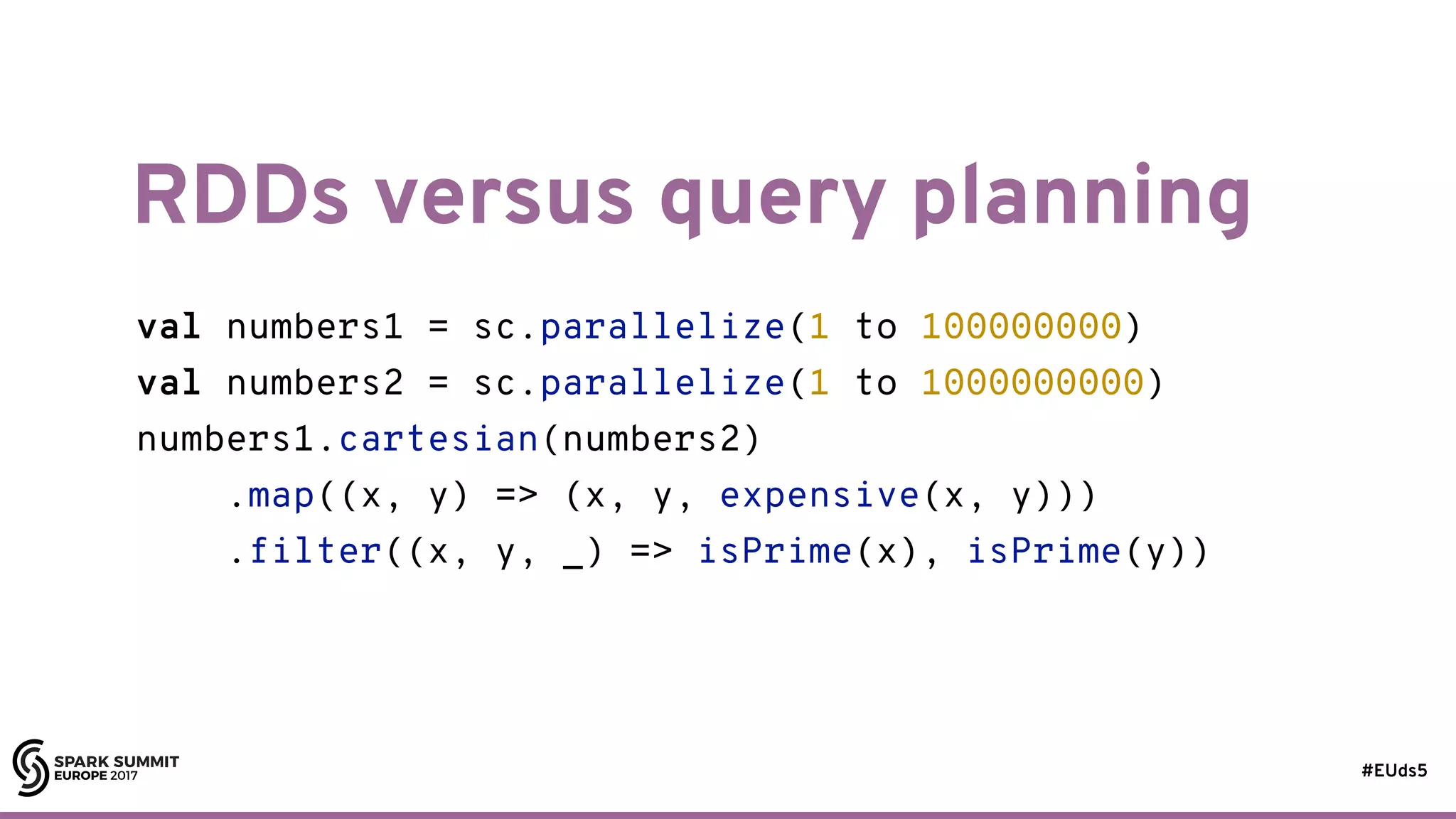
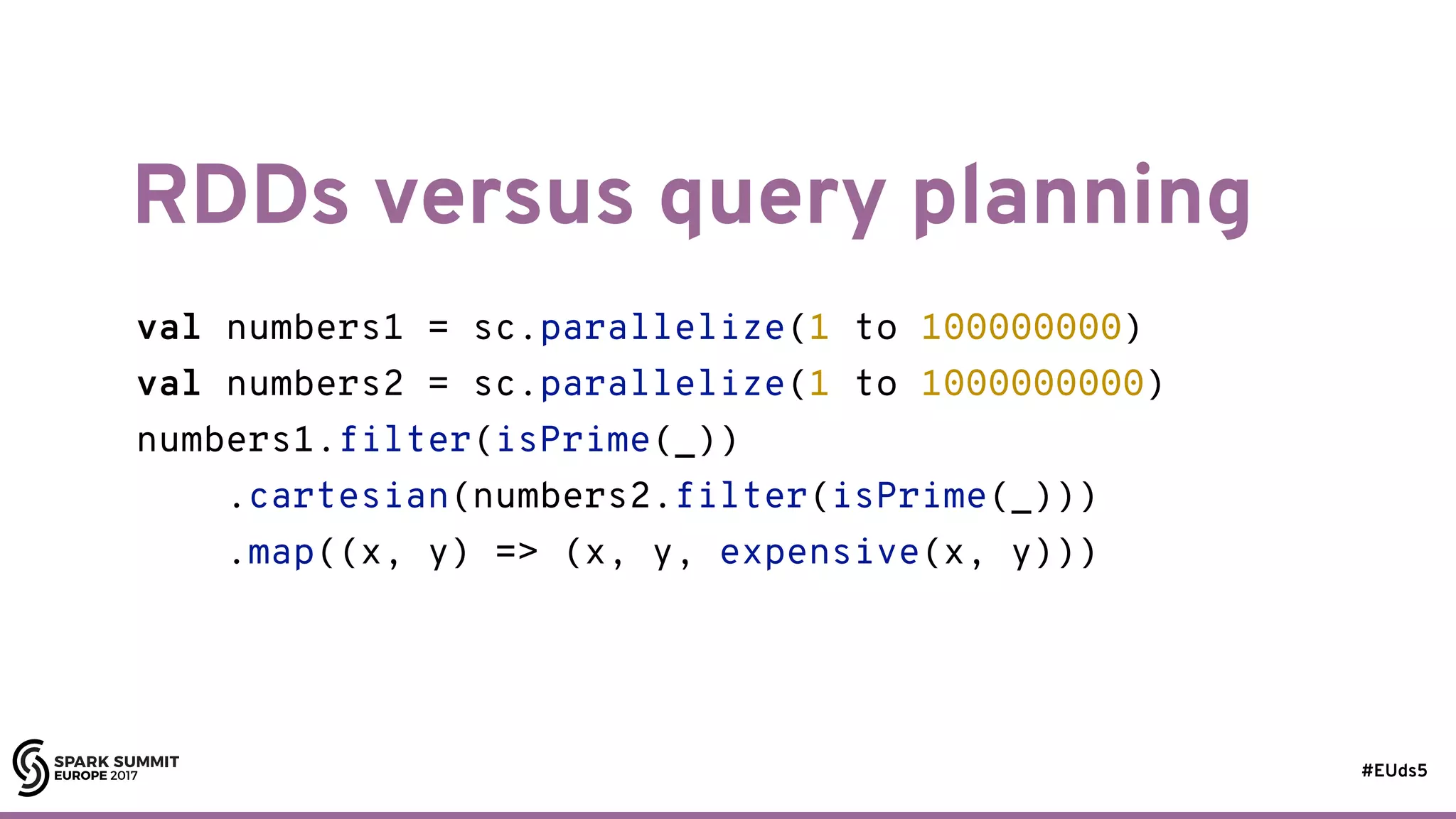
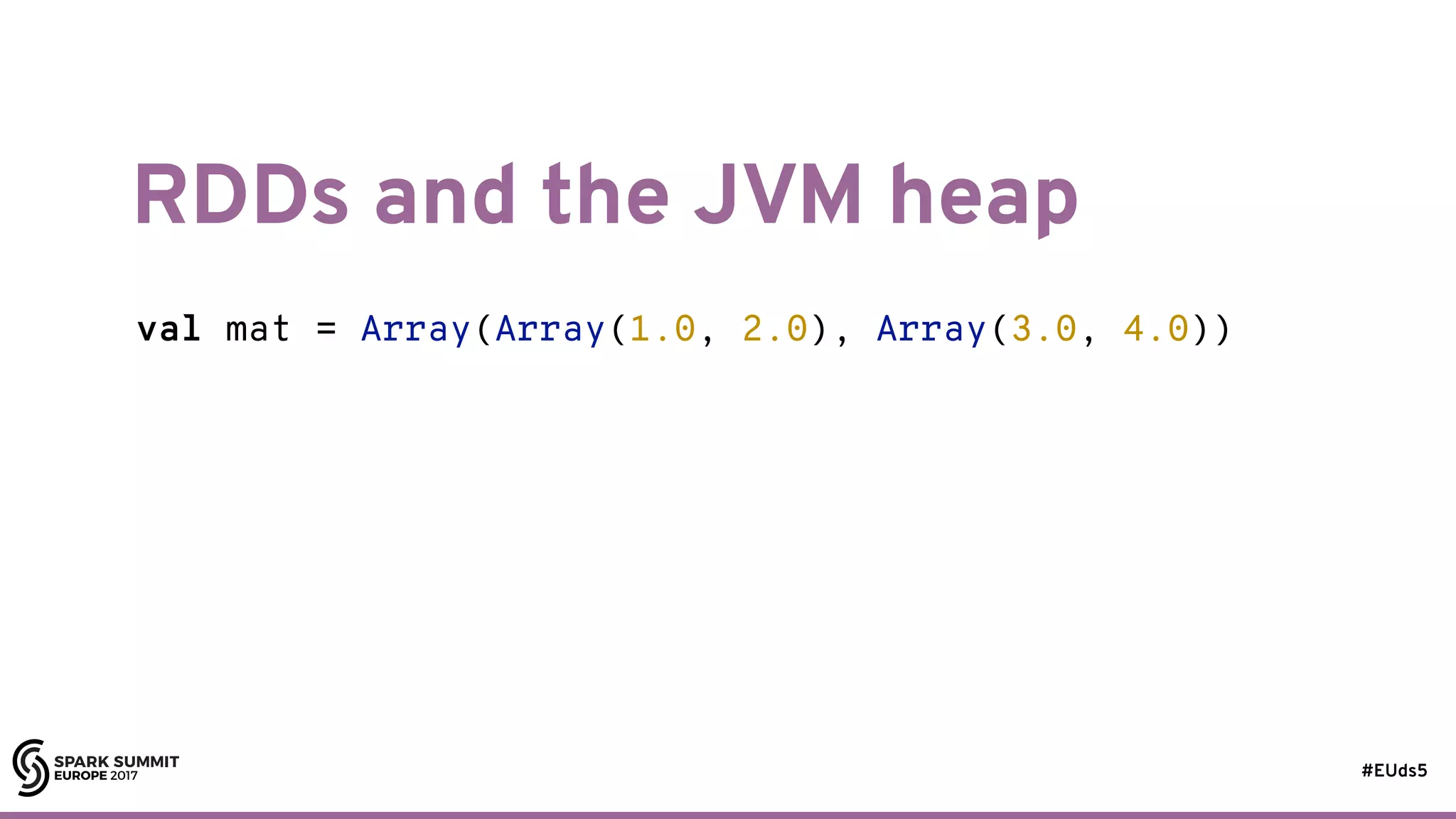
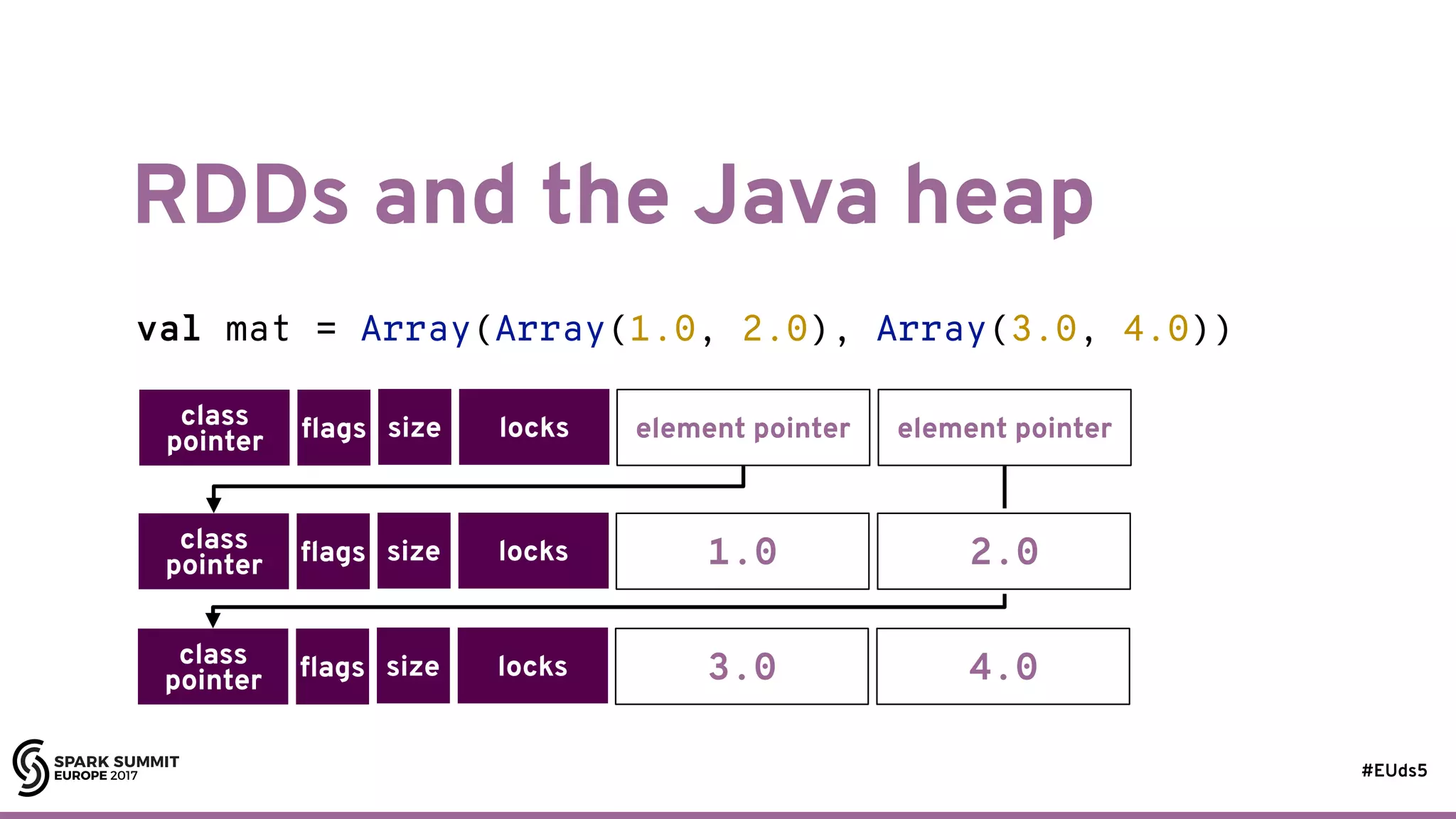
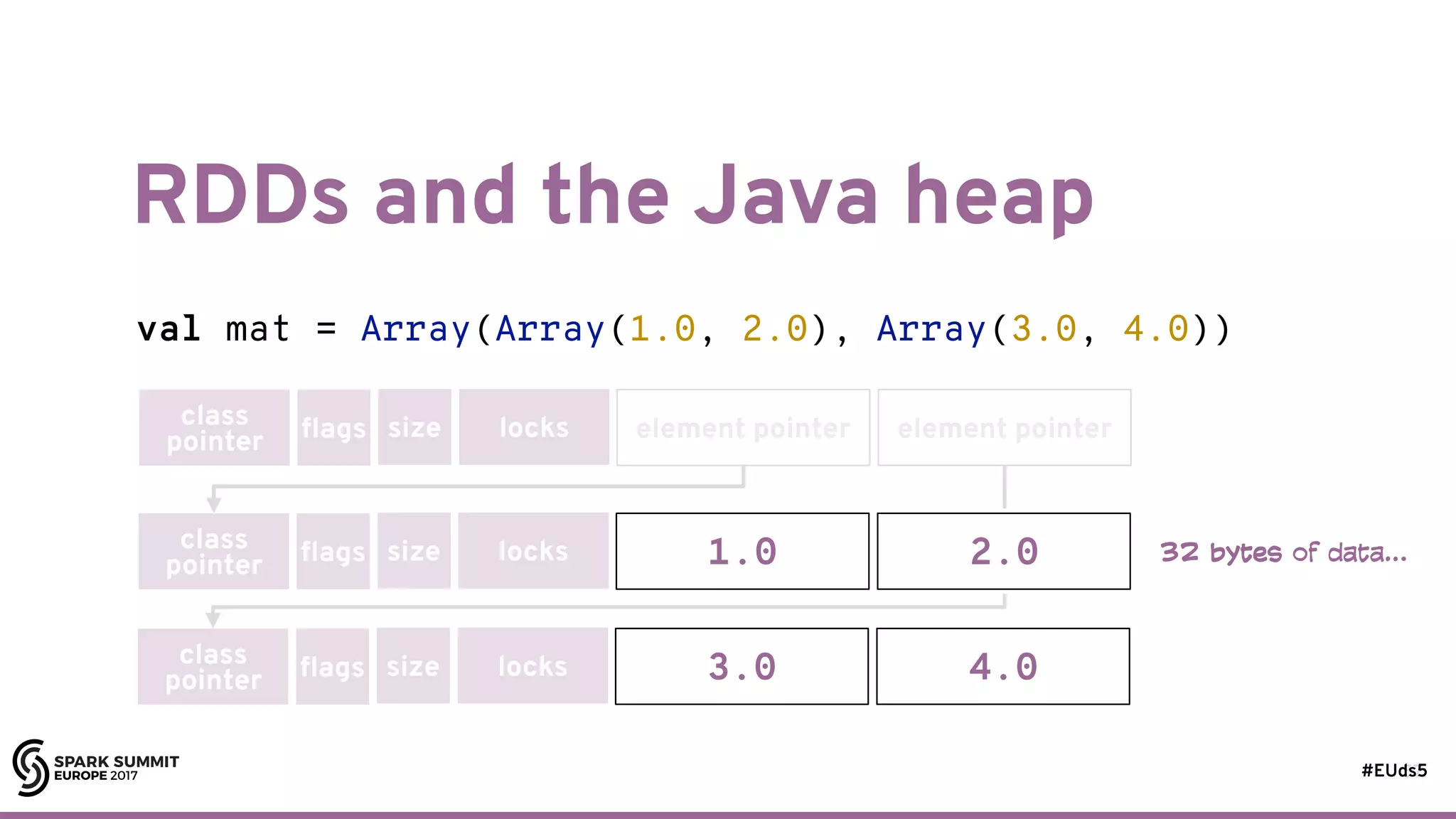
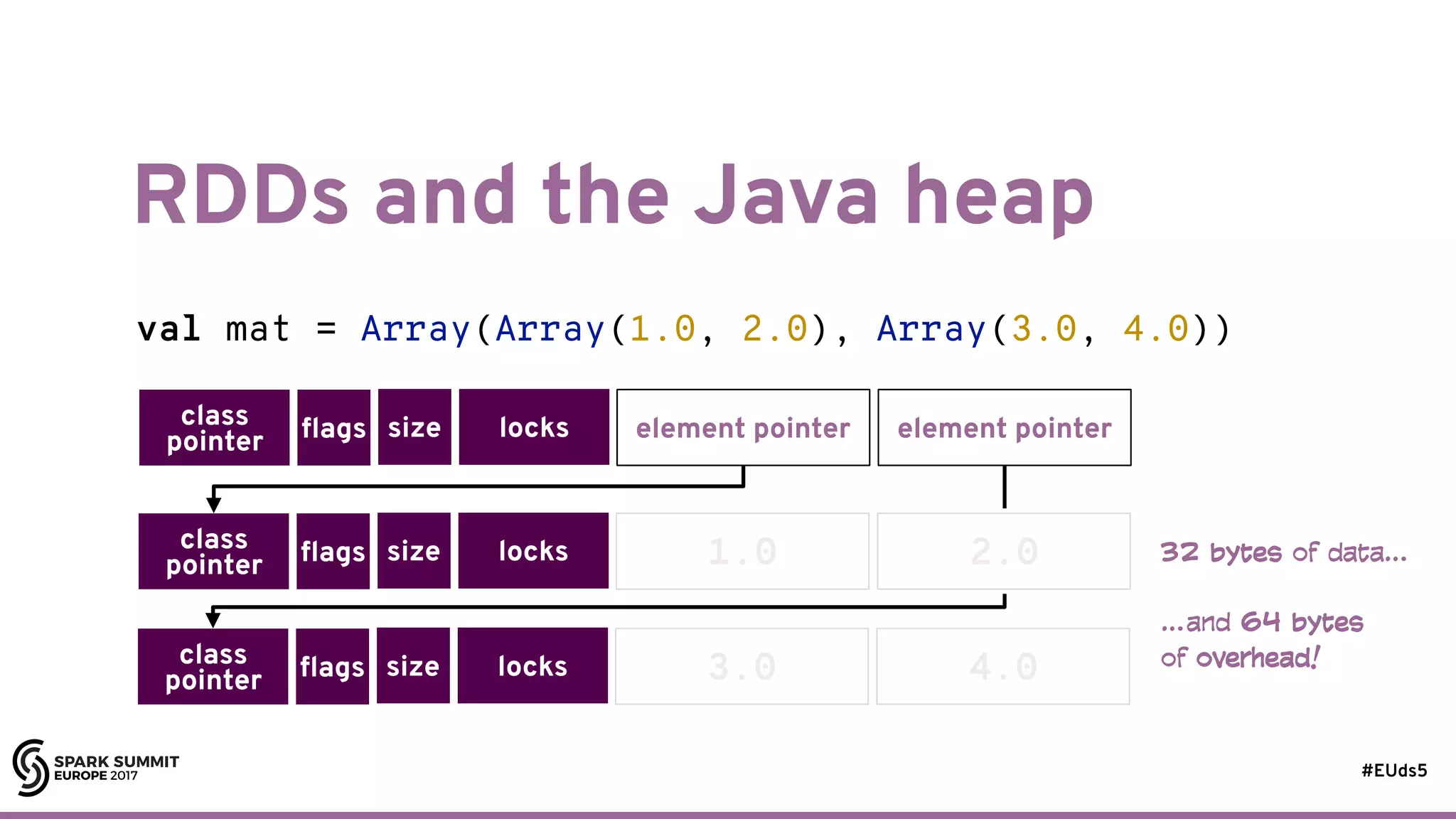
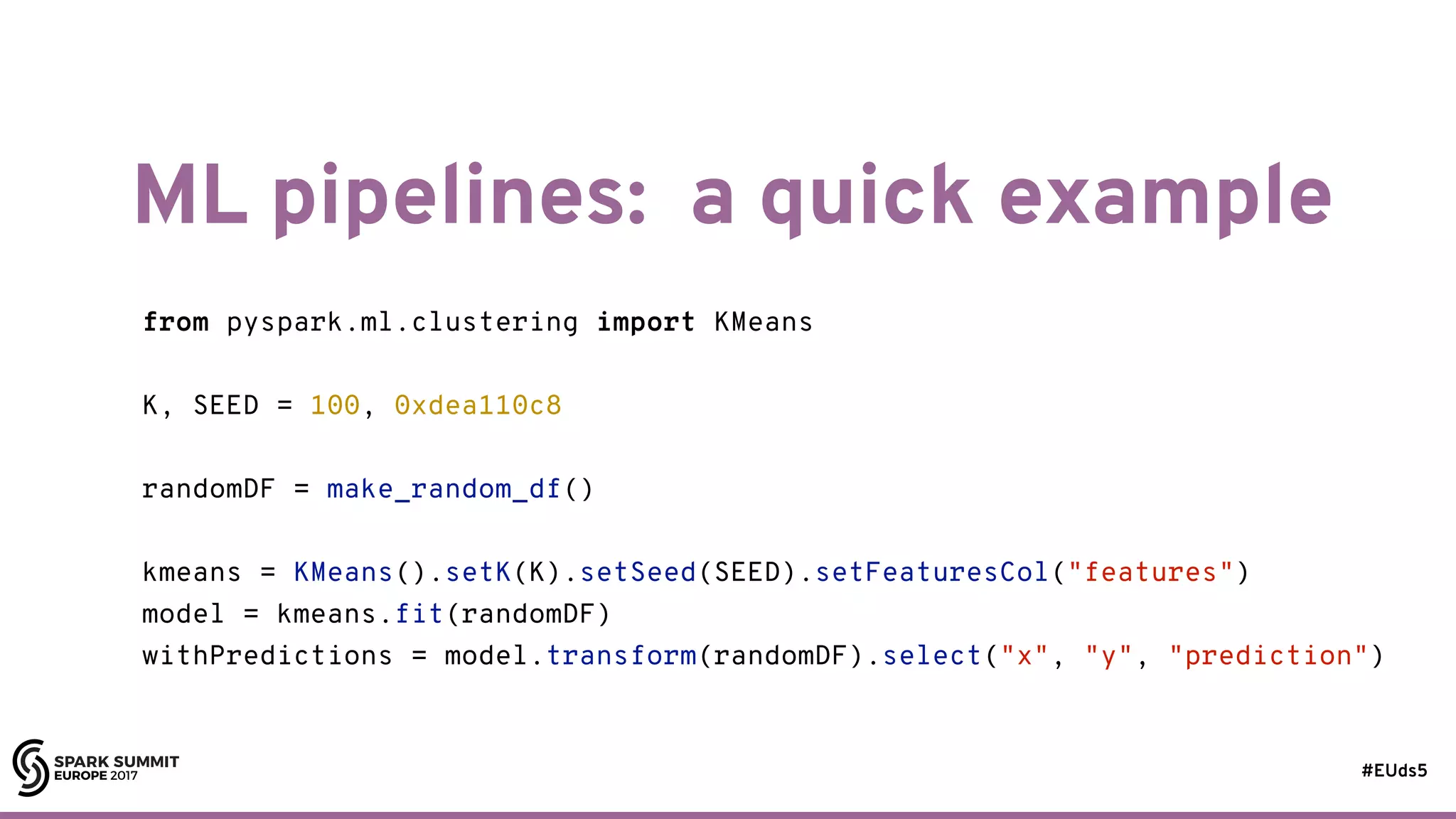
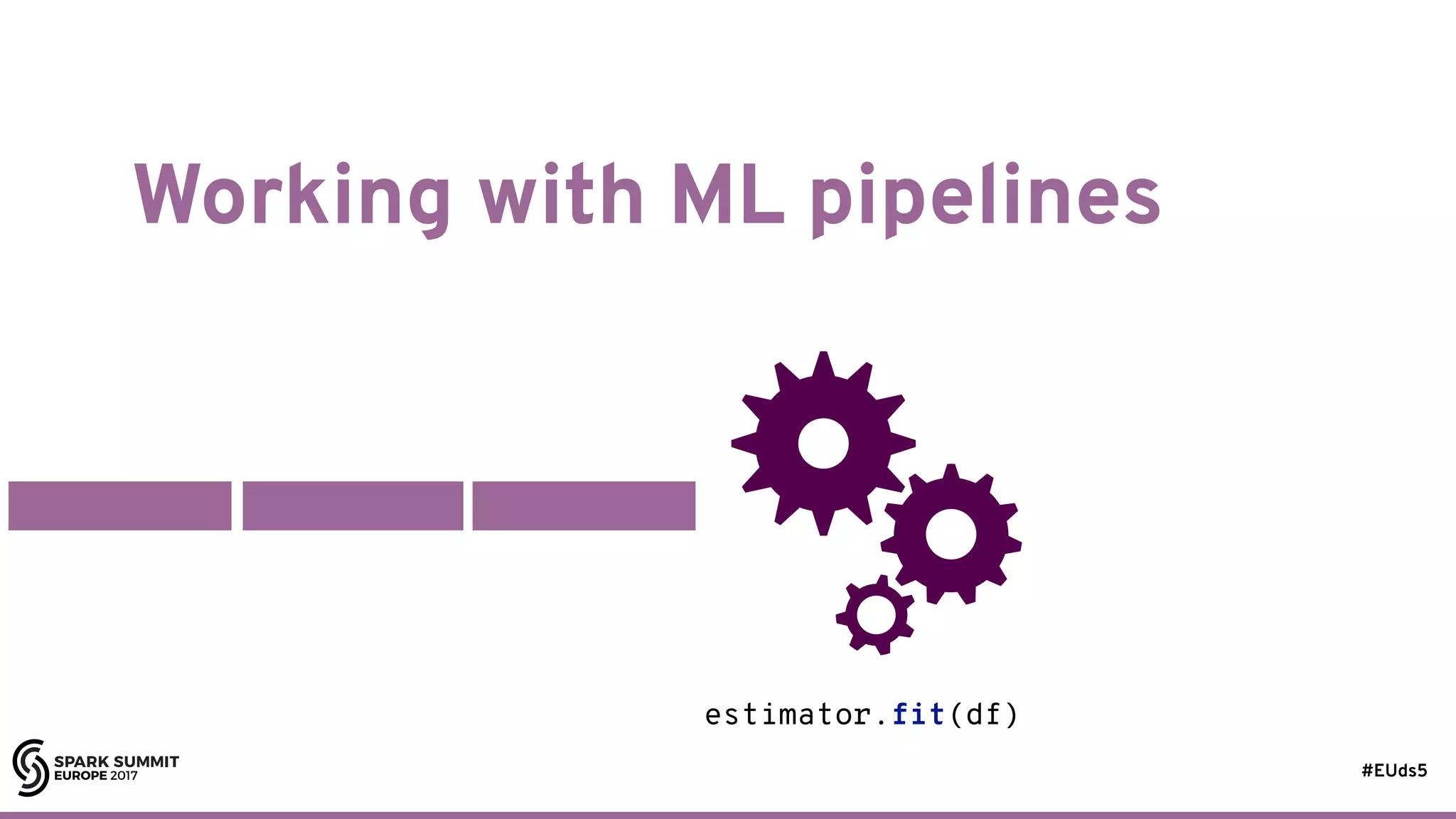
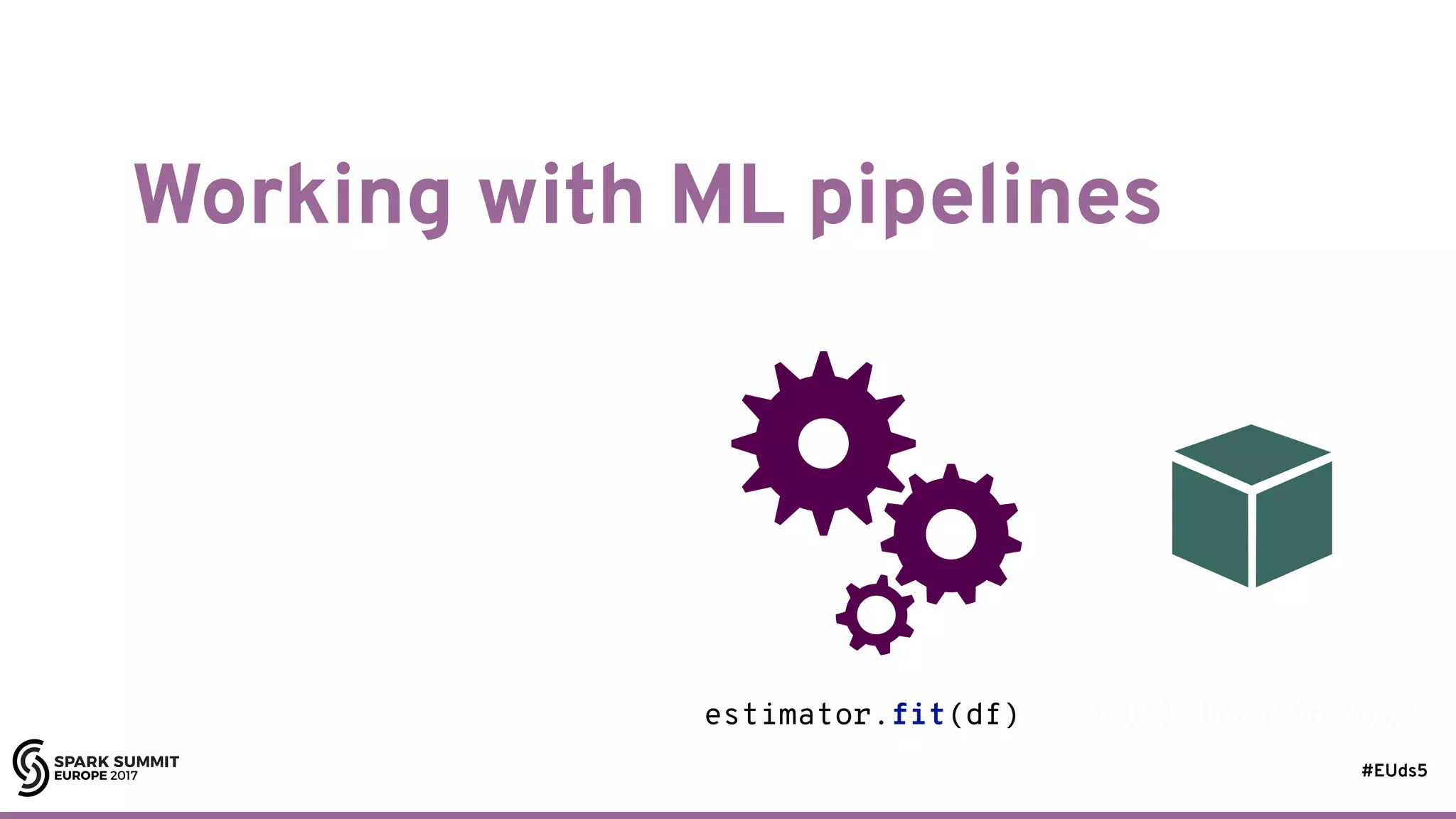
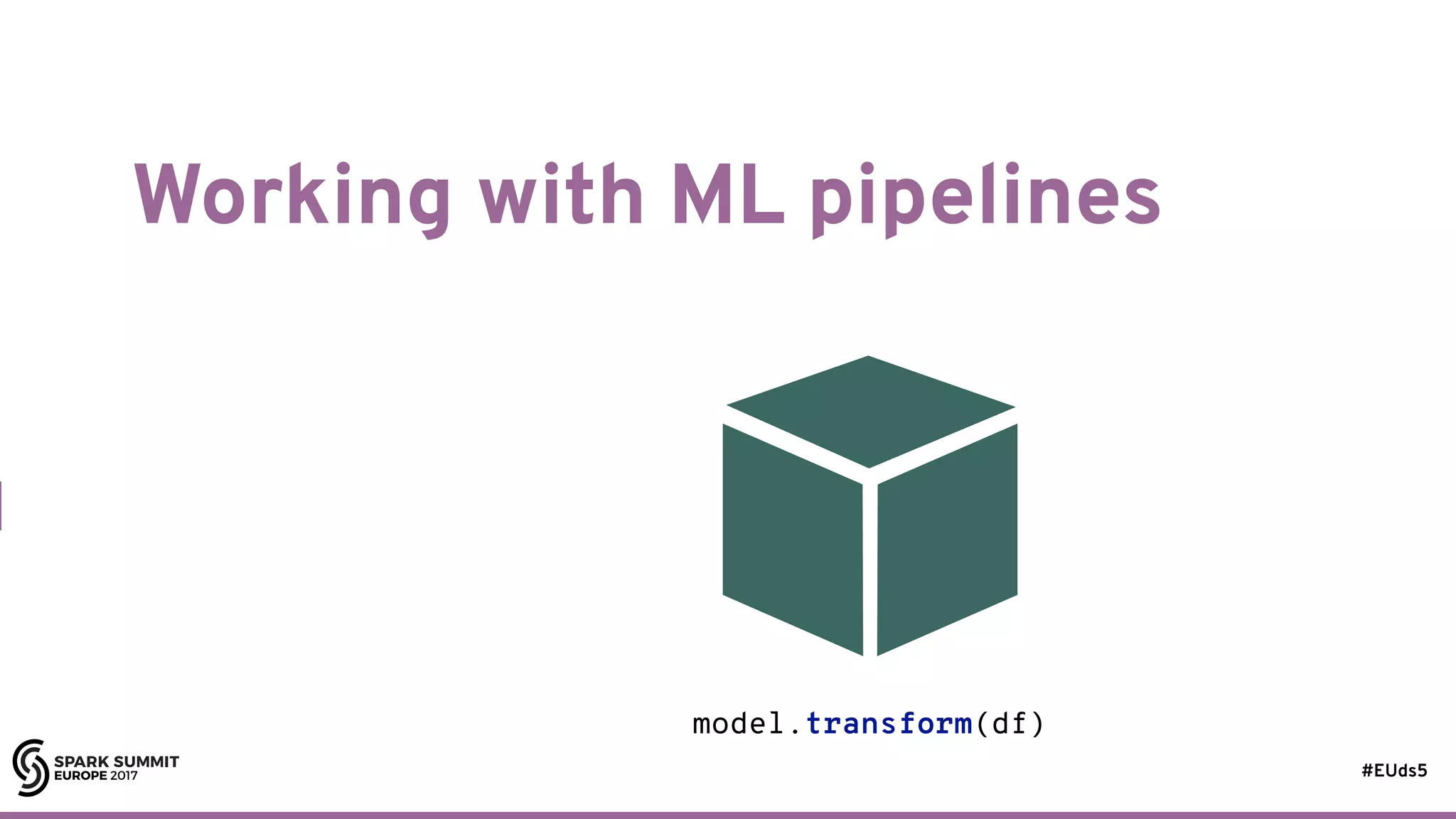
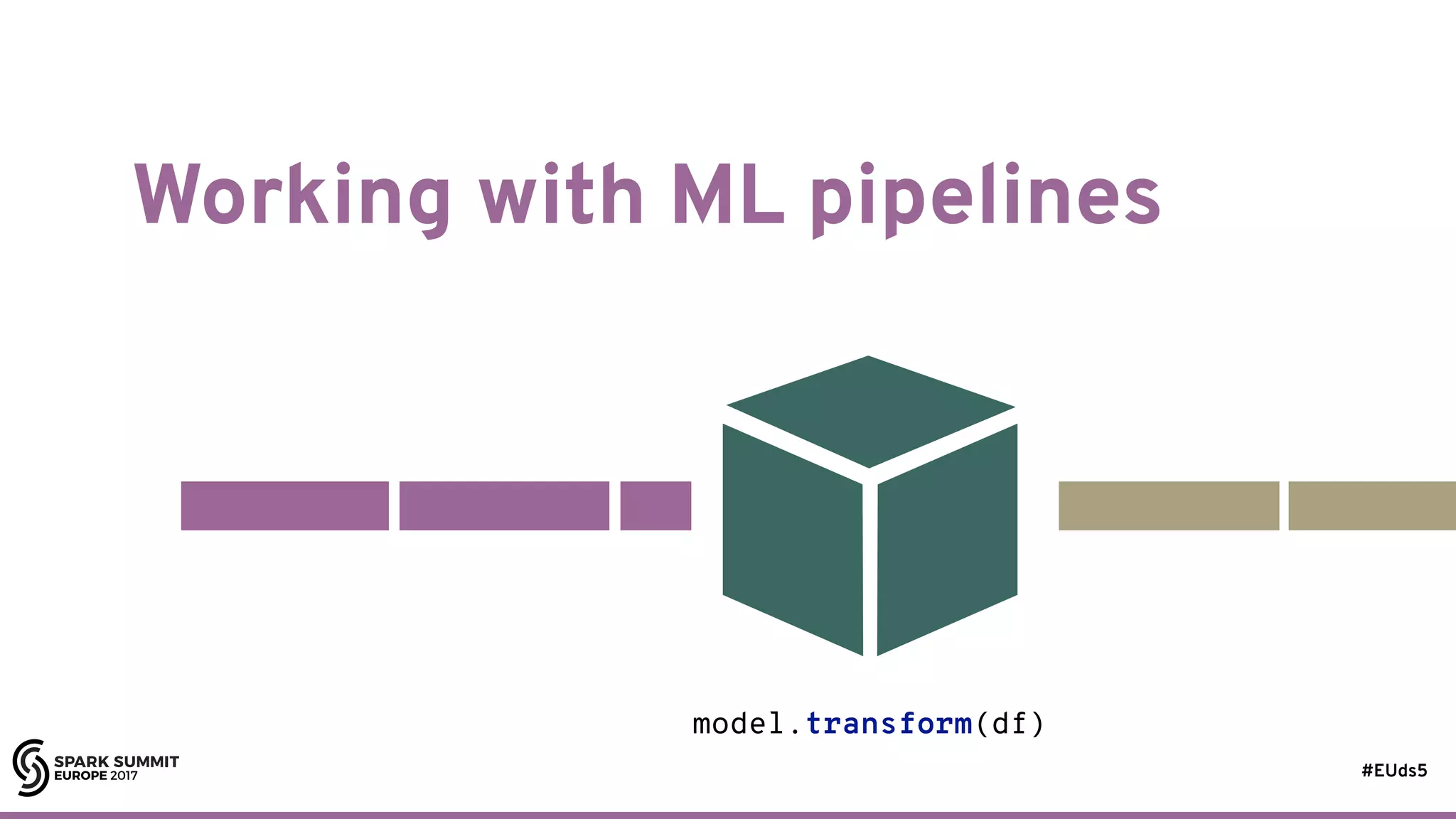
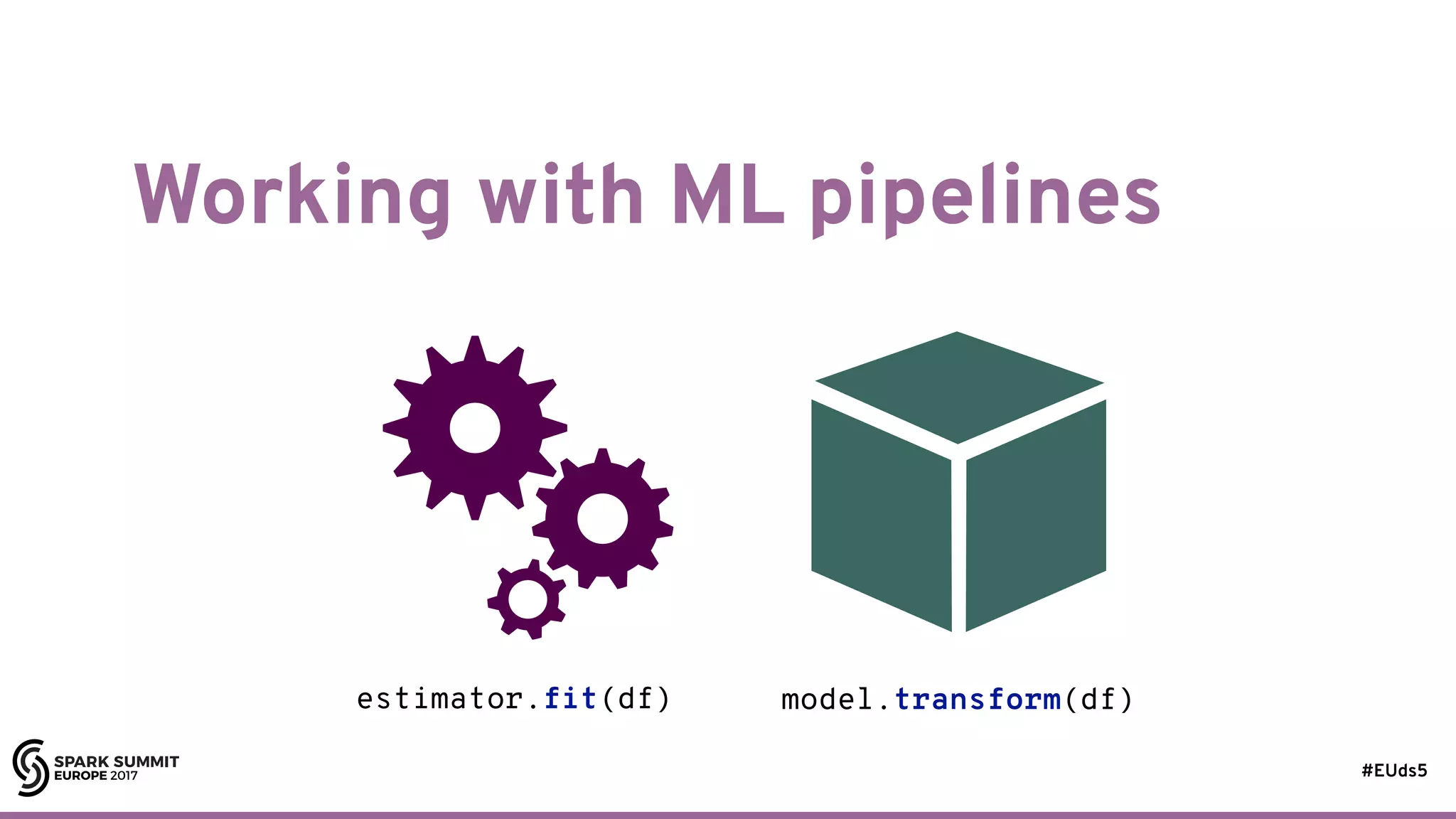
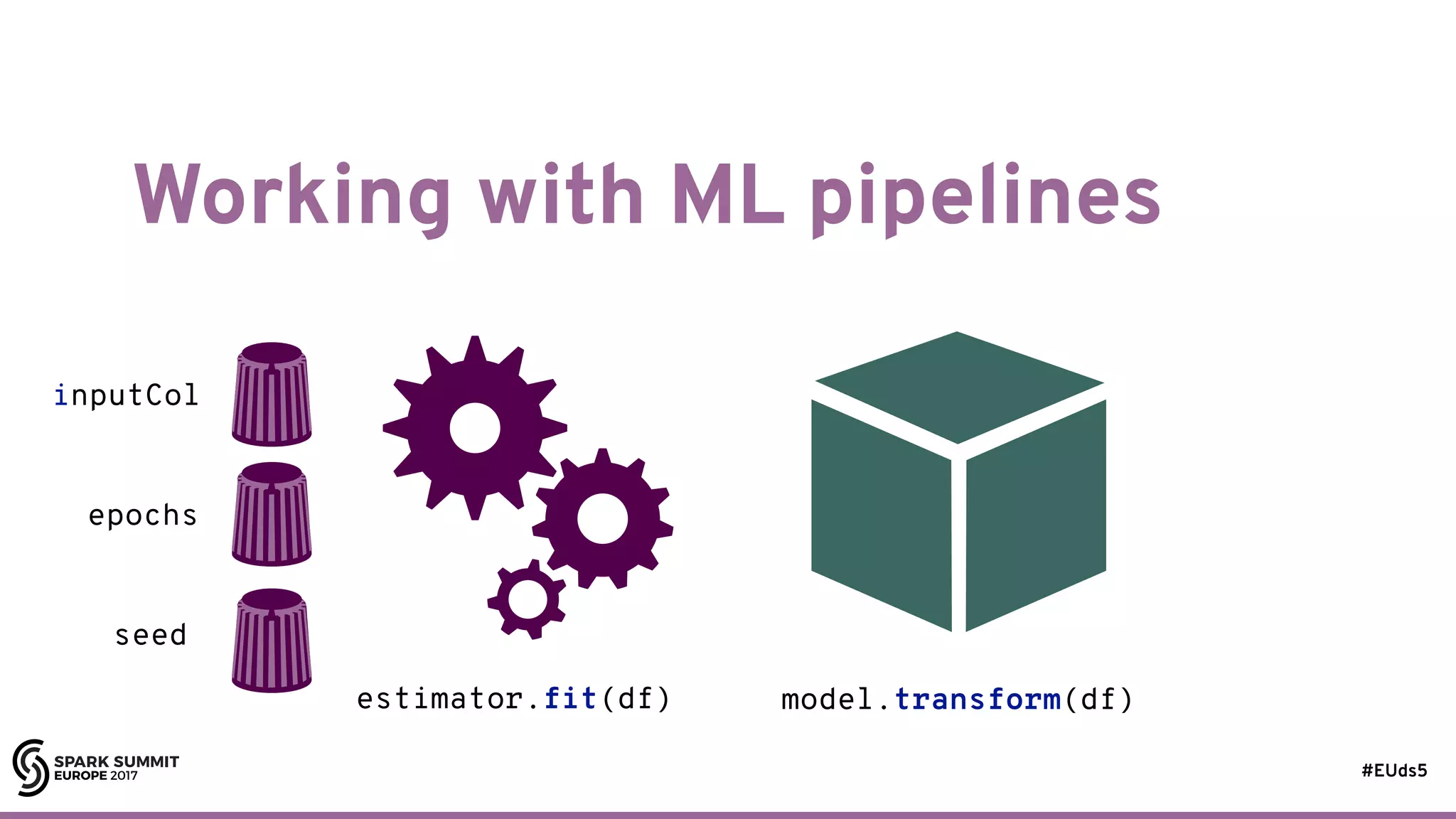
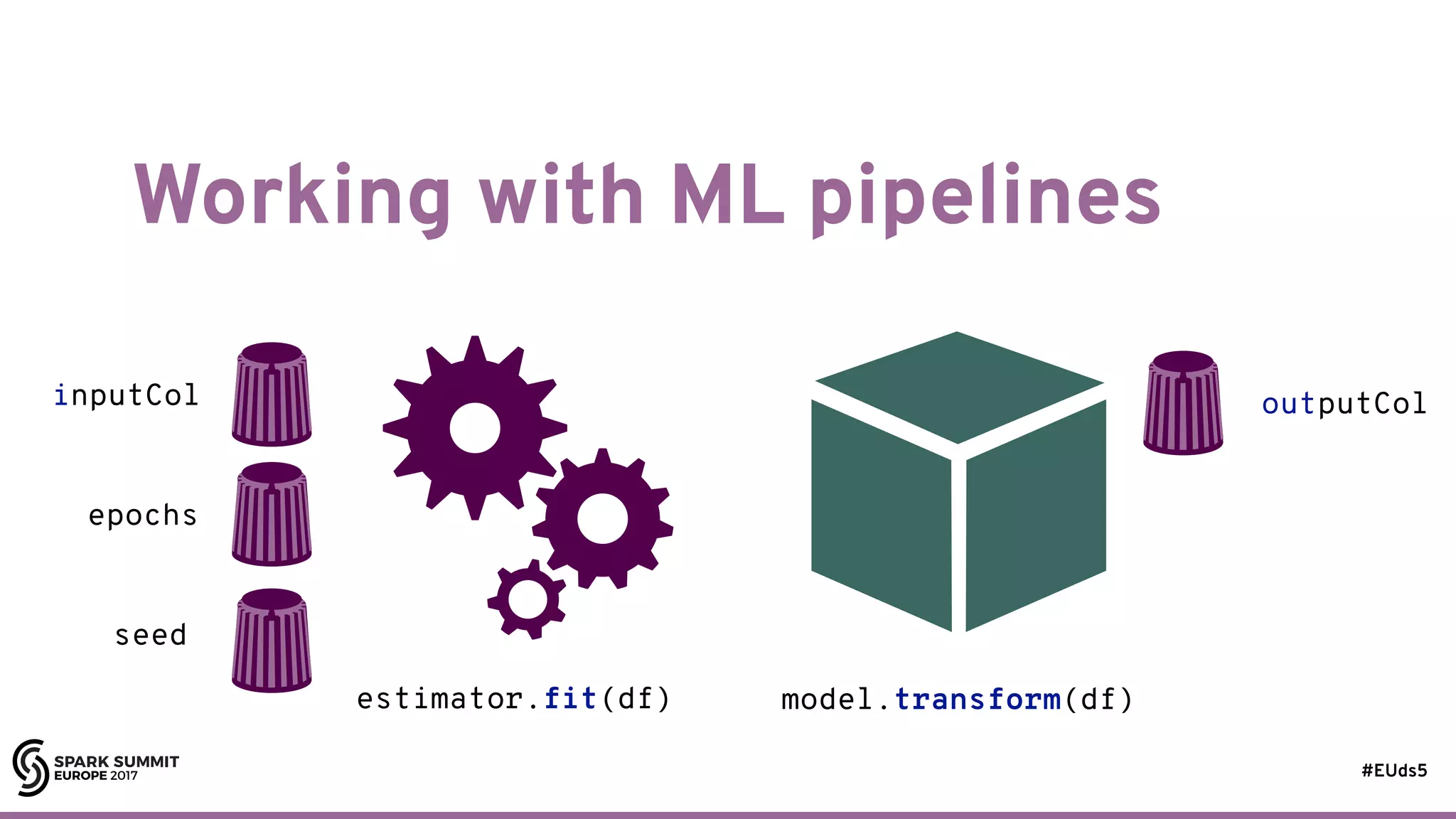
![#EUds5 Defining parameters 65 private[som] trait SOMParams extends Params with DefaultParamsWritable { final val x: IntParam = new IntParam(this, "x", "width of self-organizing map (>= 1)", ParamValidators.gtEq(1)) final def getX: Int = $(x) final def setX(value: Int): this.type = set(x, value) // ...](https://image.slidesharecdn.com/lb5williambenton-171031212144/75/Building-Machine-Learning-Algorithms-on-Apache-Spark-with-William-Benton-76-2048.jpg)
![#EUds5 Defining parameters 66 private[som] trait SOMParams extends Params with DefaultParamsWritable { final val x: IntParam = new IntParam(this, "x", "width of self-organizing map (>= 1)", ParamValidators.gtEq(1)) final def getX: Int = $(x) final def setX(value: Int): this.type = set(x, value) // ... private[som] trait SOMParams extends Params with DefaultParamsWritable { final val x: IntParam = new IntParam(this, "x", "width of self-organizing map (>= 1)", ParamValidators.gtEq(1)) final def getX: Int = $(x) final def setX(value: Int): this.type = set(x, value) // ...](https://image.slidesharecdn.com/lb5williambenton-171031212144/75/Building-Machine-Learning-Algorithms-on-Apache-Spark-with-William-Benton-77-2048.jpg)
![#EUds5 private[som] trait SOMParams extends Params with DefaultParamsWritable { final val x: IntParam = new IntParam(this, "x", "width of self-organizing map (>= 1)", ParamValidators.gtEq(1)) final def getX: Int = $(x) final def setX(value: Int): this.type = set(x, value) // ... Defining parameters 67 private[som] trait SOMParams extends Params with DefaultParamsWritable { final val x: IntParam = new IntParam(this, "x", "width of self-organizing map (>= 1)", ParamValidators.gtEq(1)) final def getX: Int = $(x) final def setX(value: Int): this.type = set(x, value) // ...](https://image.slidesharecdn.com/lb5williambenton-171031212144/75/Building-Machine-Learning-Algorithms-on-Apache-Spark-with-William-Benton-78-2048.jpg)
![#EUds5 Defining parameters 68 private[som] trait SOMParams extends Params with DefaultParamsWritable { final val x: IntParam = new IntParam(this, "x", "width of self-organizing map (>= 1)", ParamValidators.gtEq(1)) final def getX: Int = $(x) final def setX(value: Int): this.type = set(x, value) // ... private[som] trait SOMParams extends Params with DefaultParamsWritable { final val x: IntParam = new IntParam(this, "x", "width of self-organizing map (>= 1)", ParamValidators.gtEq(1)) final def getX: Int = $(x) final def setX(value: Int): this.type = set(x, value) // ...](https://image.slidesharecdn.com/lb5williambenton-171031212144/75/Building-Machine-Learning-Algorithms-on-Apache-Spark-with-William-Benton-79-2048.jpg)
![#EUds5 Defining parameters 69 private[som] trait SOMParams extends Params with DefaultParamsWritable { final val x: IntParam = new IntParam(this, "x", "width of self-organizing map (>= 1)", ParamValidators.gtEq(1)) final def getX: Int = $(x) final def setX(value: Int): this.type = set(x, value) // ... private[som] trait SOMParams extends Params with DefaultParamsWritable { final val x: IntParam = new IntParam(this, "x", "width of self-organizing map (>= 1)", ParamValidators.gtEq(1)) final def getX: Int = $(x) final def setX(value: Int): this.type = set(x, value) // ...](https://image.slidesharecdn.com/lb5williambenton-171031212144/75/Building-Machine-Learning-Algorithms-on-Apache-Spark-with-William-Benton-80-2048.jpg)
![#EUds5 Defining parameters 70 private[som] trait SOMParams extends Params with DefaultParamsWritable { final val x: IntParam = new IntParam(this, "x", "width of self-organizing map (>= 1)", ParamValidators.gtEq(1)) final def getX: Int = $(x) final def setX(value: Int): this.type = set(x, value) // ... private[som] trait SOMParams extends Params with DefaultParamsWritable { final val x: IntParam = new IntParam(this, "x", "width of self-organizing map (>= 1)", ParamValidators.gtEq(1)) final def getX: Int = $(x) final def setX(value: Int): this.type = set(x, value) // ...](https://image.slidesharecdn.com/lb5williambenton-171031212144/75/Building-Machine-Learning-Algorithms-on-Apache-Spark-with-William-Benton-81-2048.jpg)
![#EUds5 Don’t repeat yourself 71 /** * Common params for KMeans and KMeansModel */ private[clustering] trait KMeansParams extends Params with HasMaxIter with HasFeaturesCol with HasSeed with HasPredictionCol with HasTol { /* ... */ }](https://image.slidesharecdn.com/lb5williambenton-171031212144/75/Building-Machine-Learning-Algorithms-on-Apache-Spark-with-William-Benton-82-2048.jpg)
